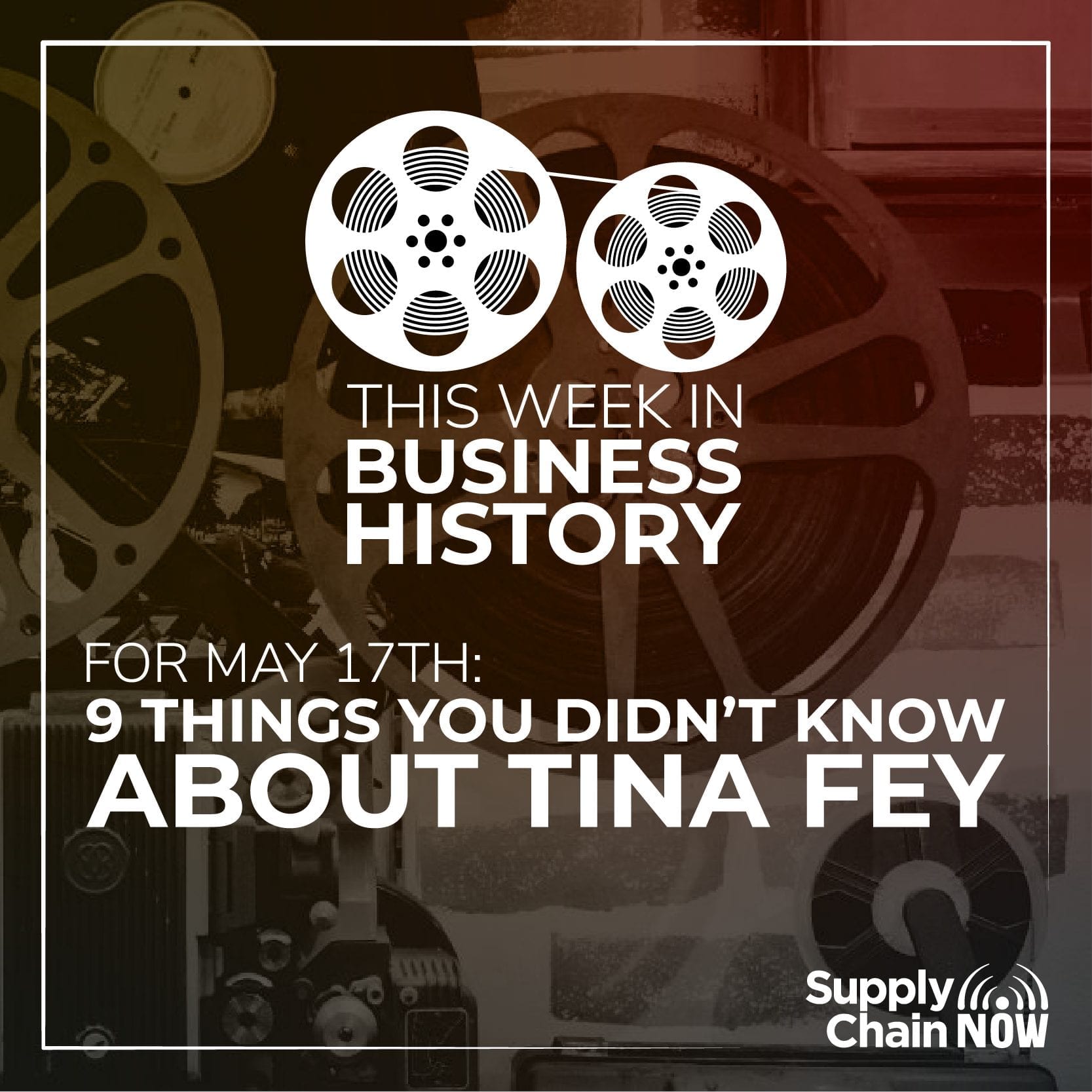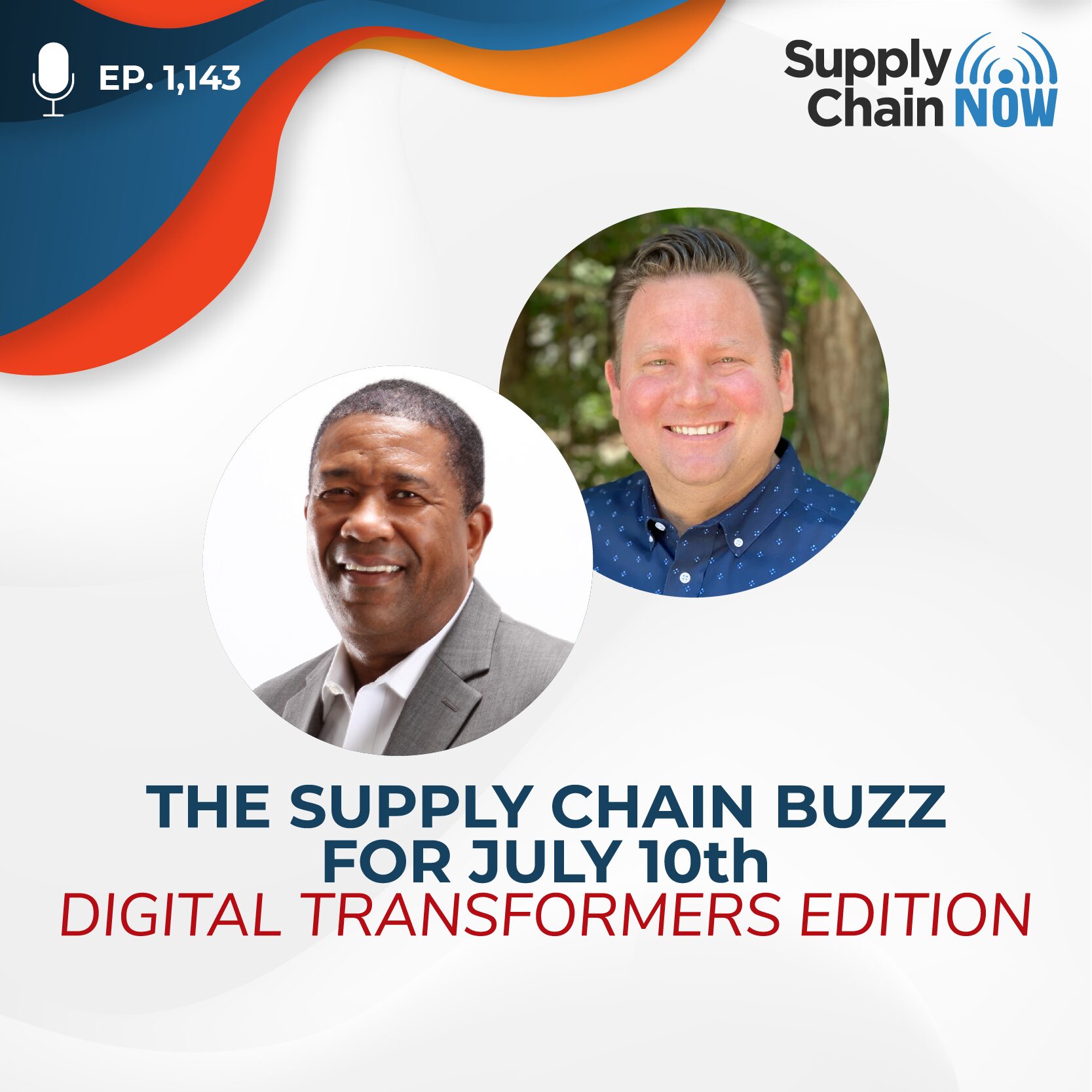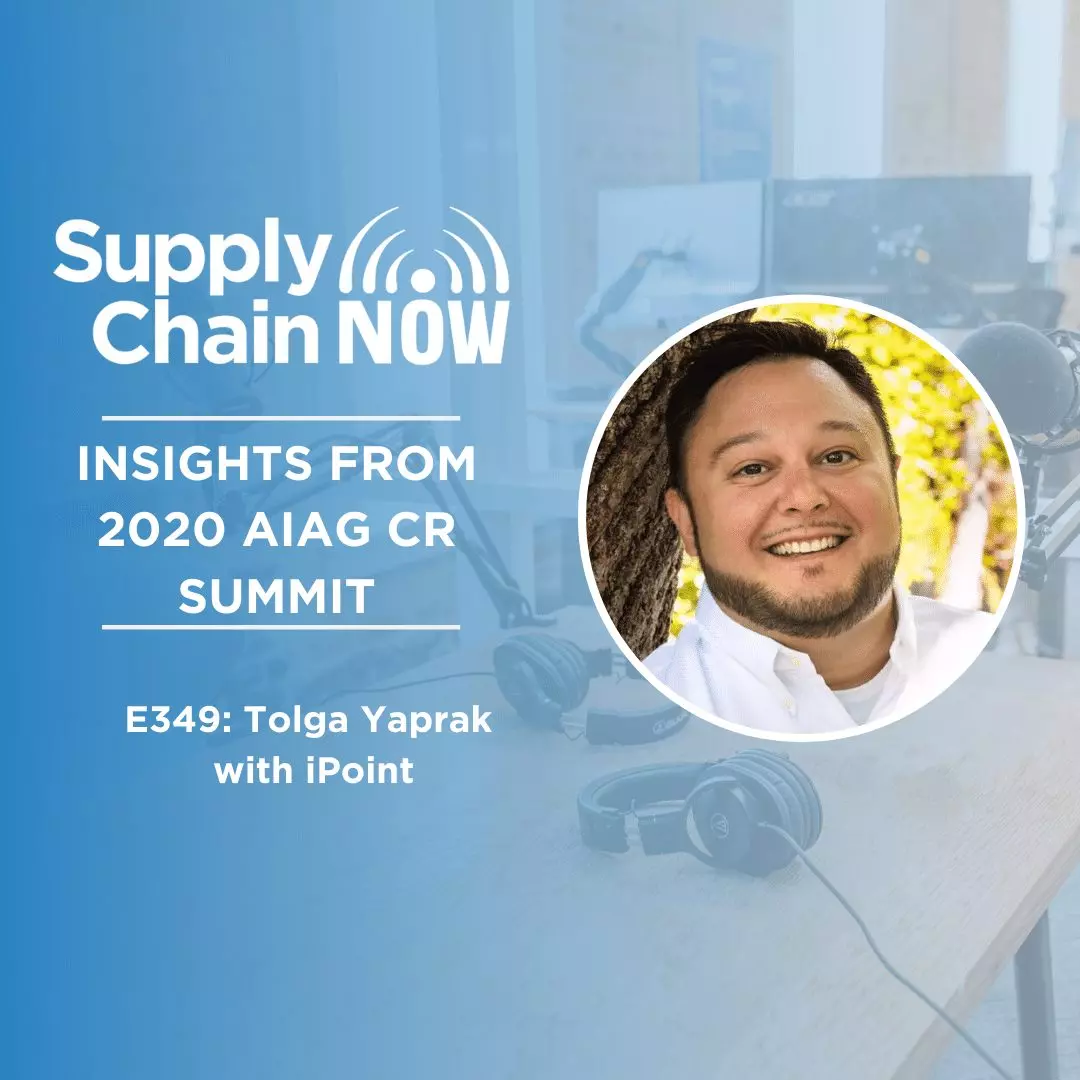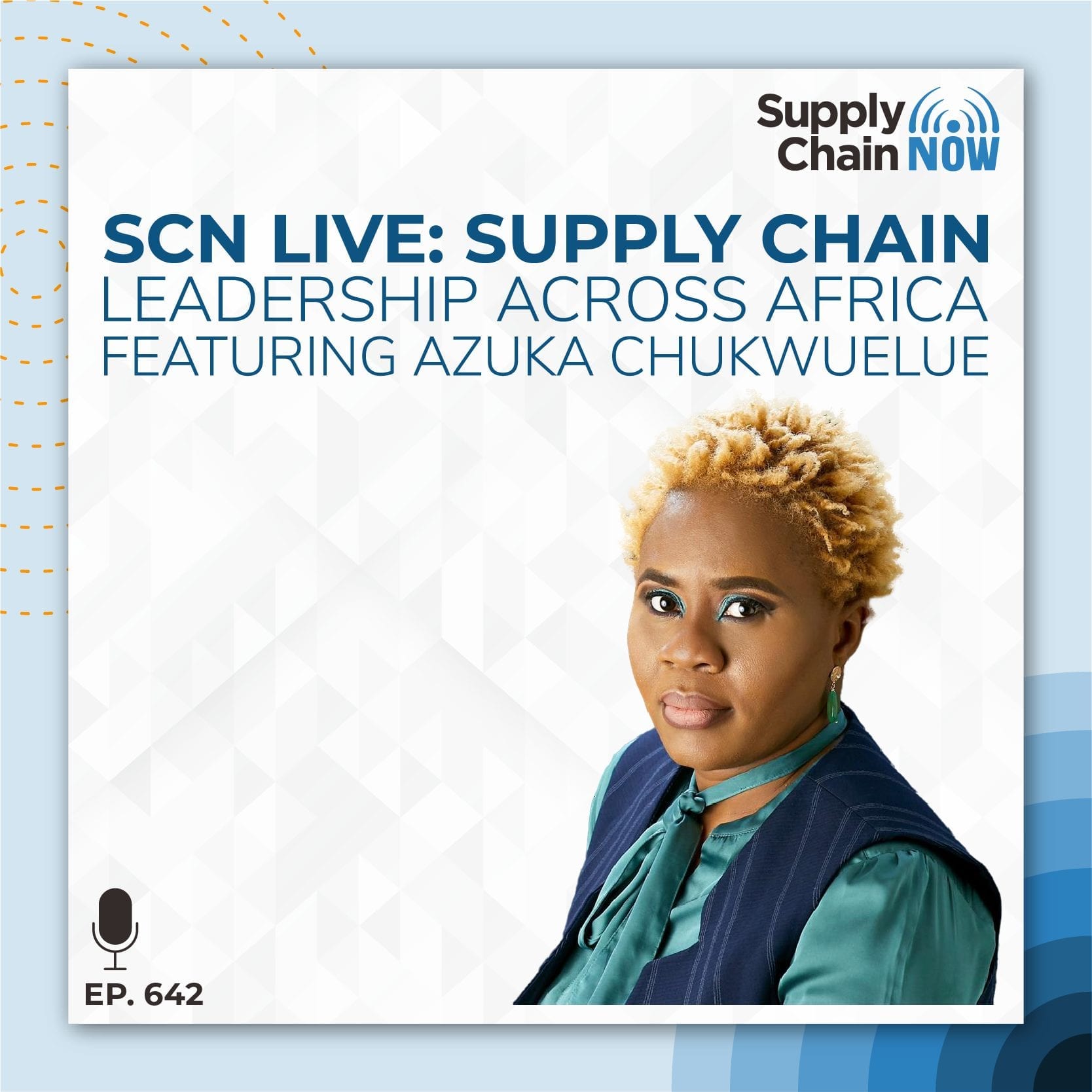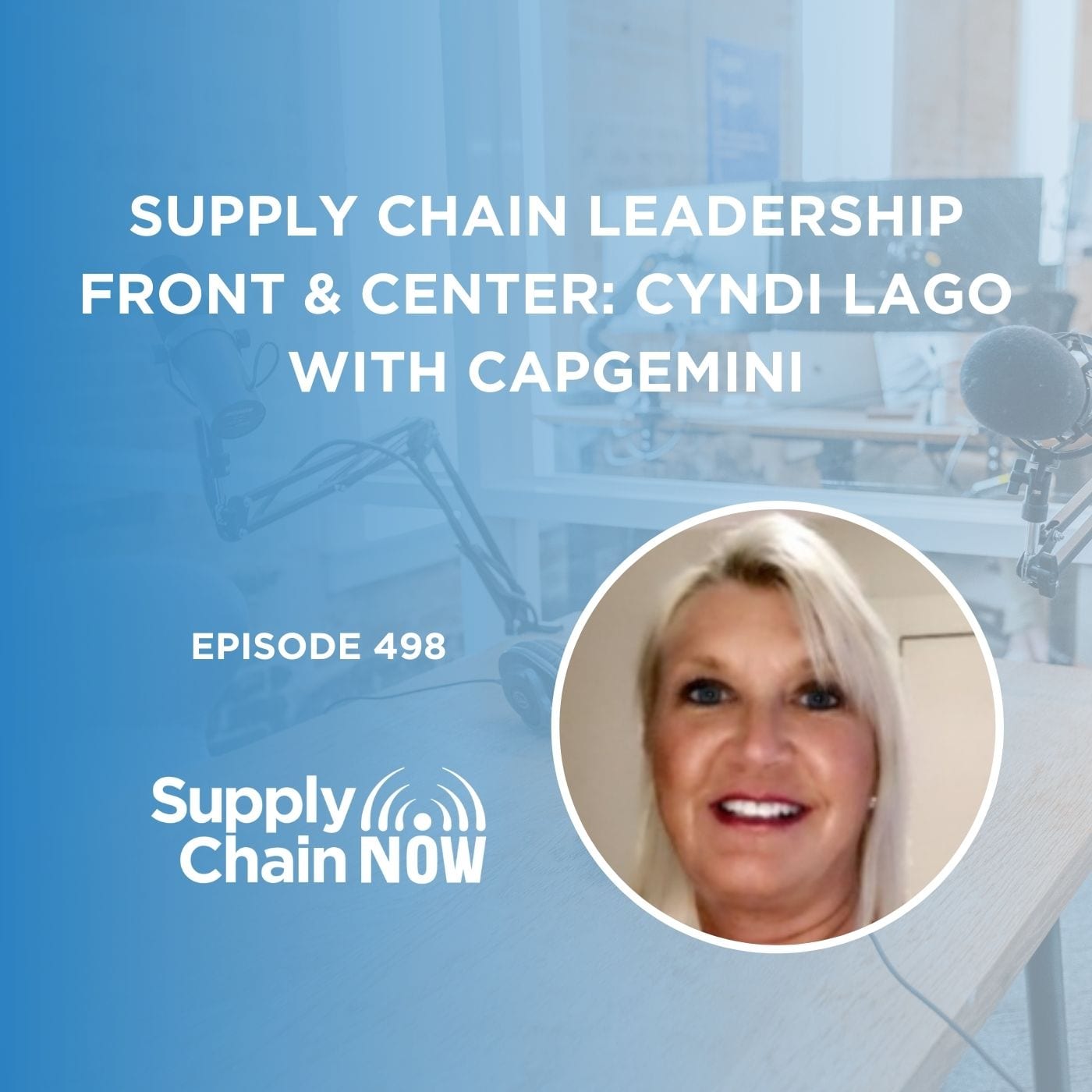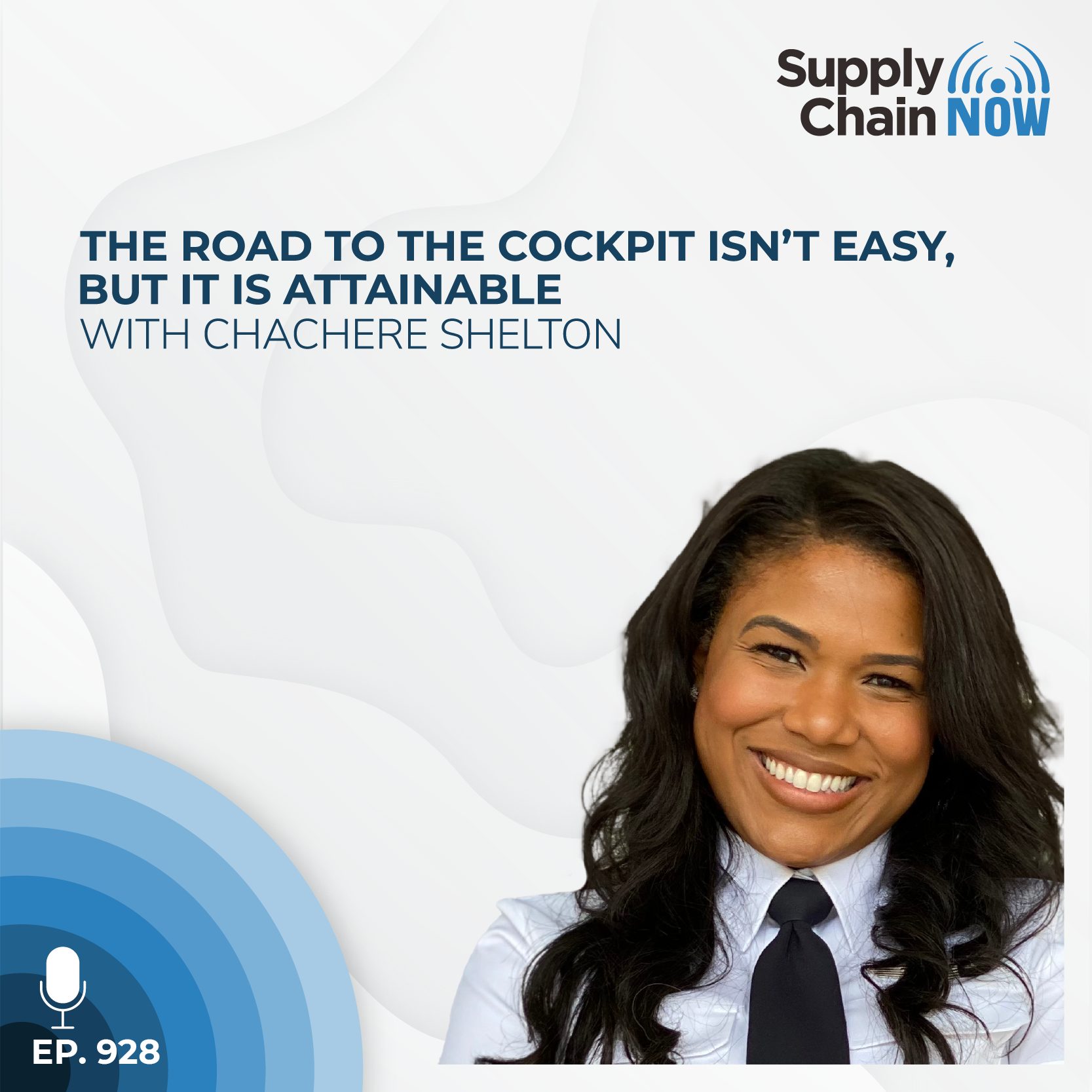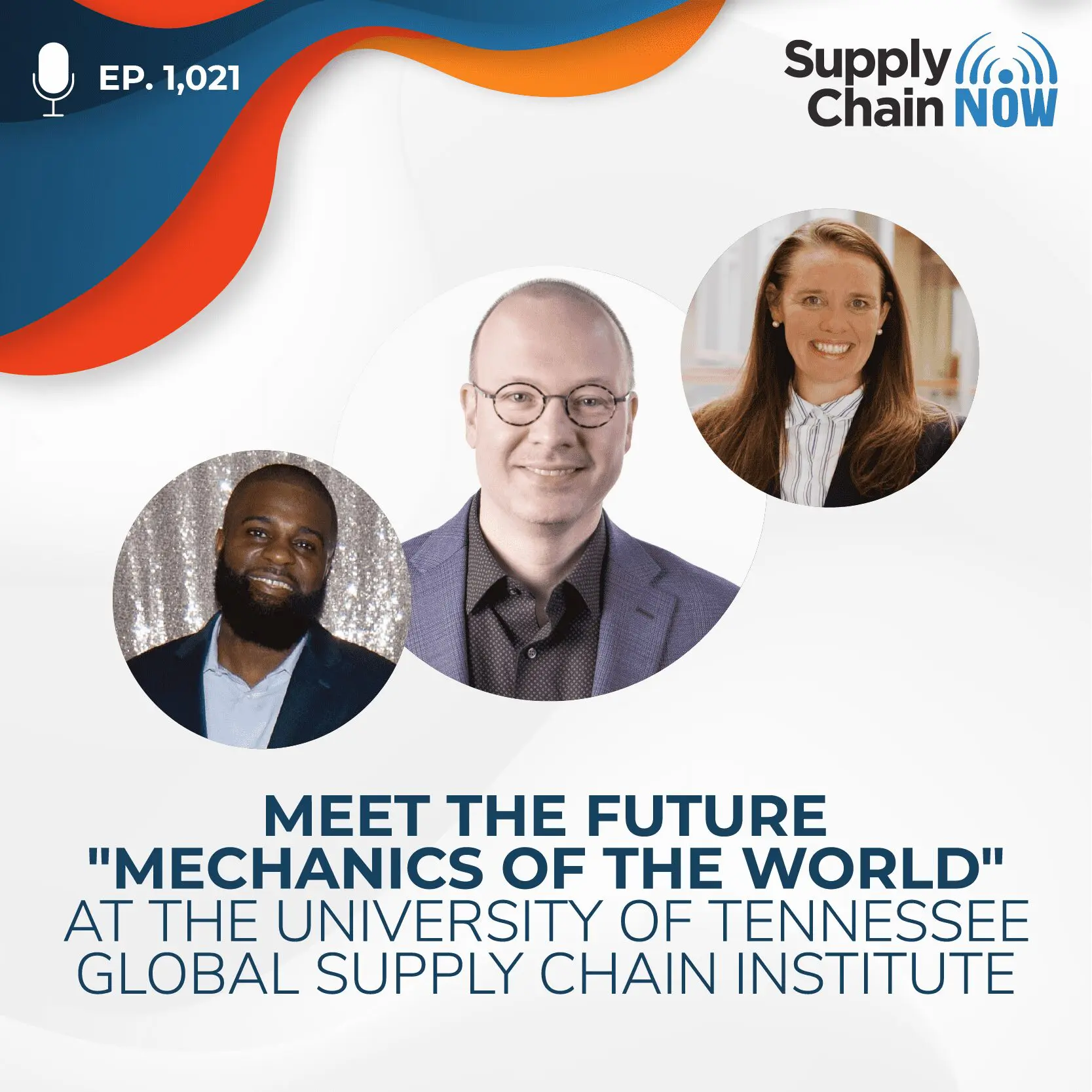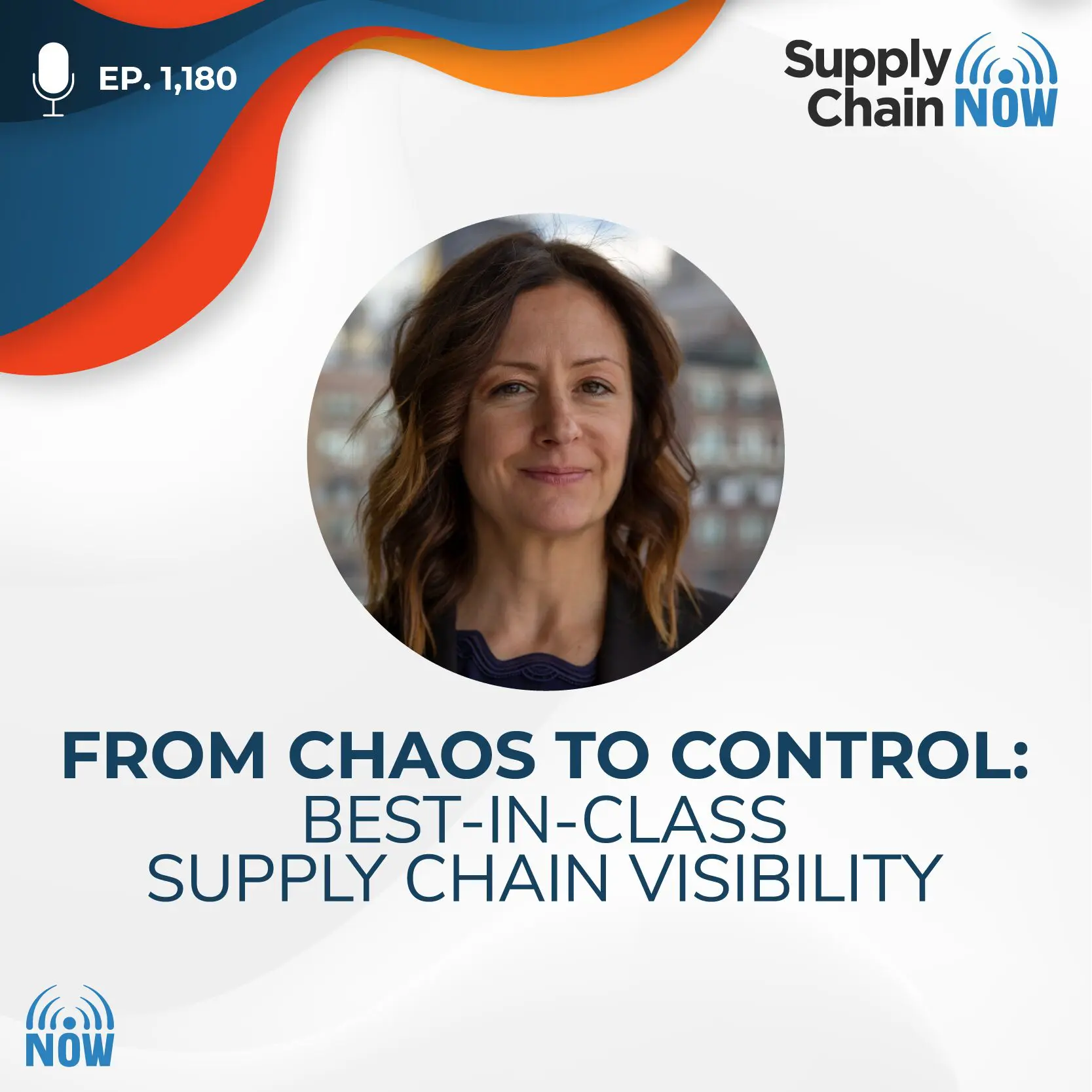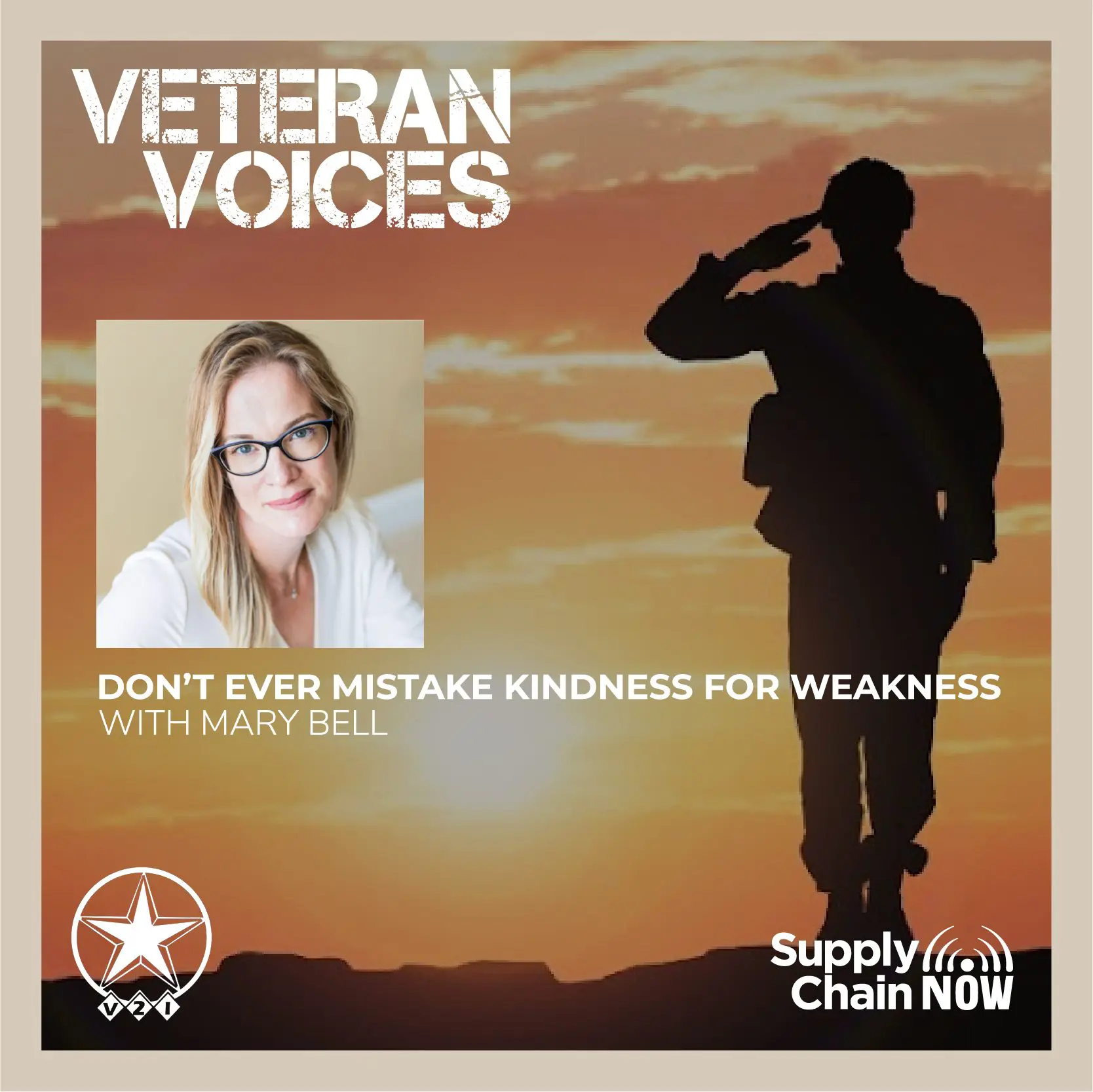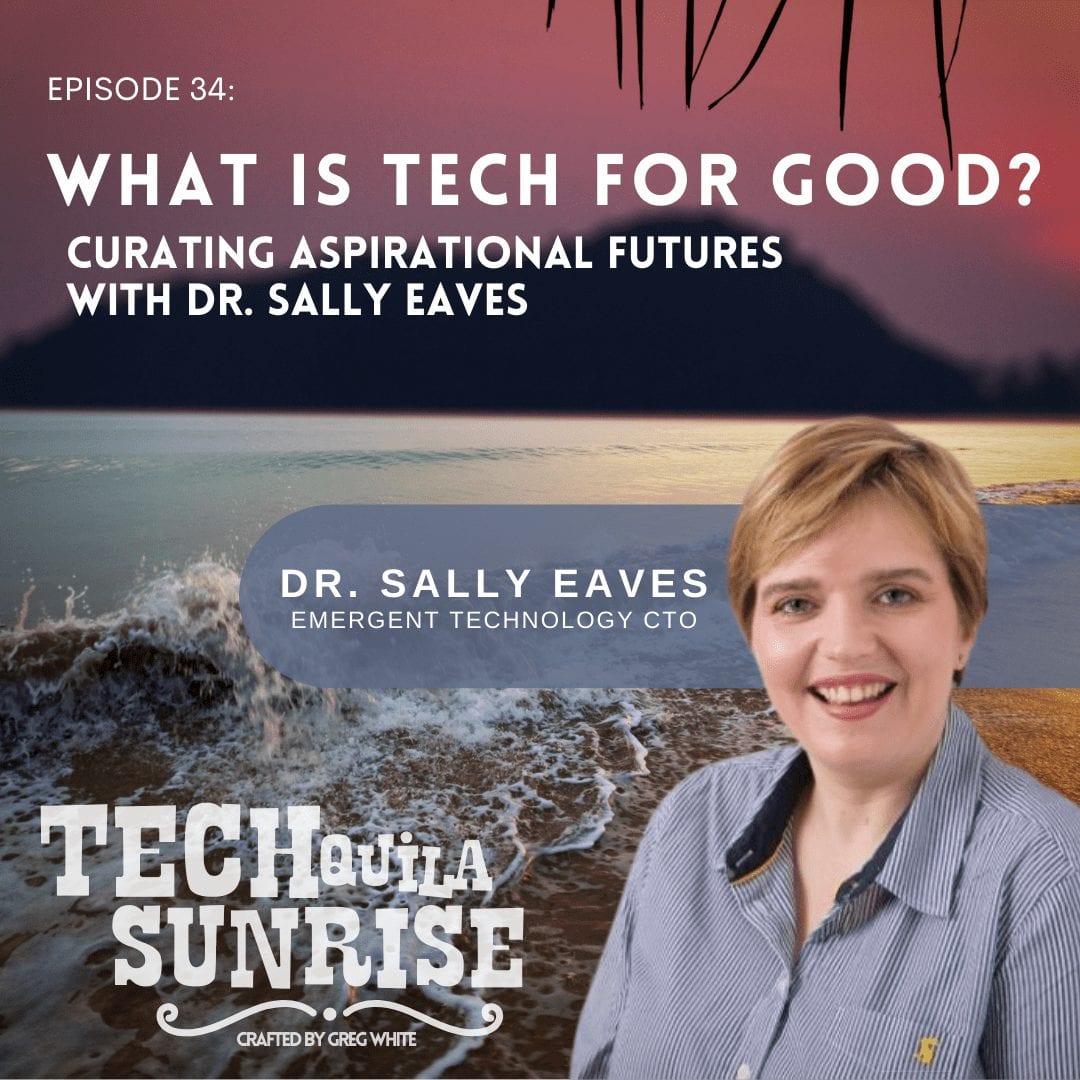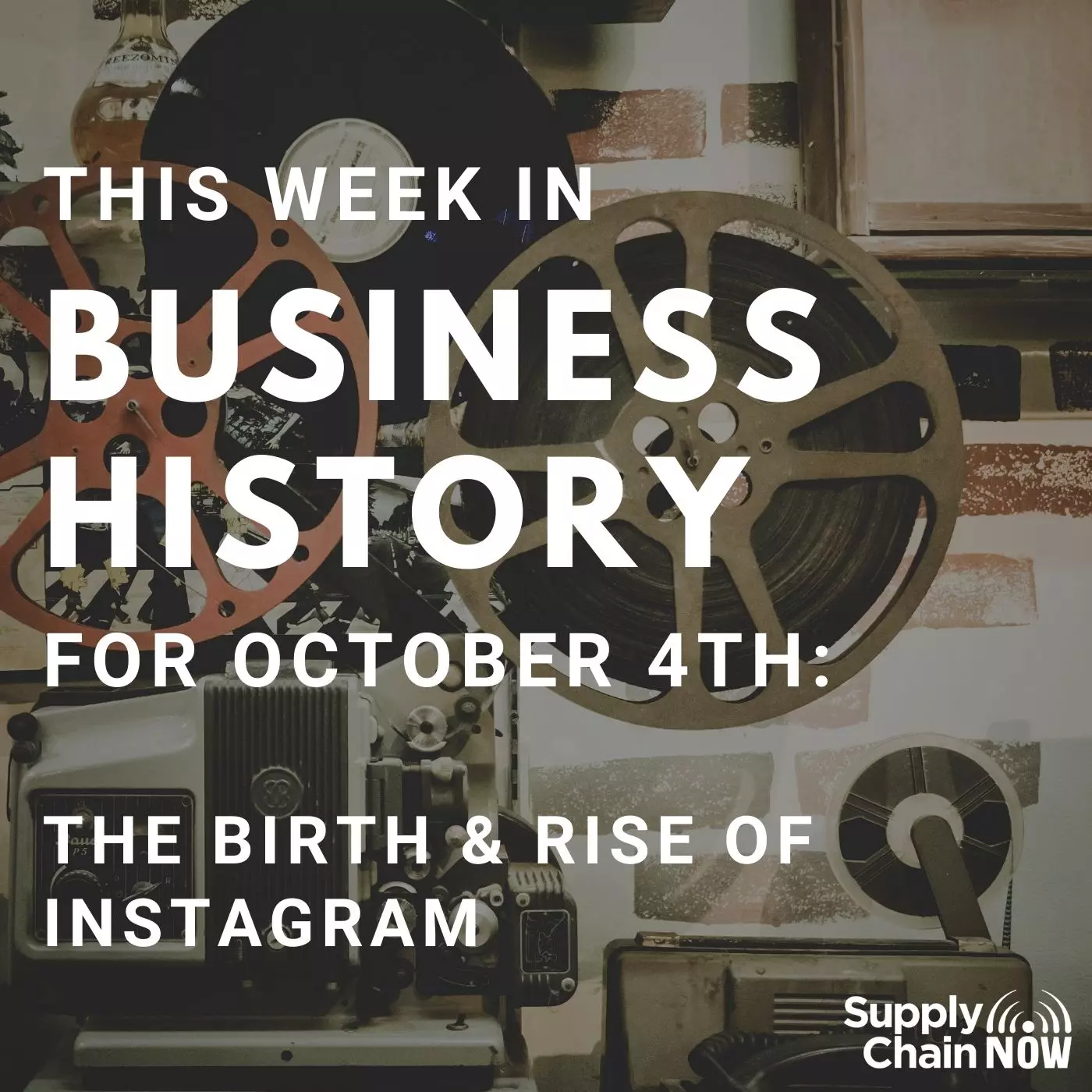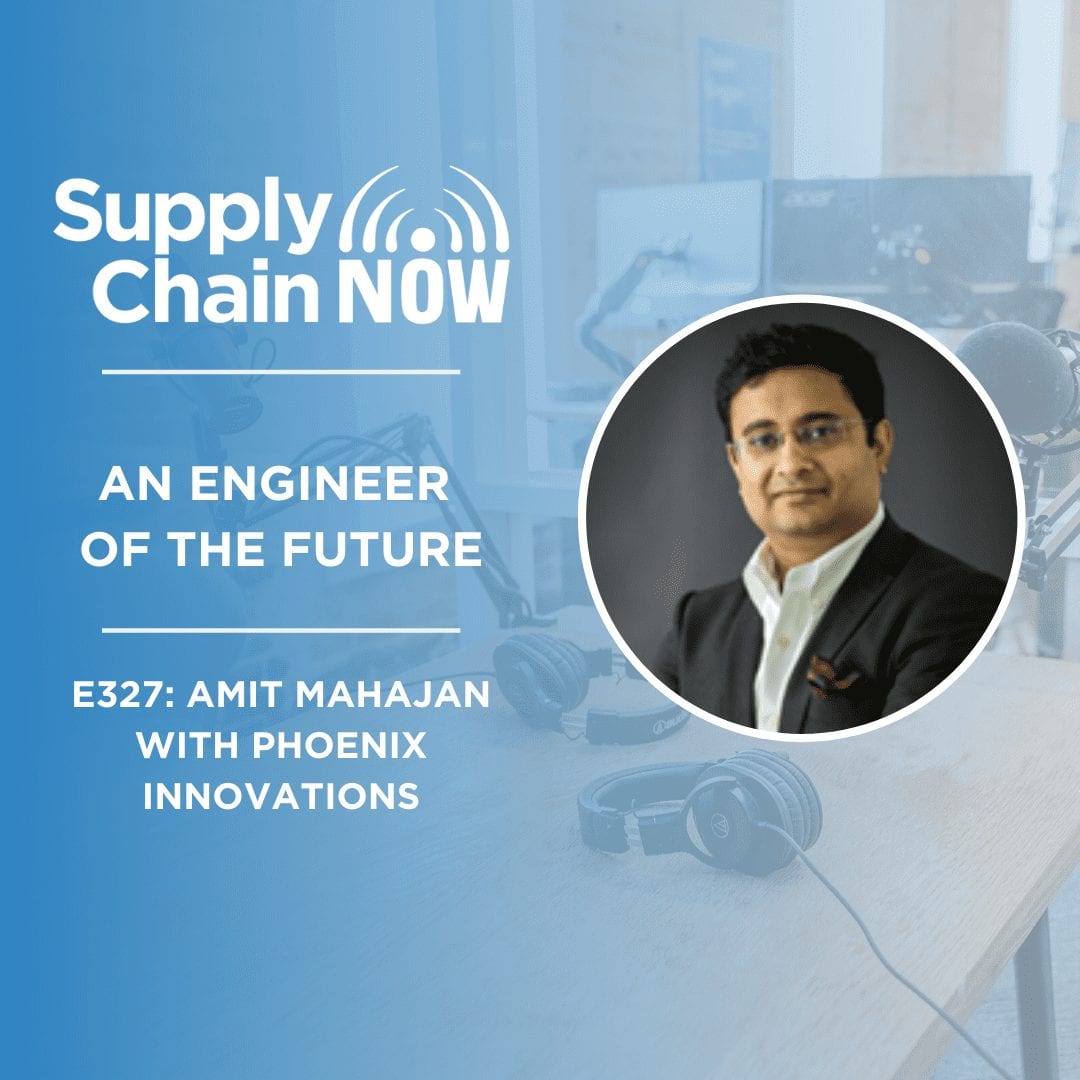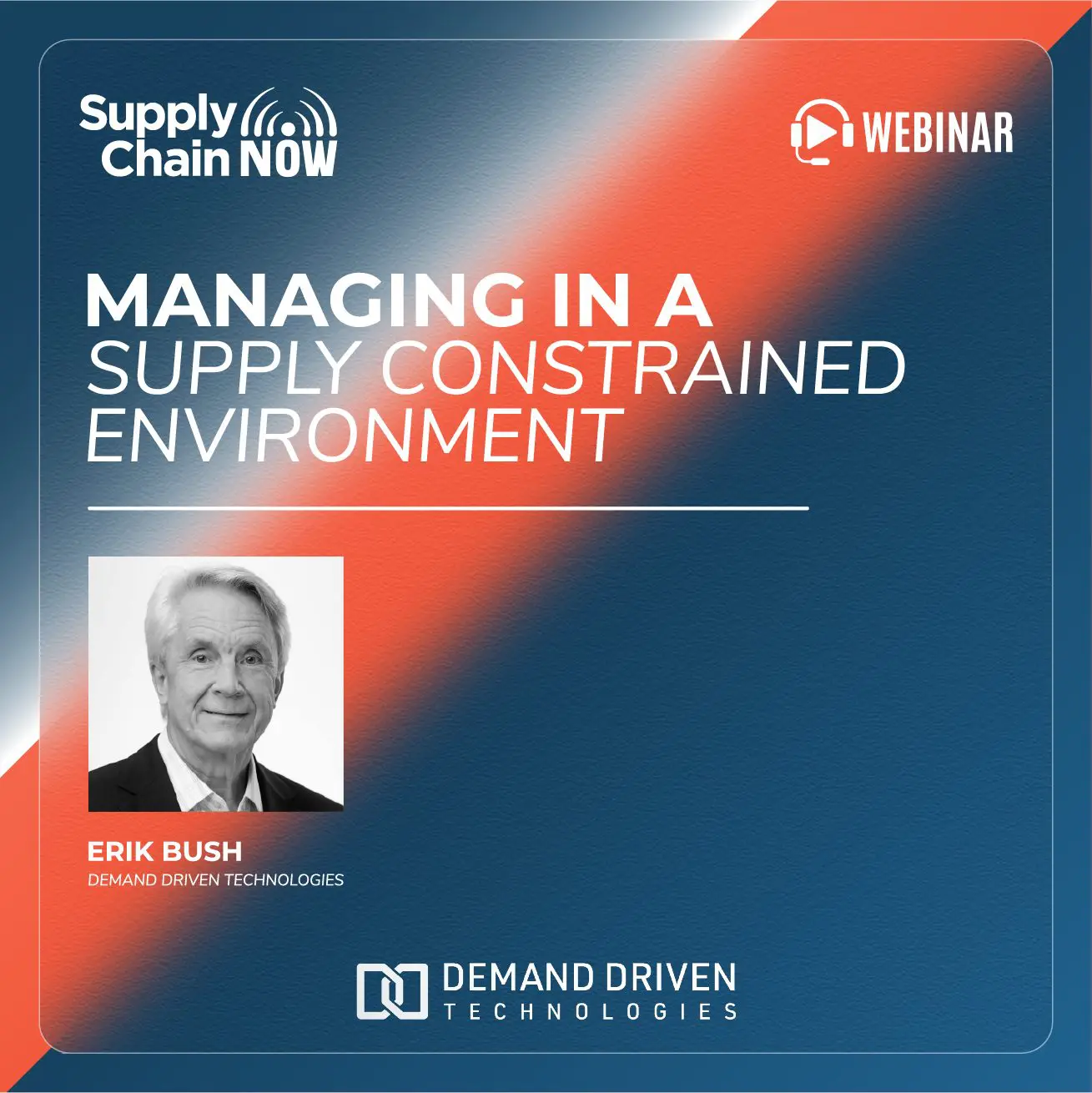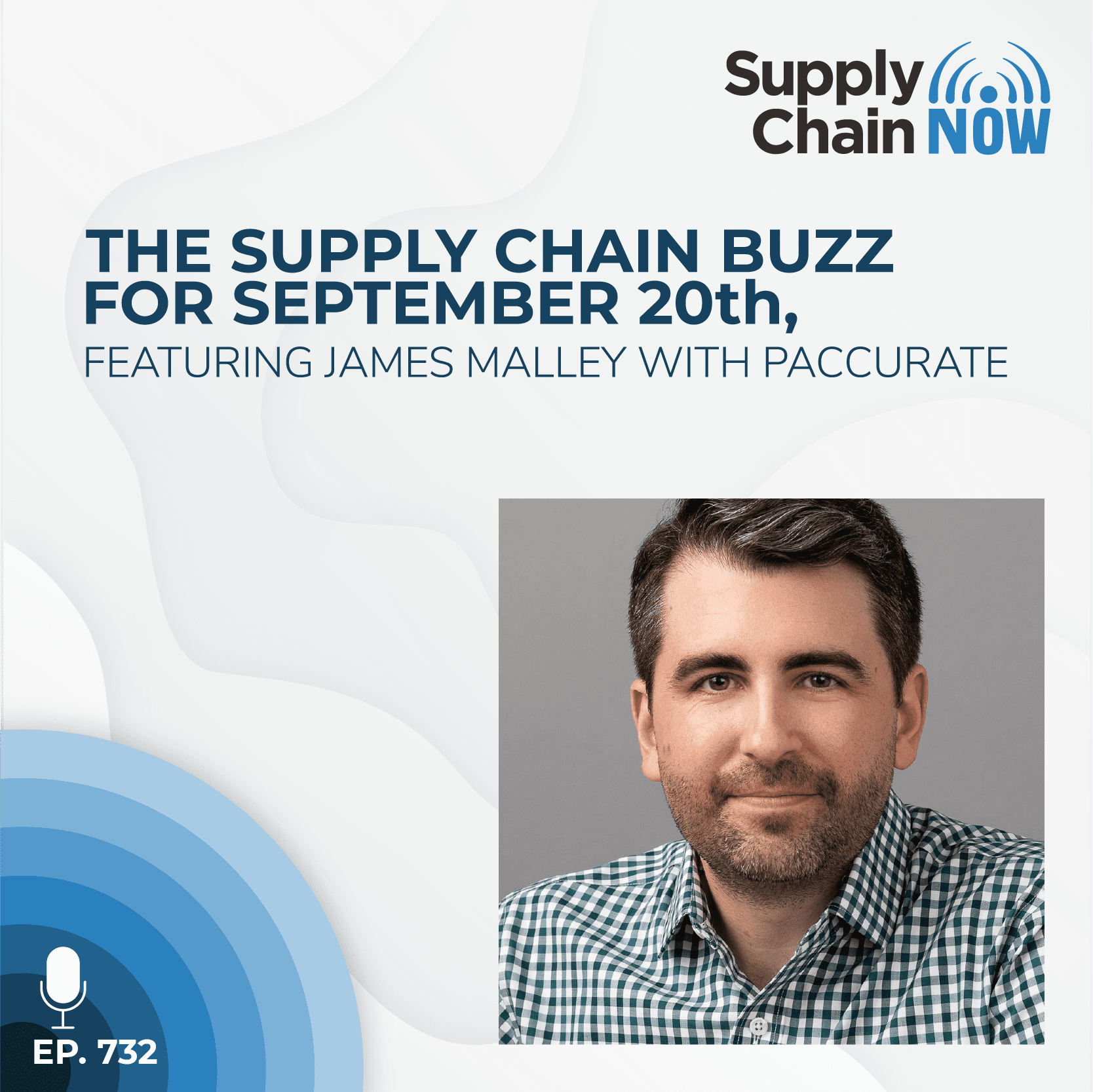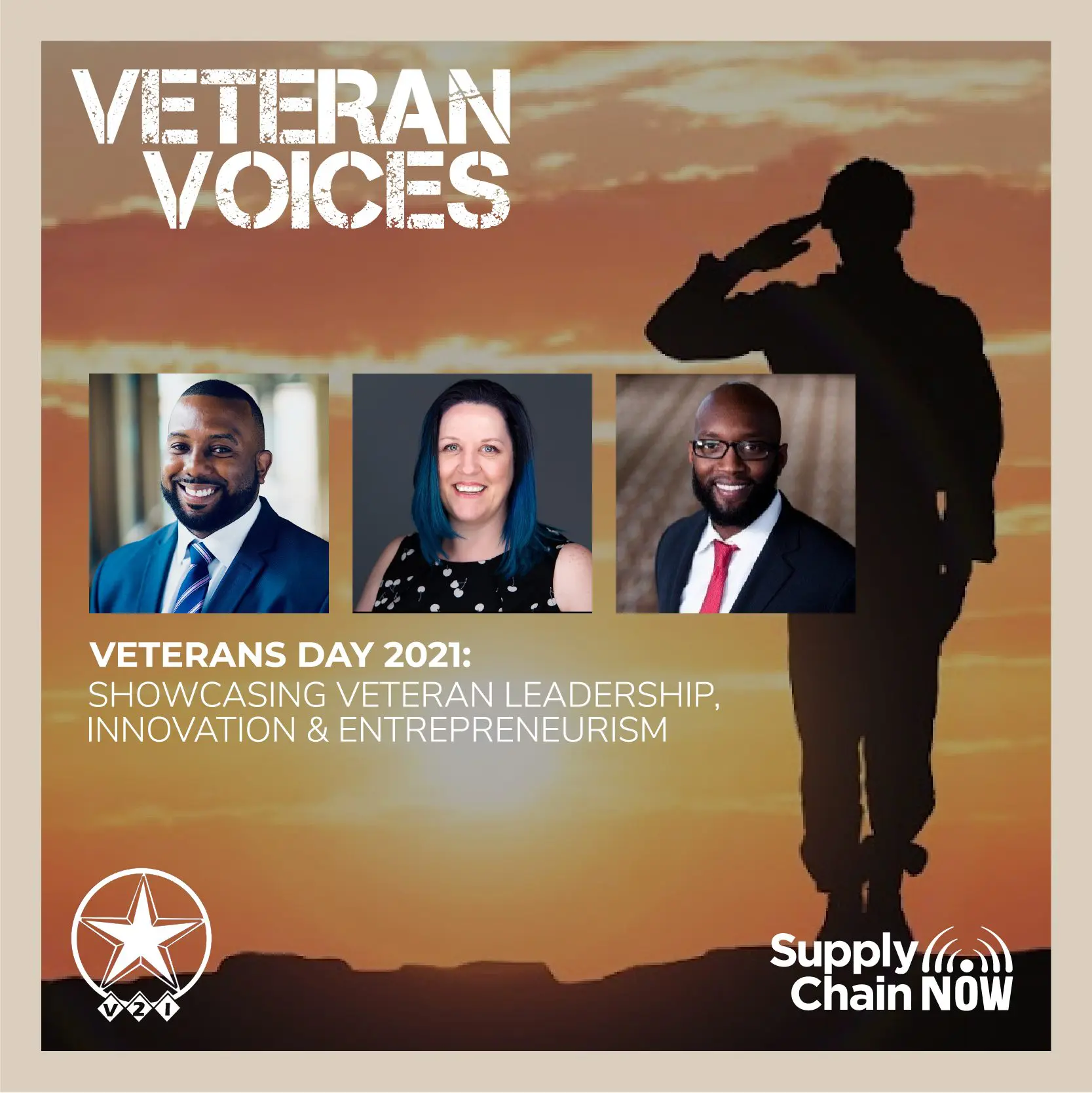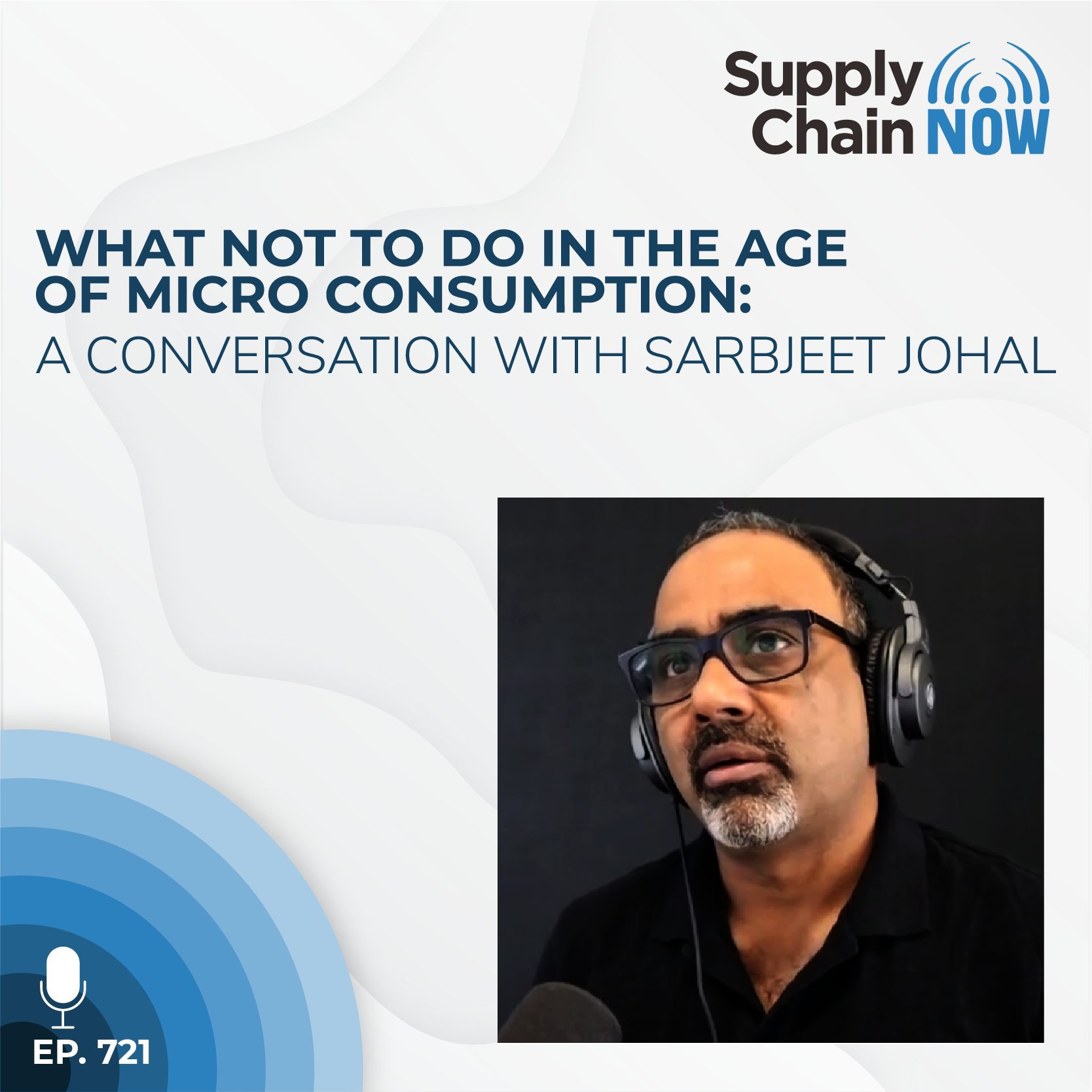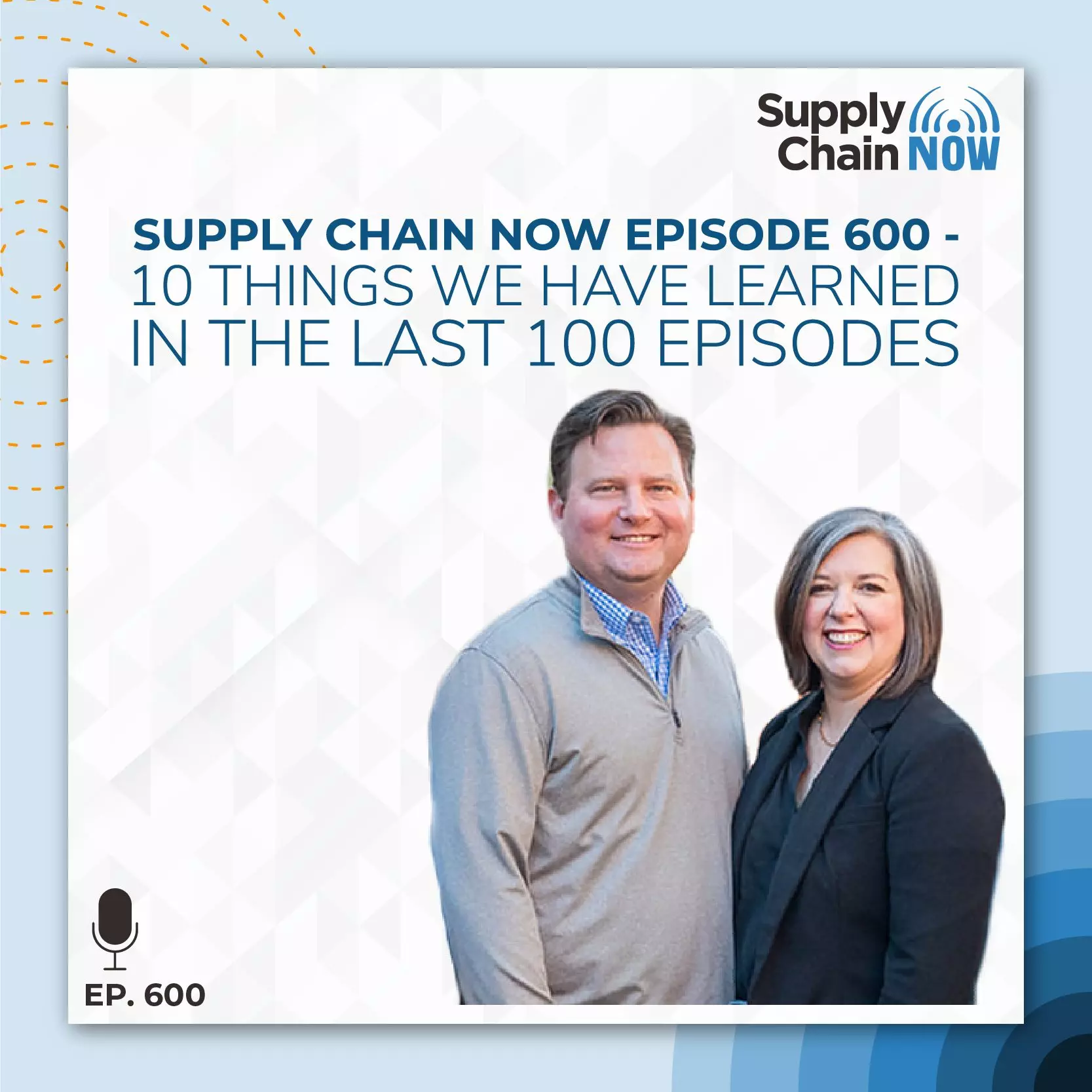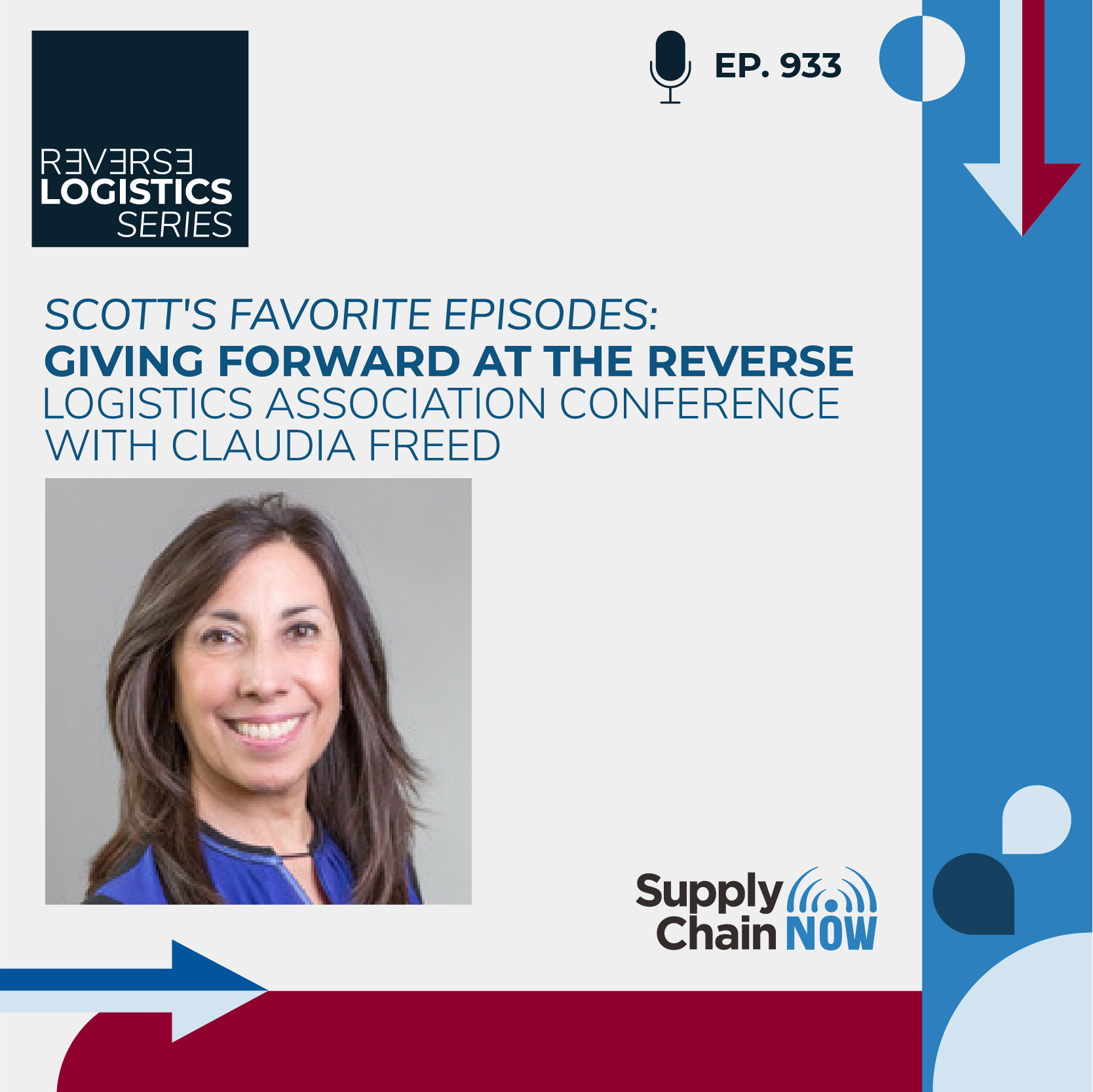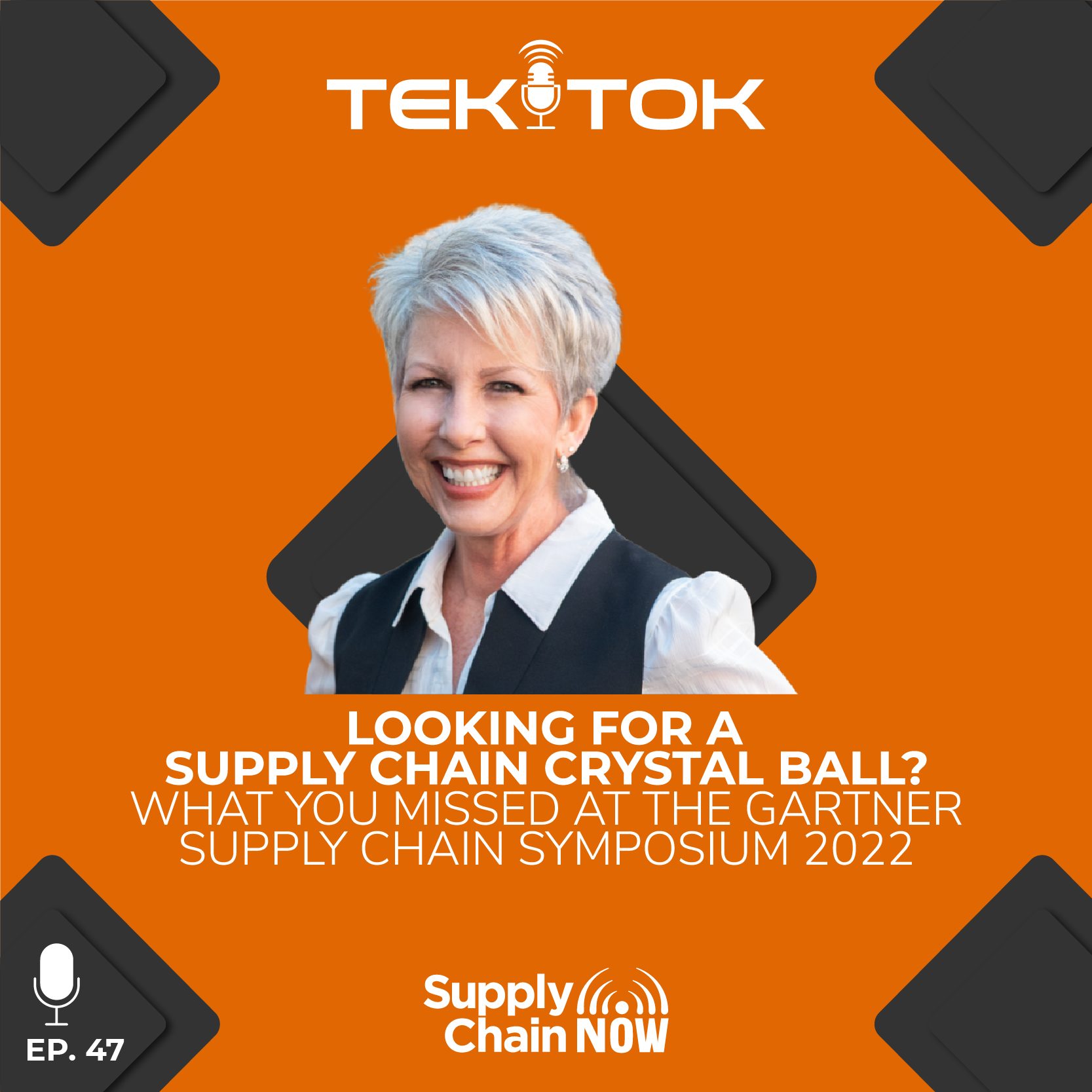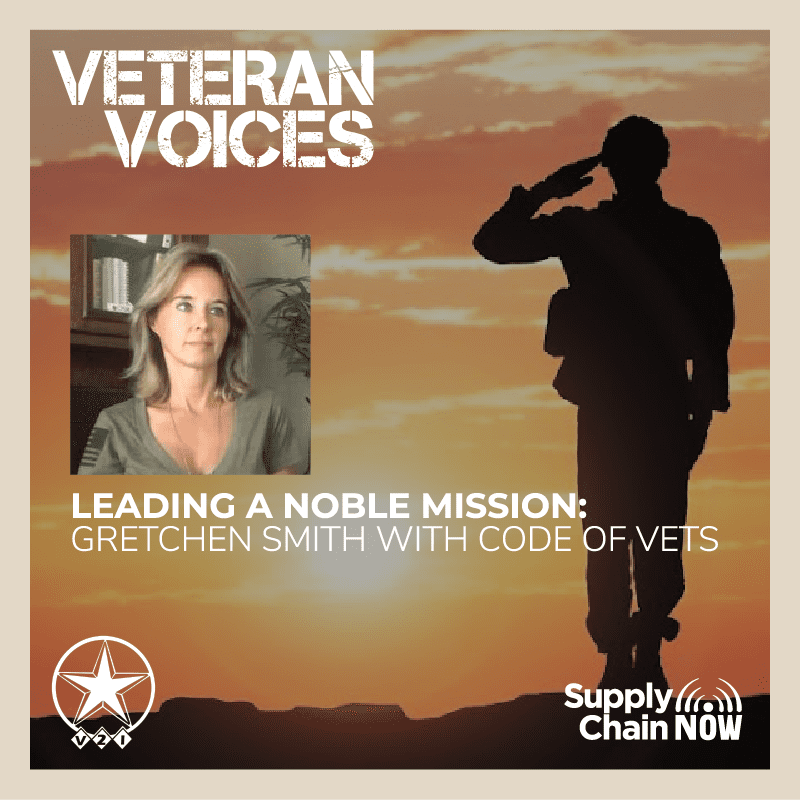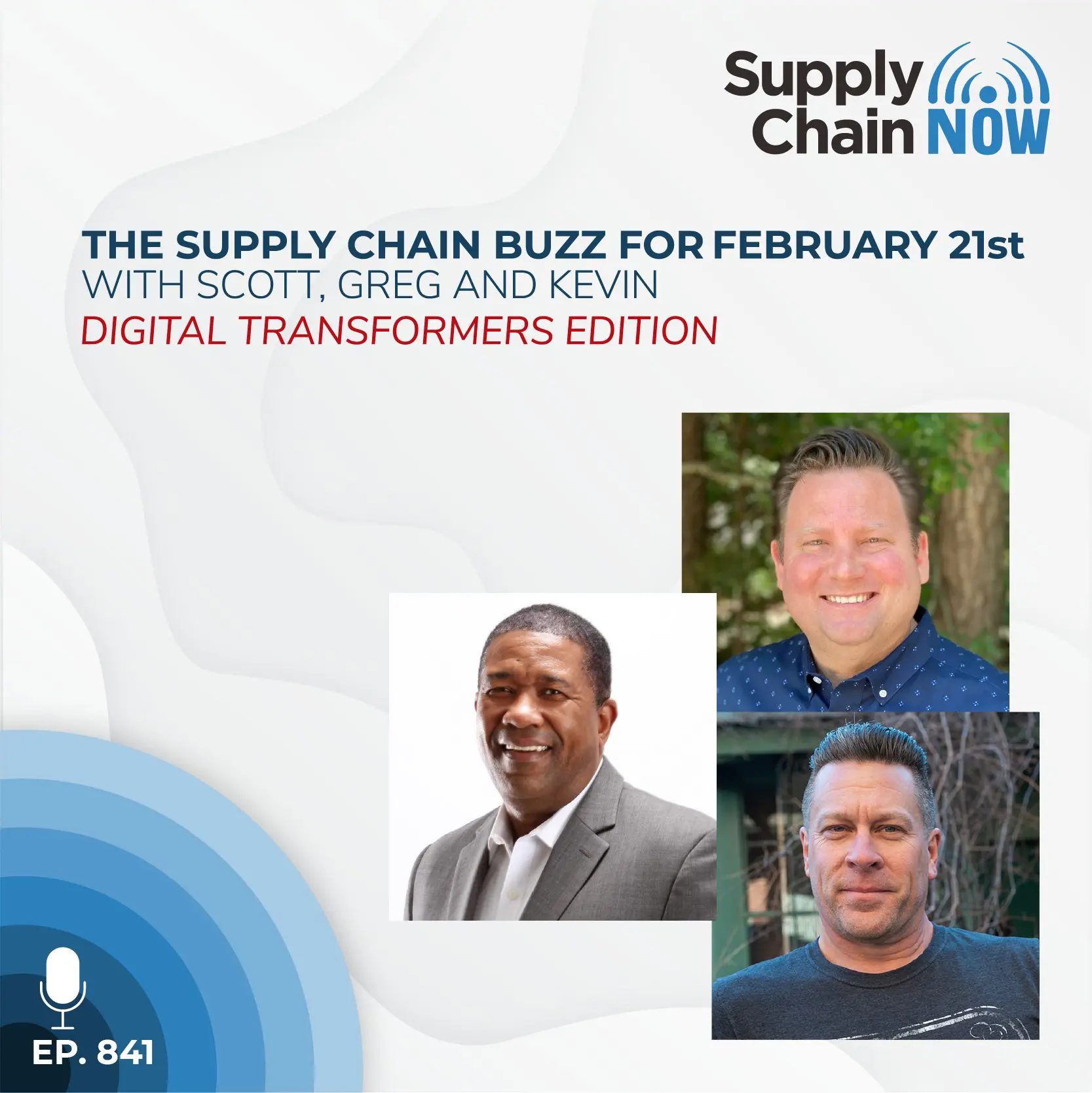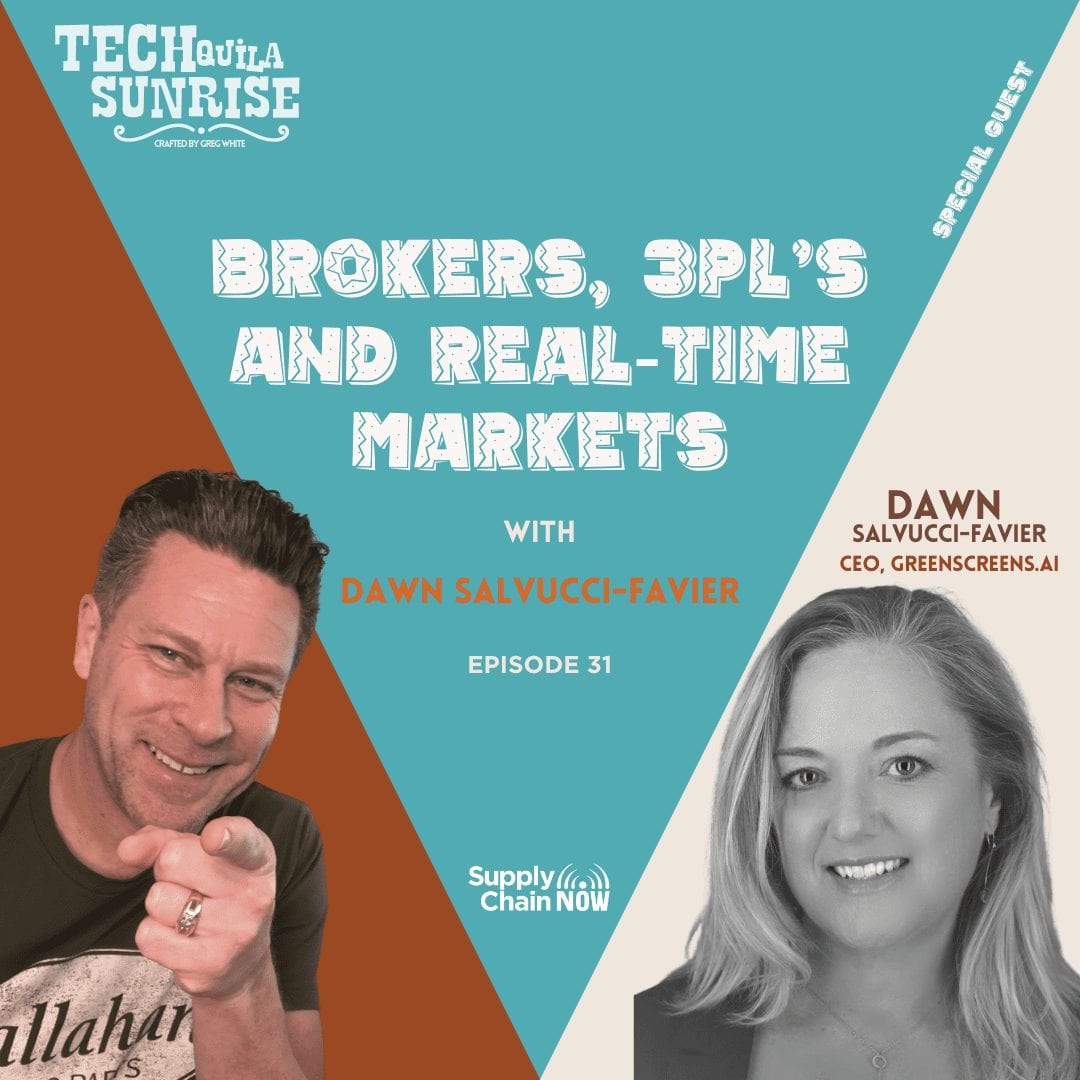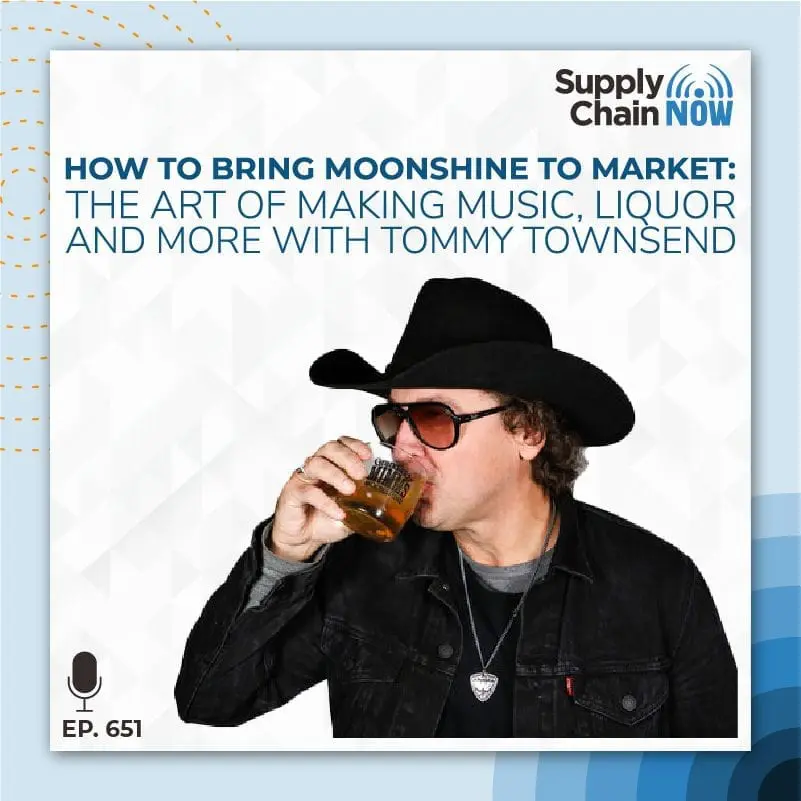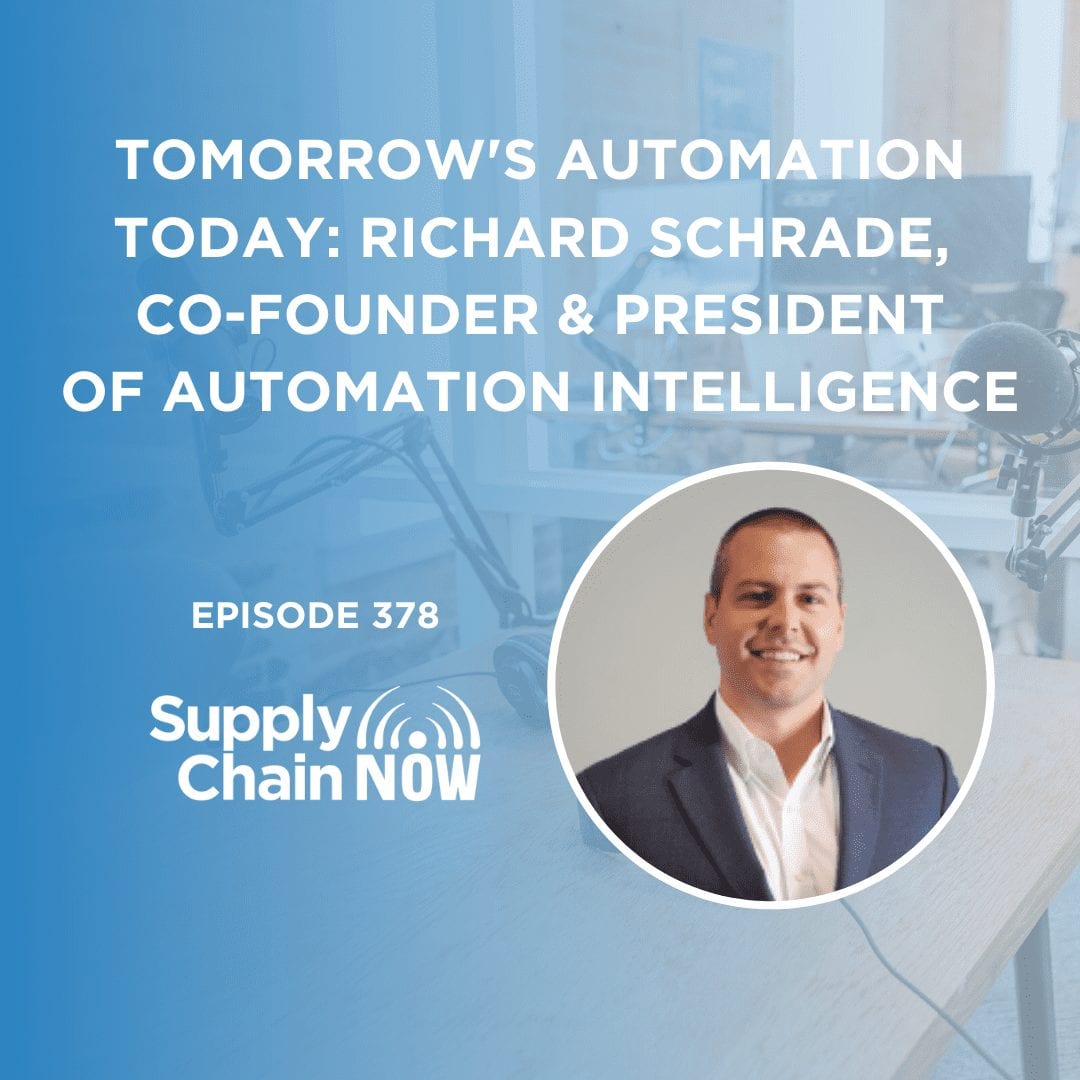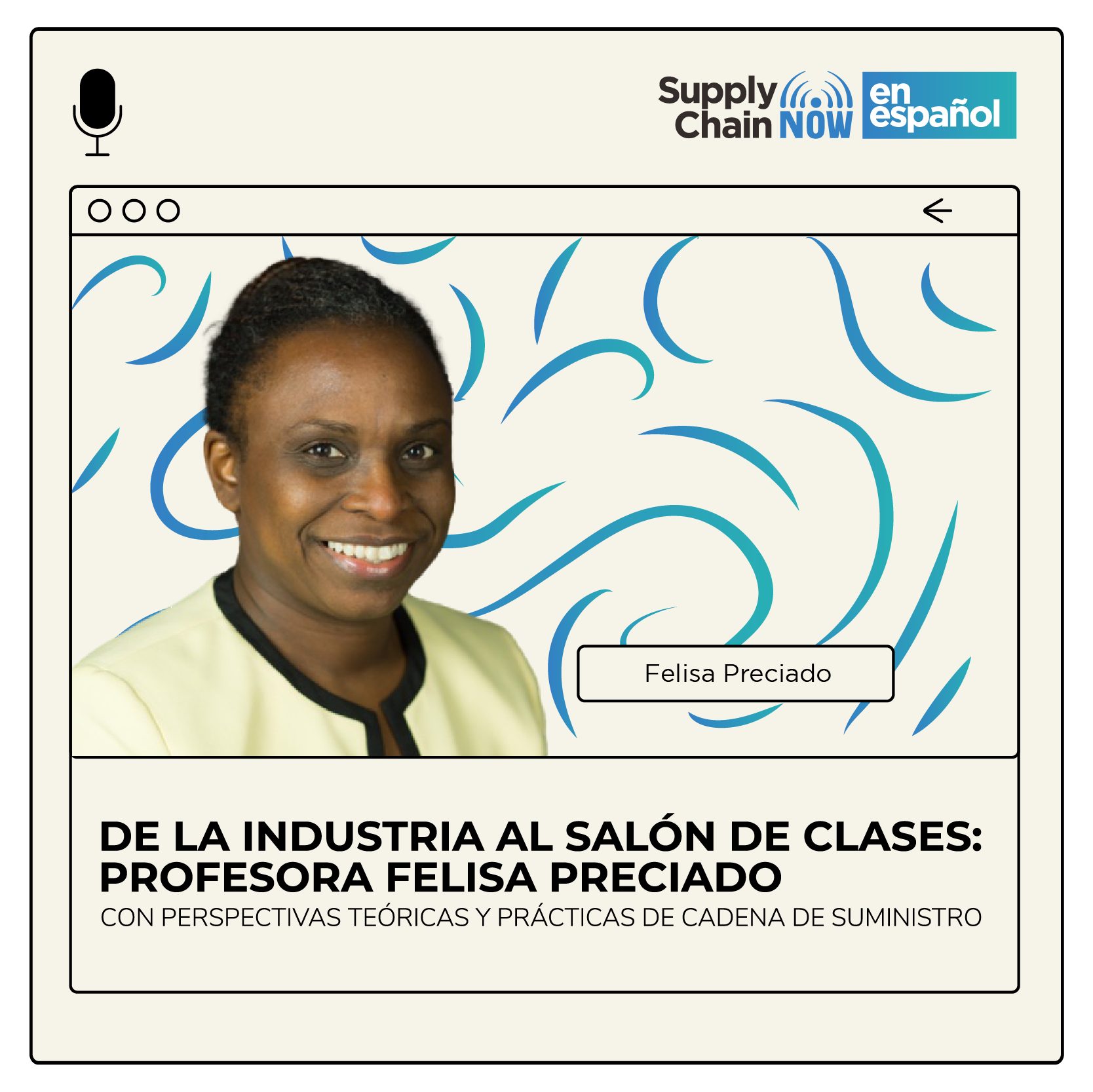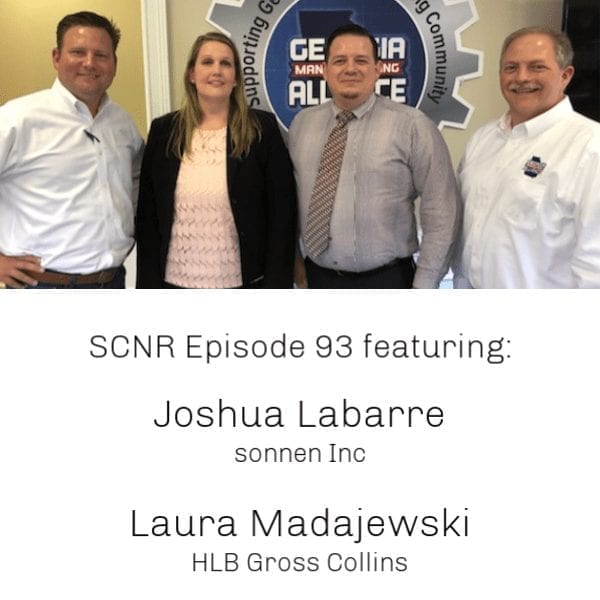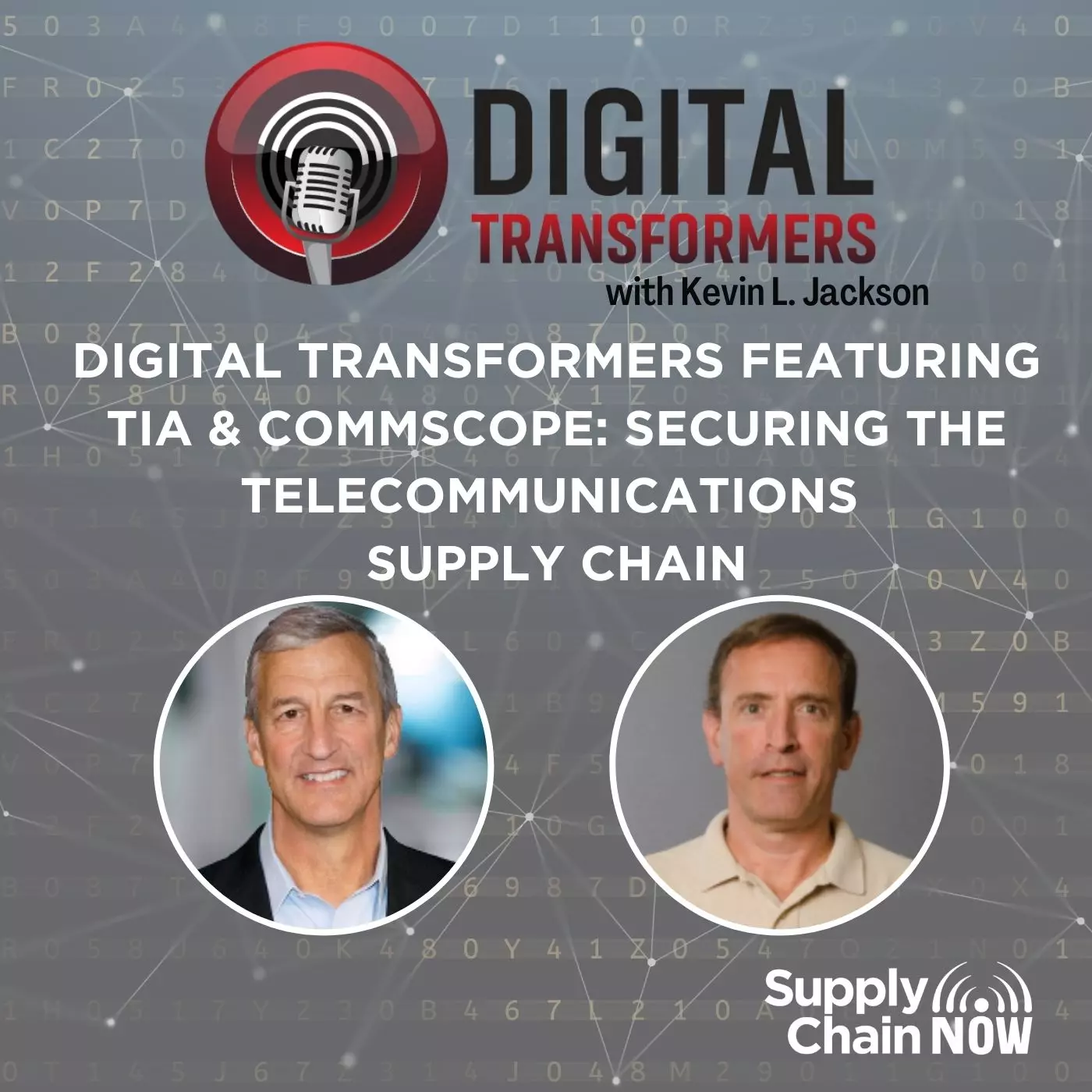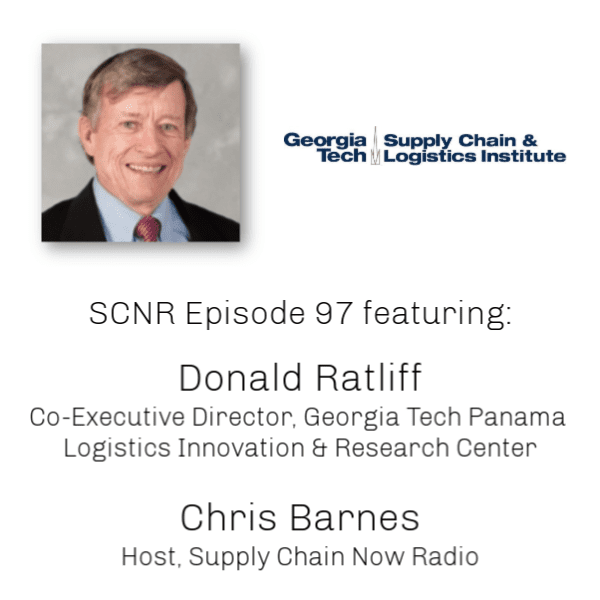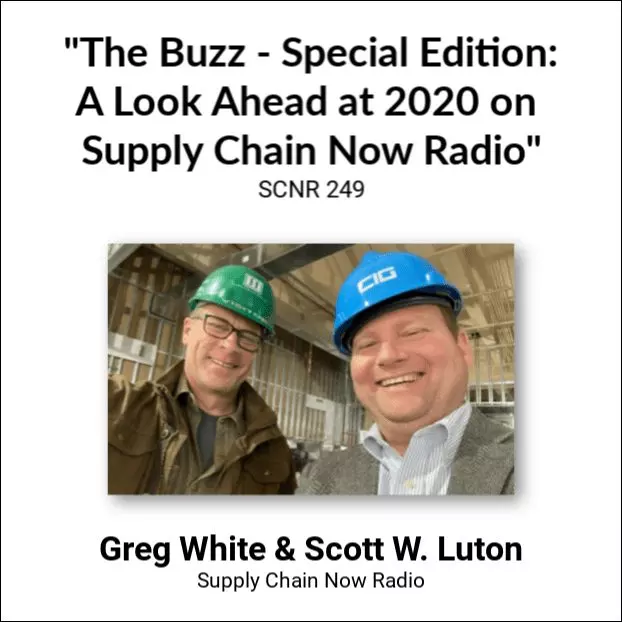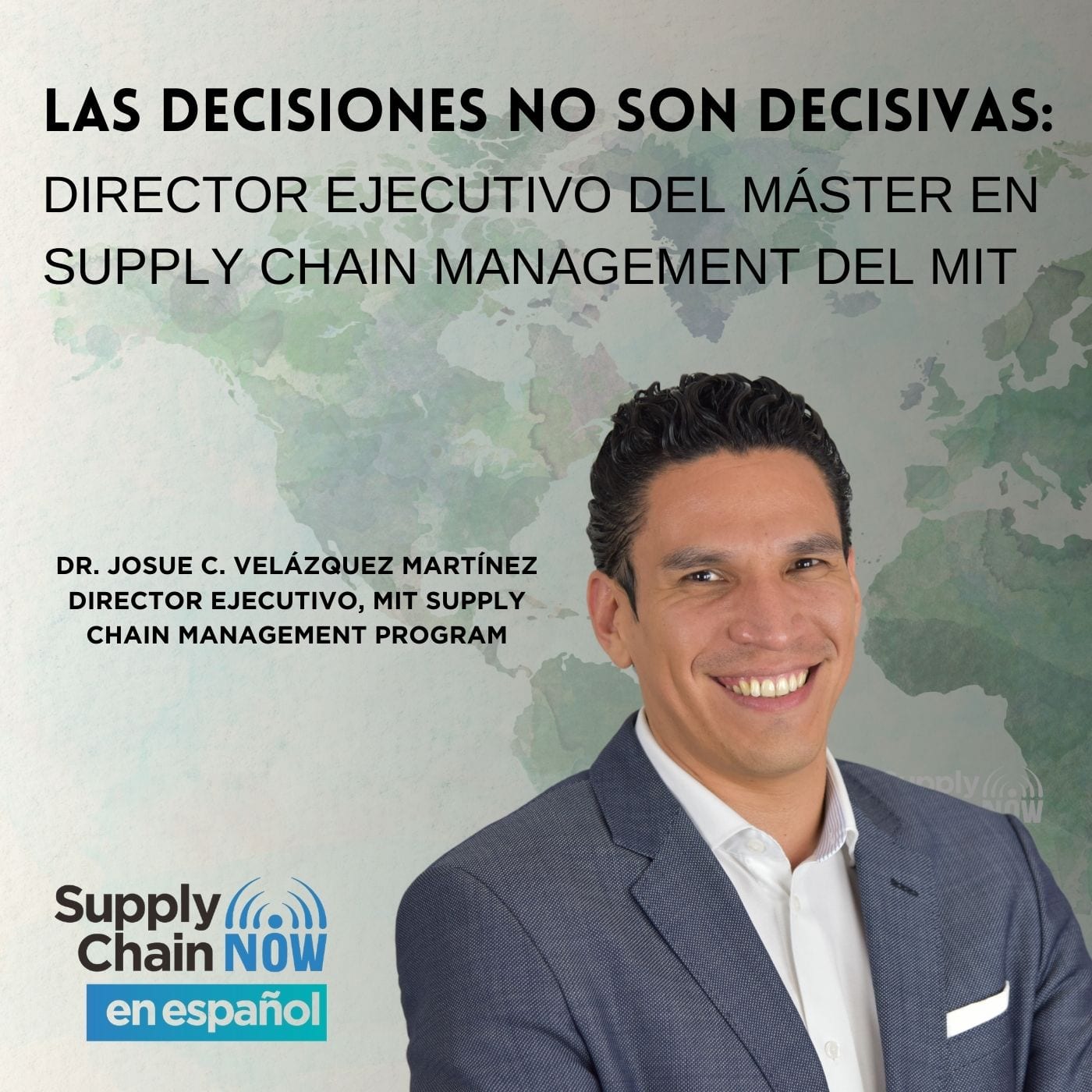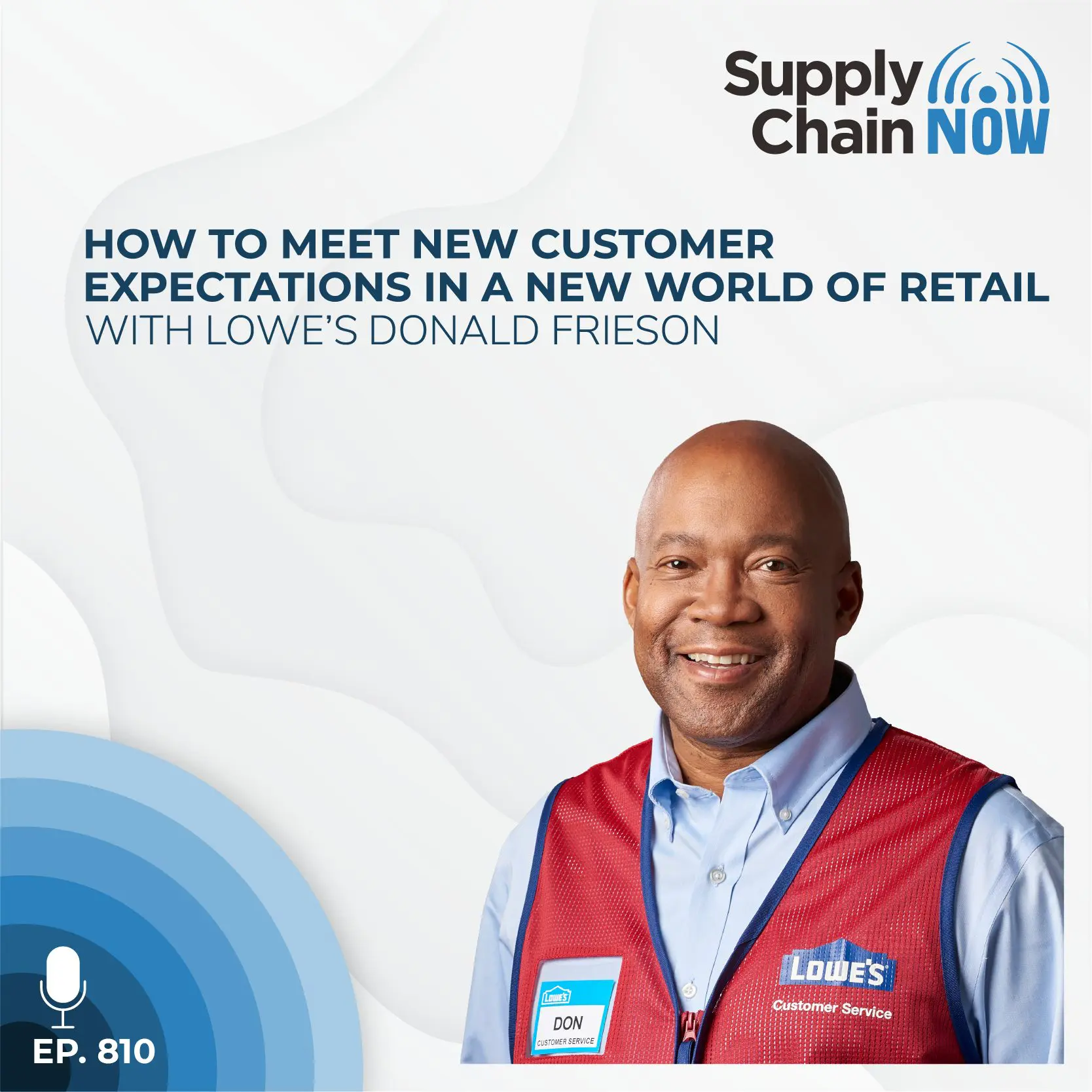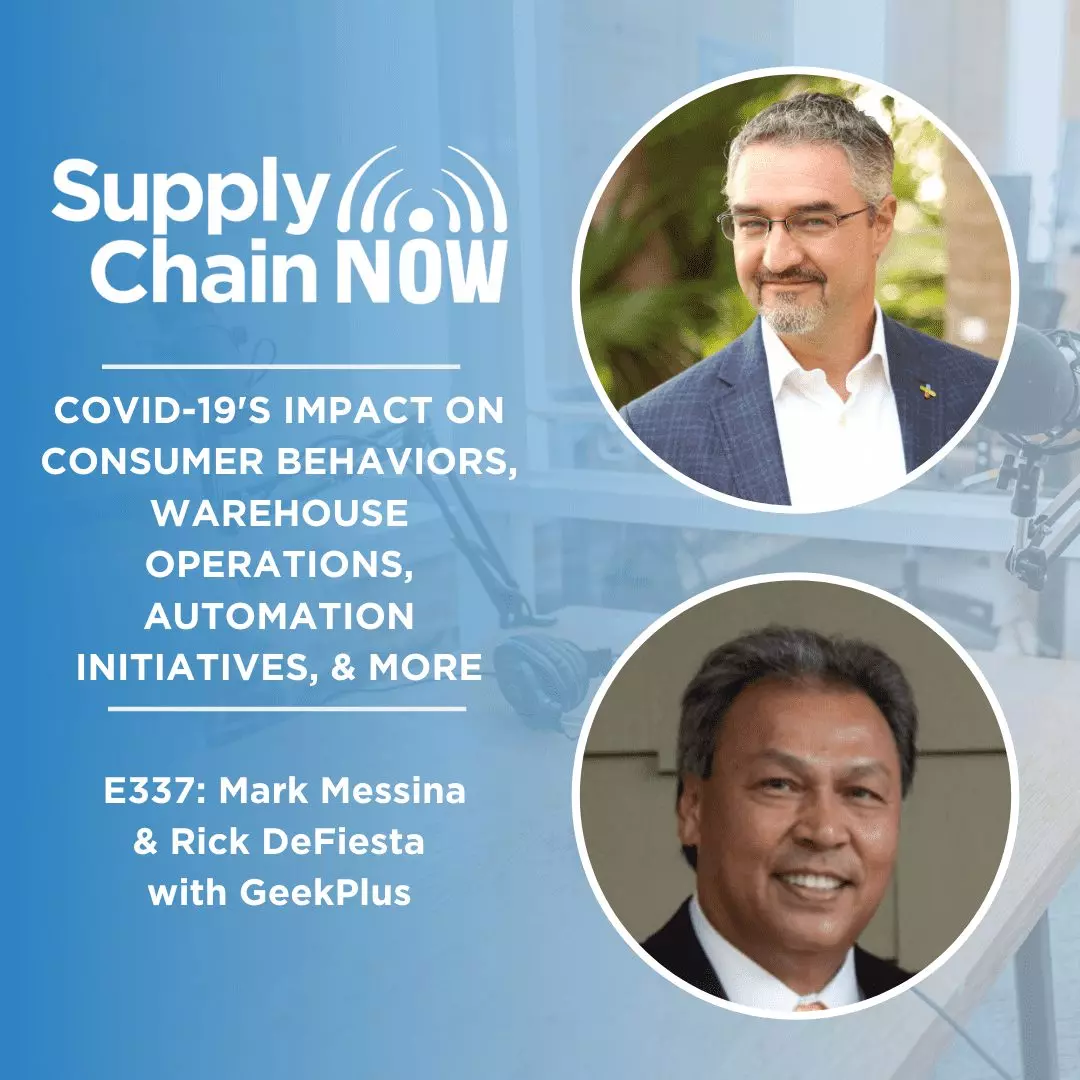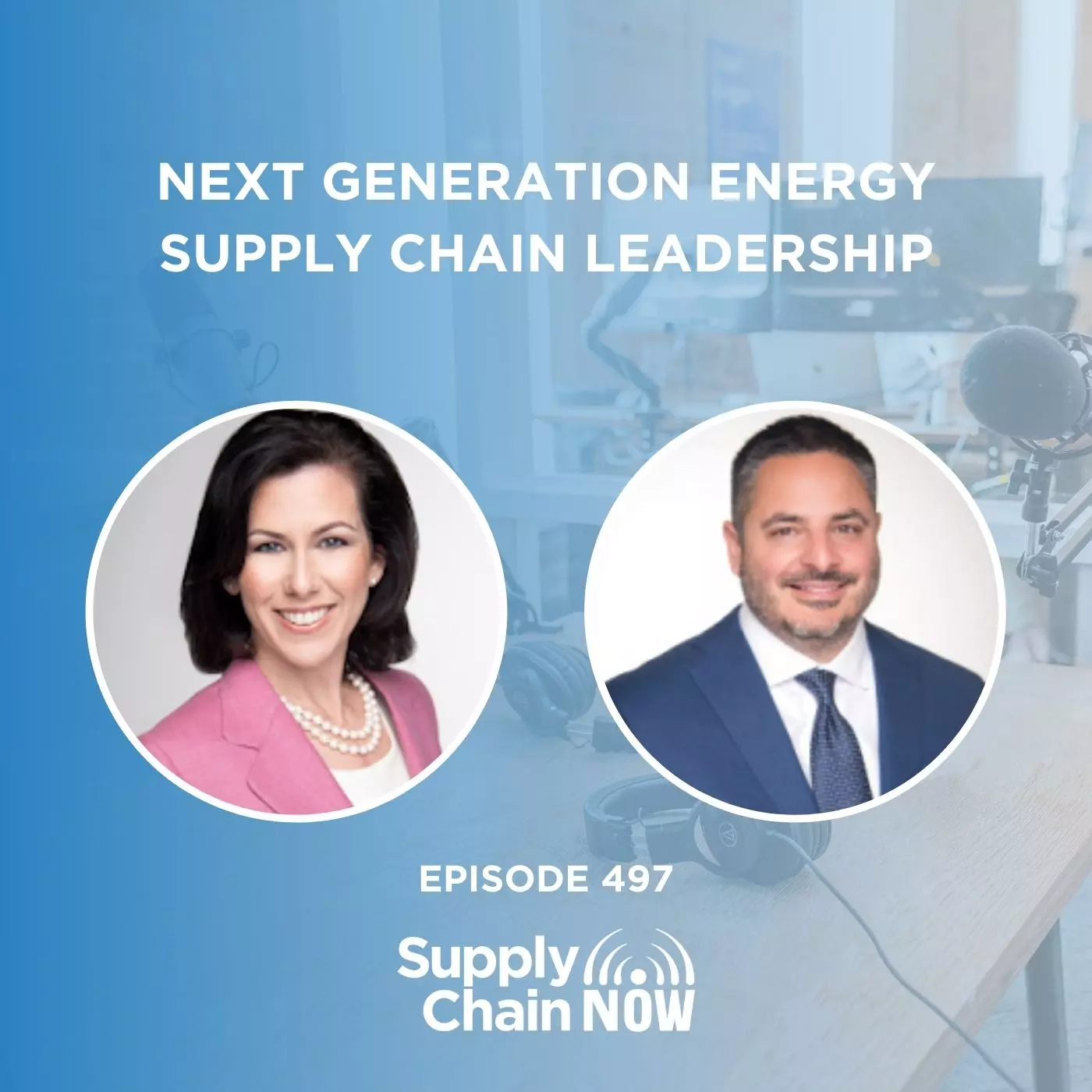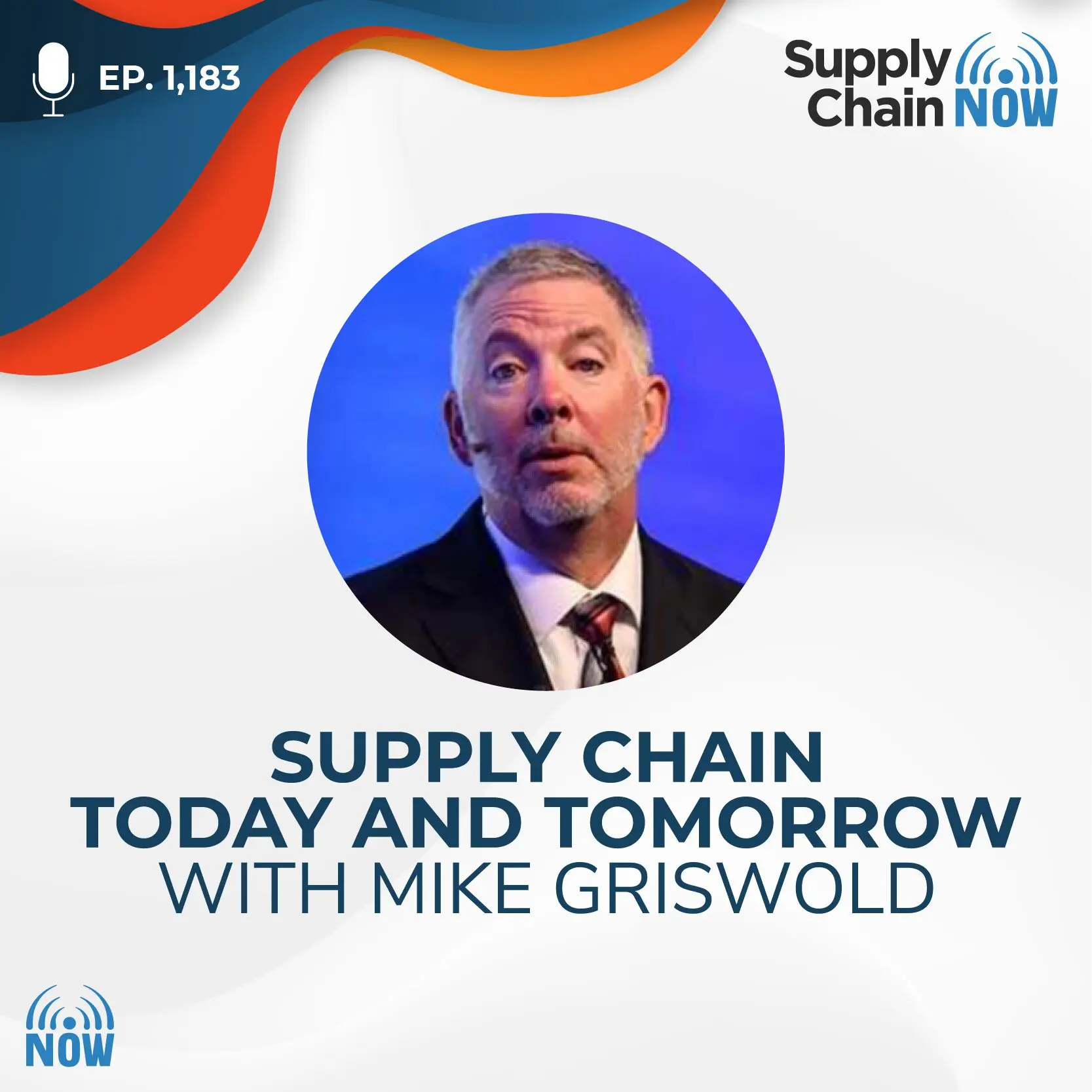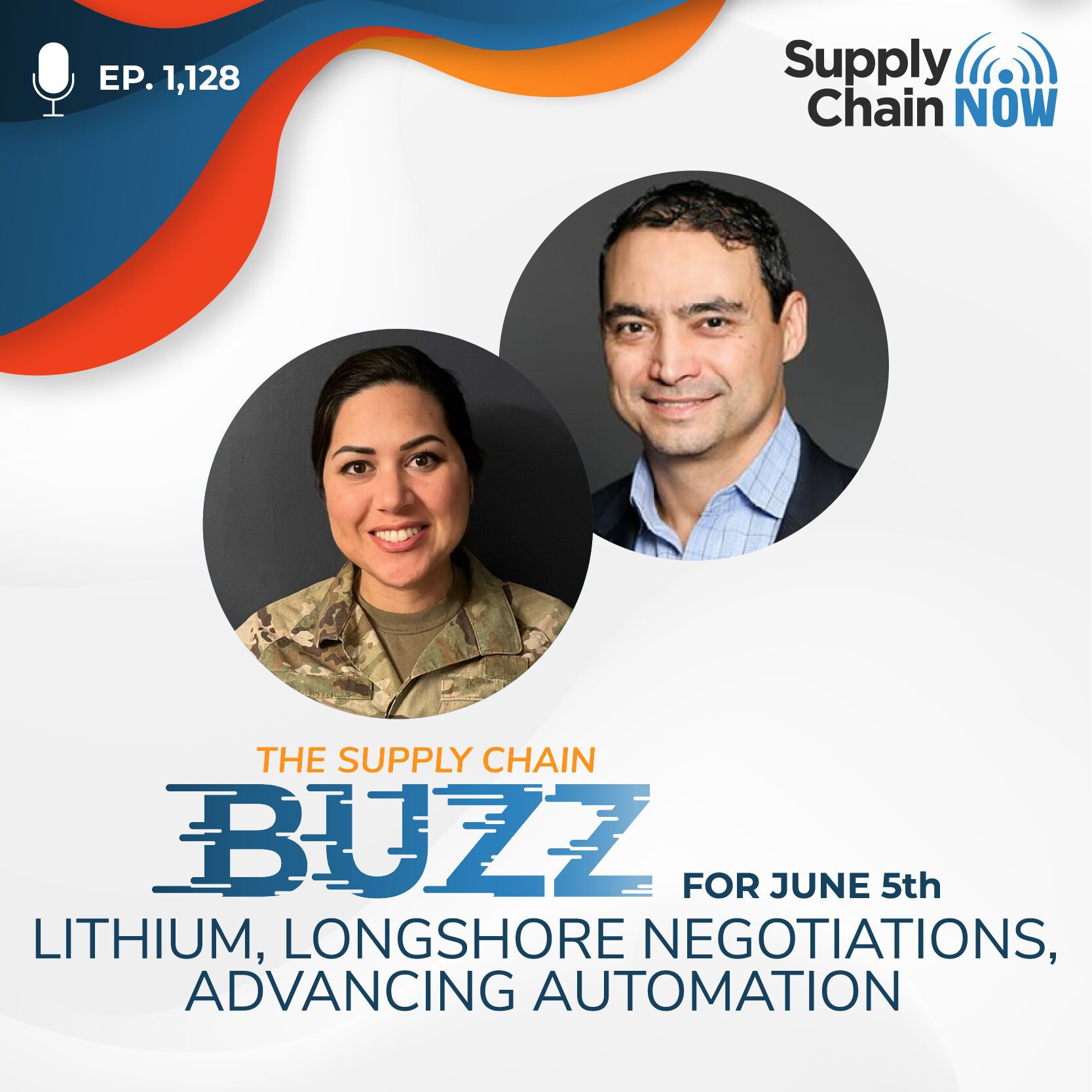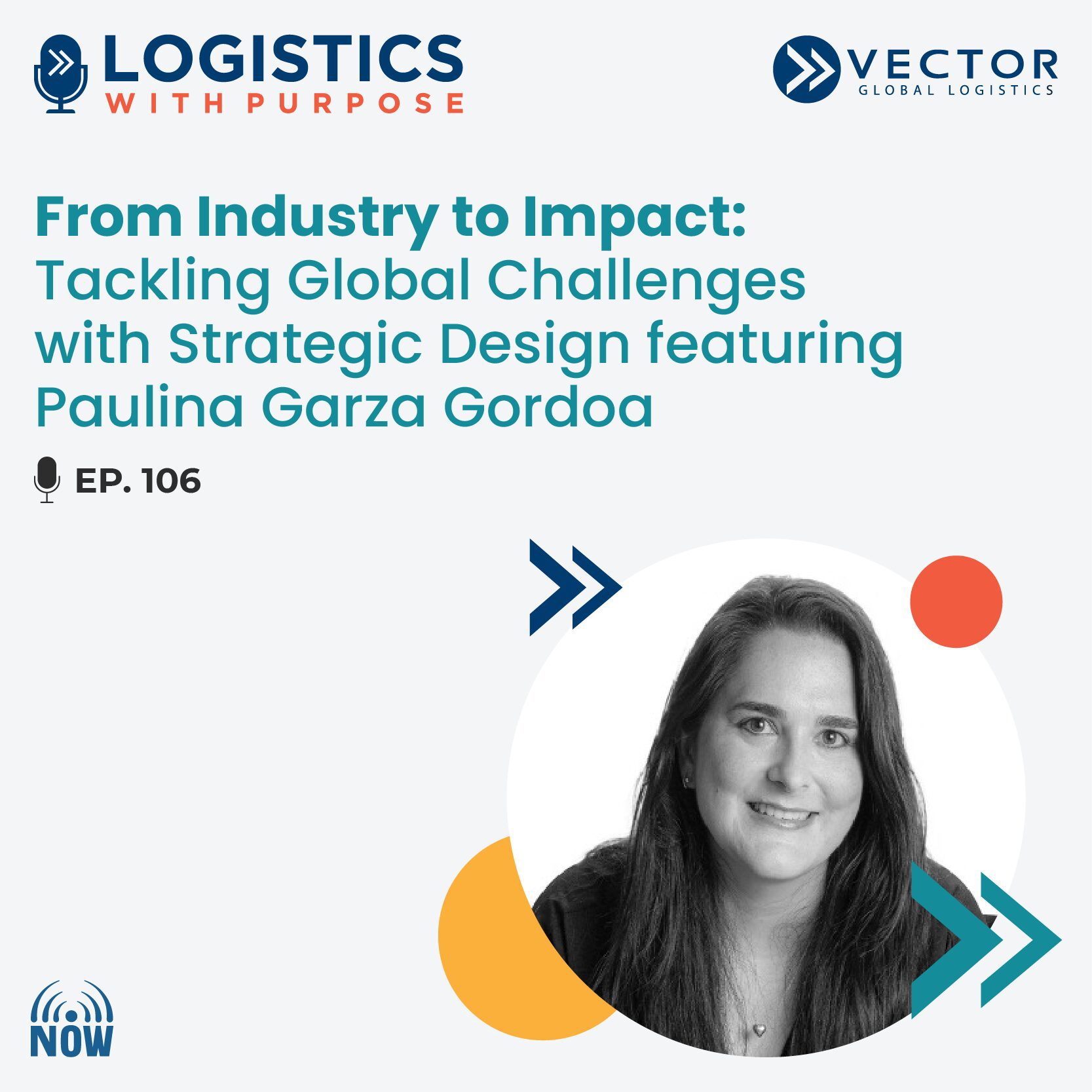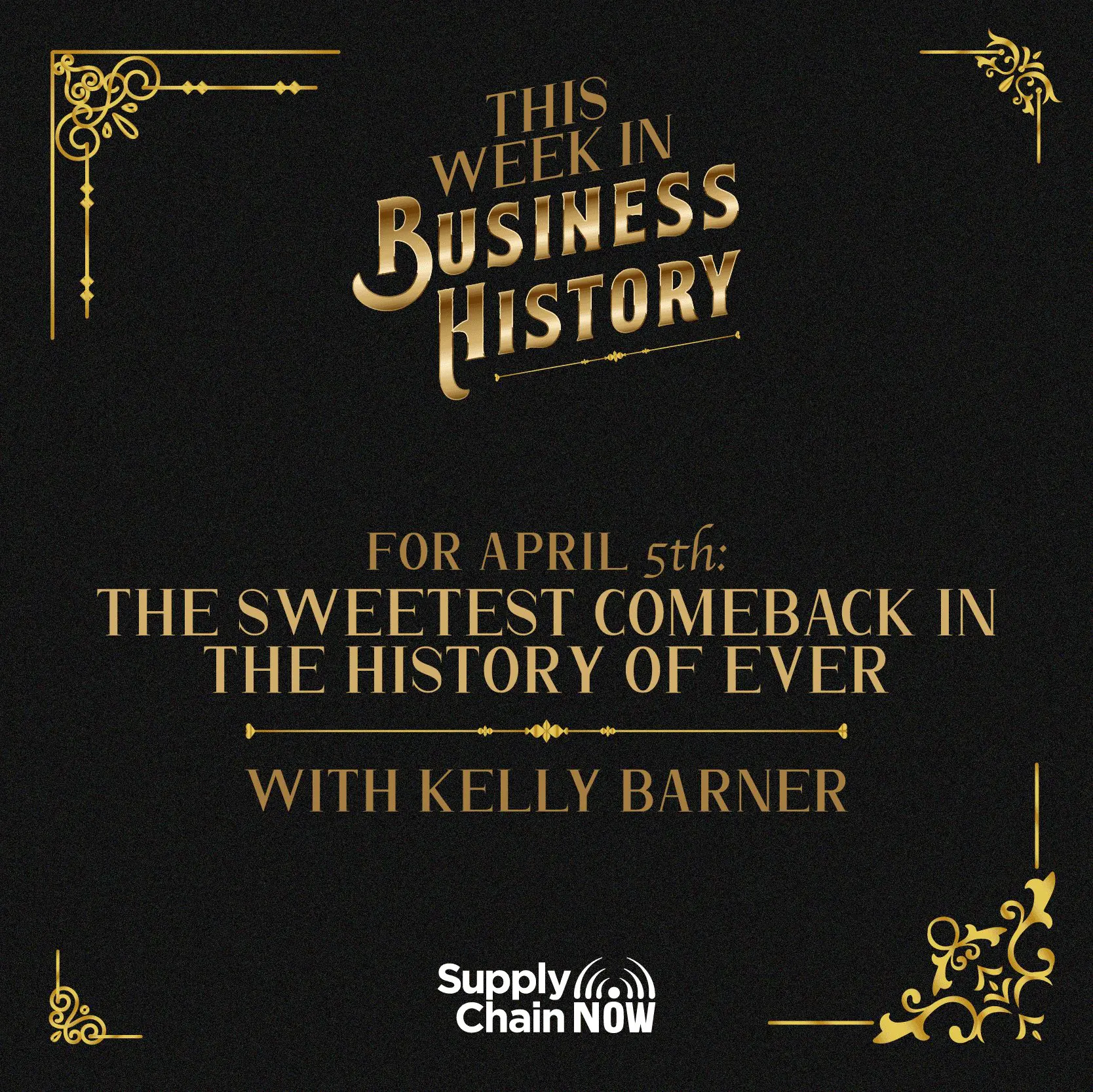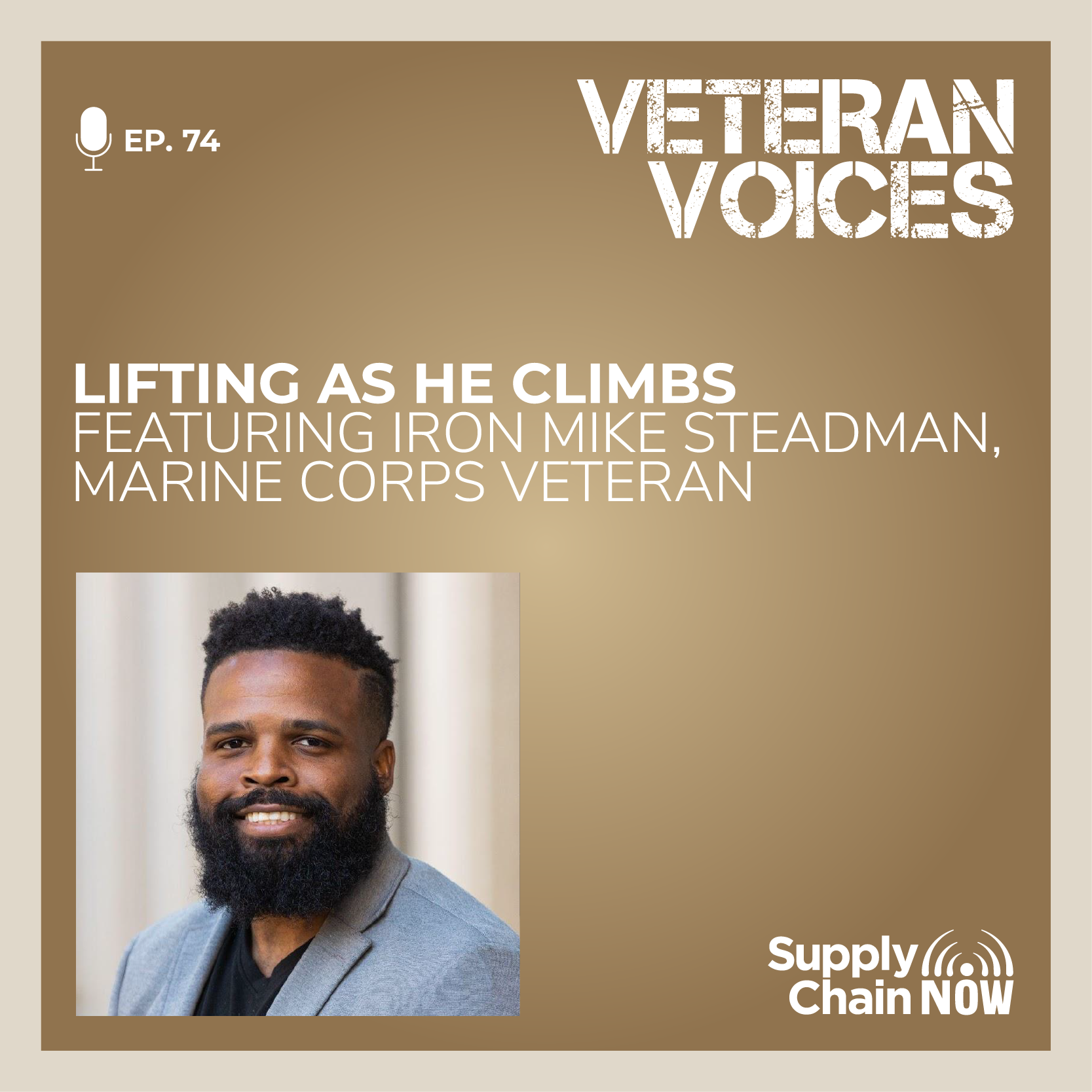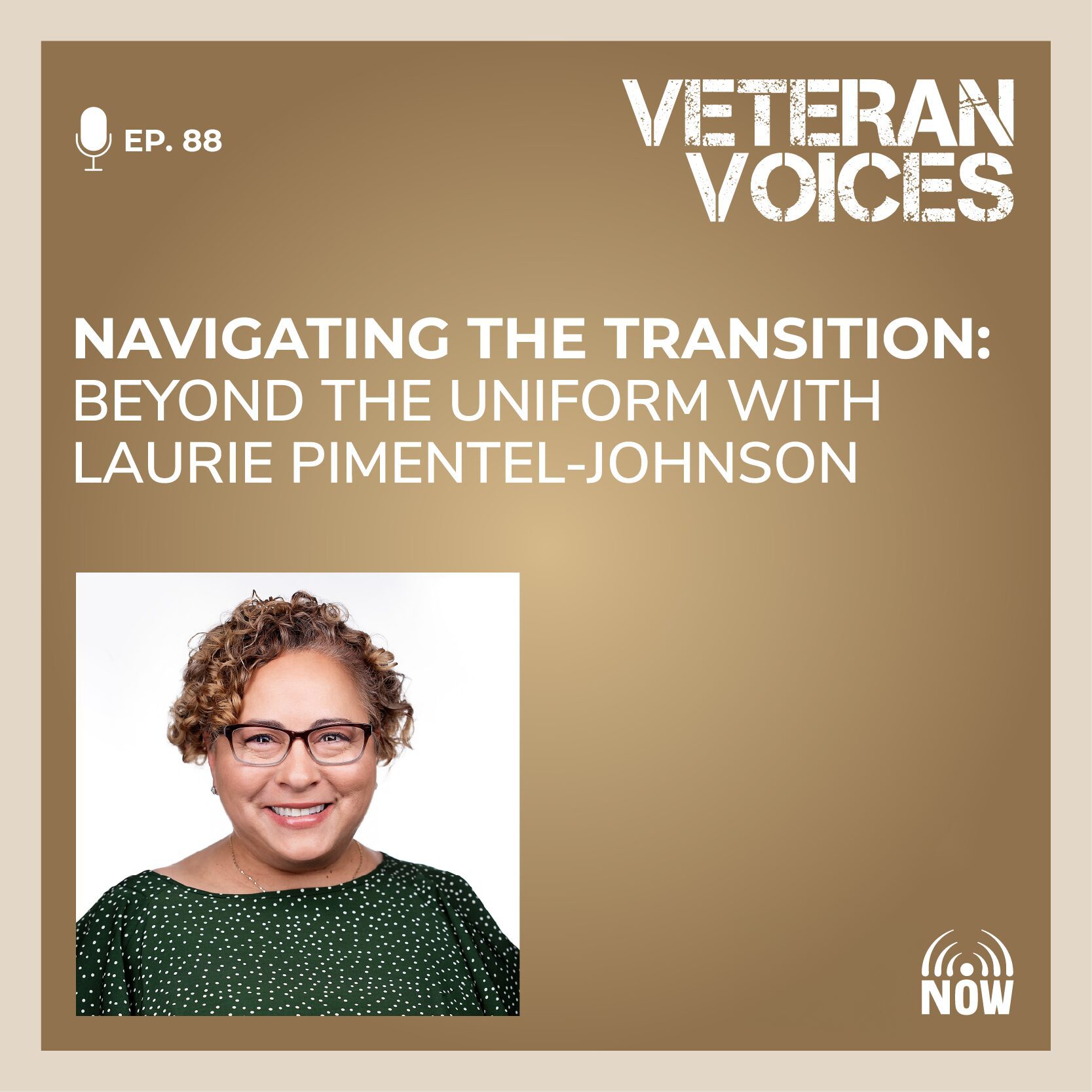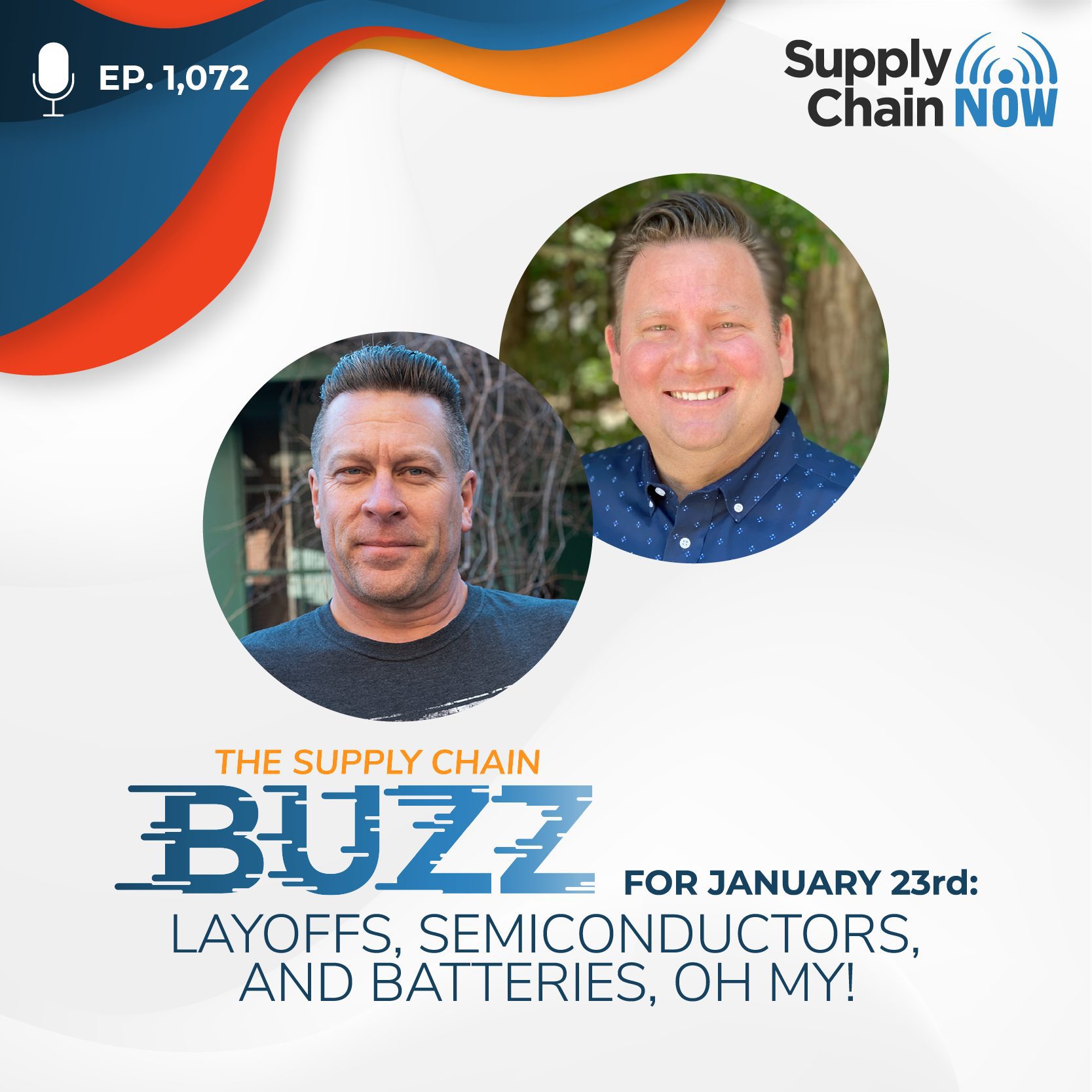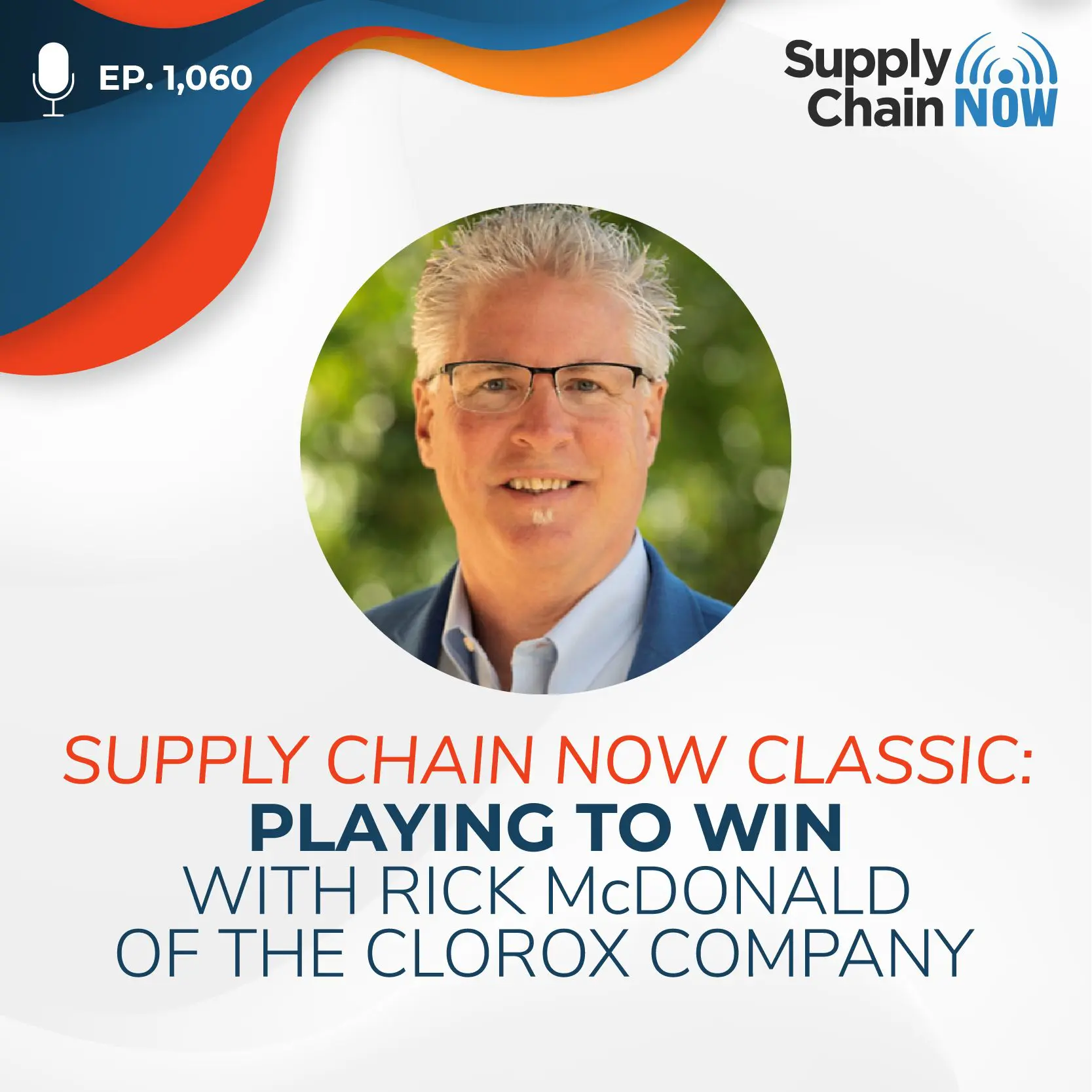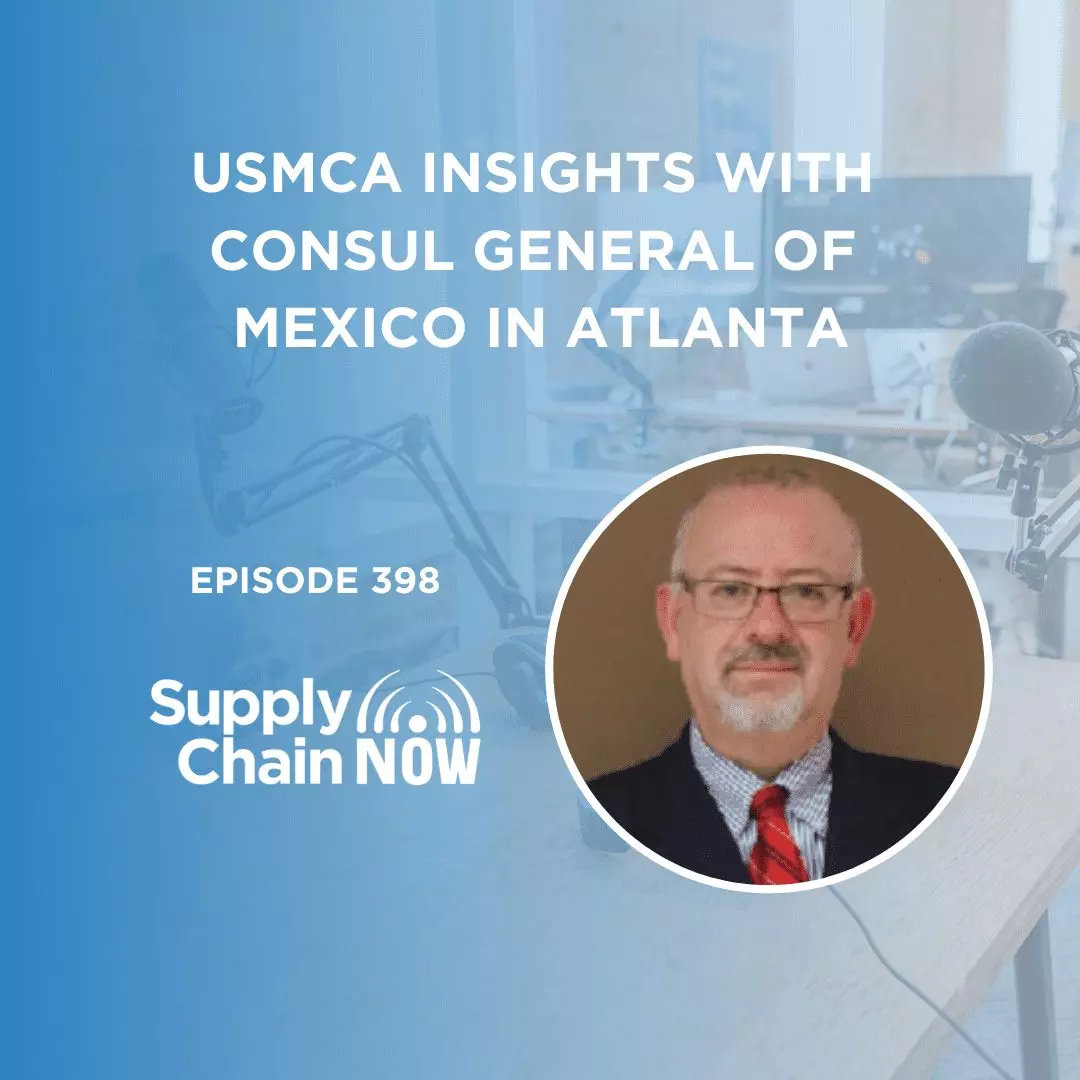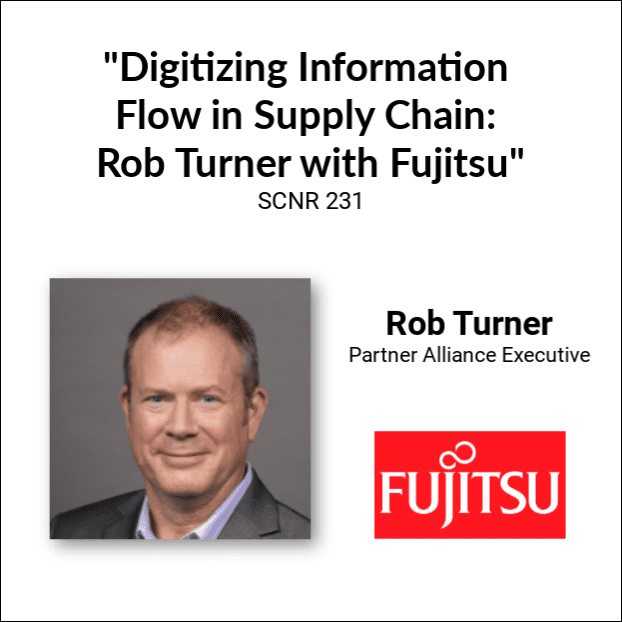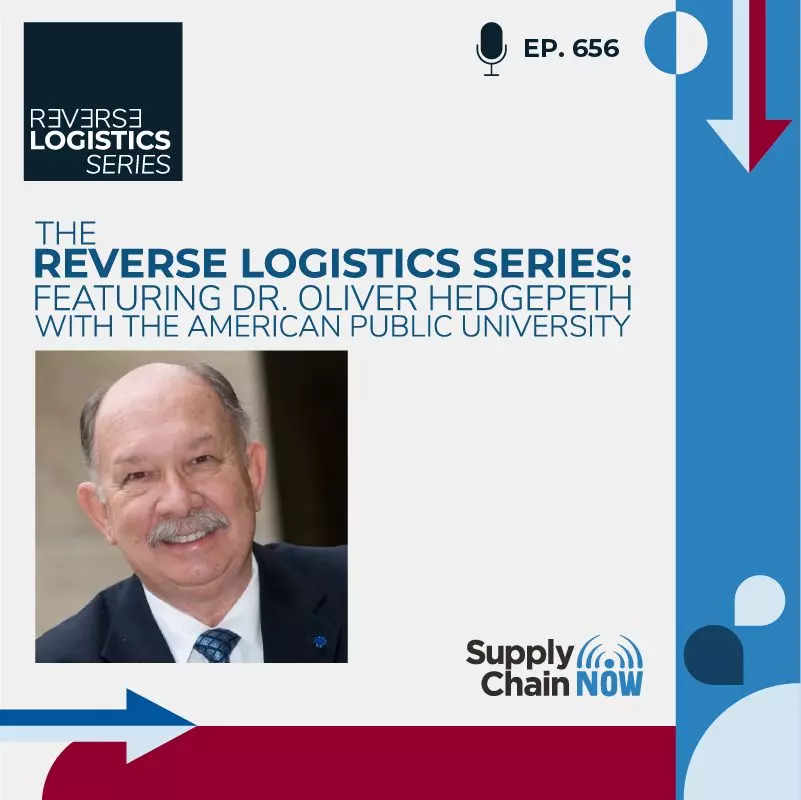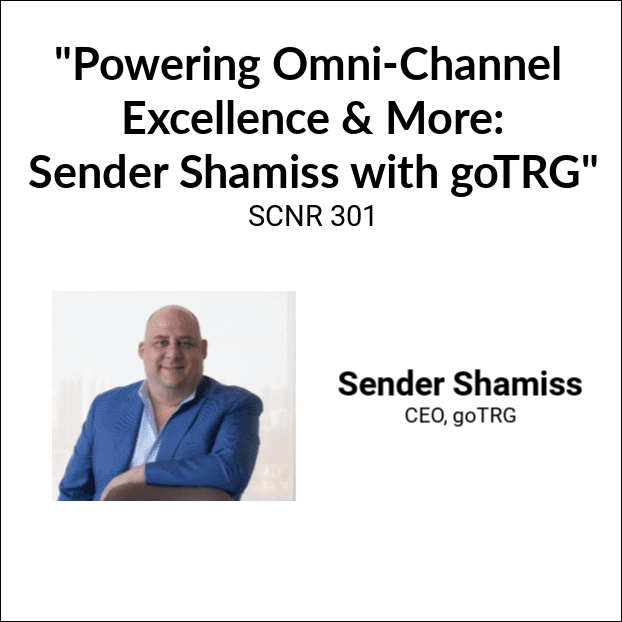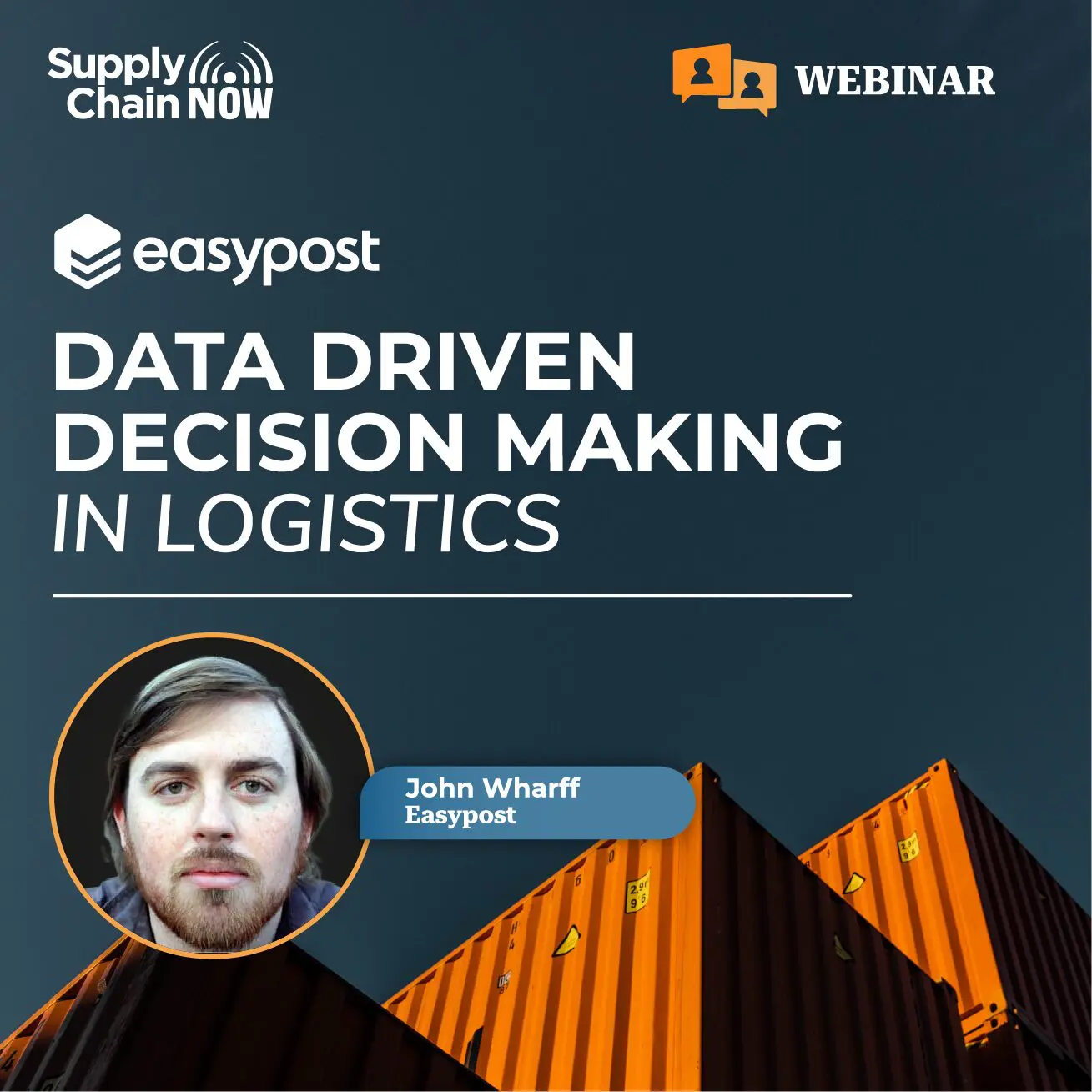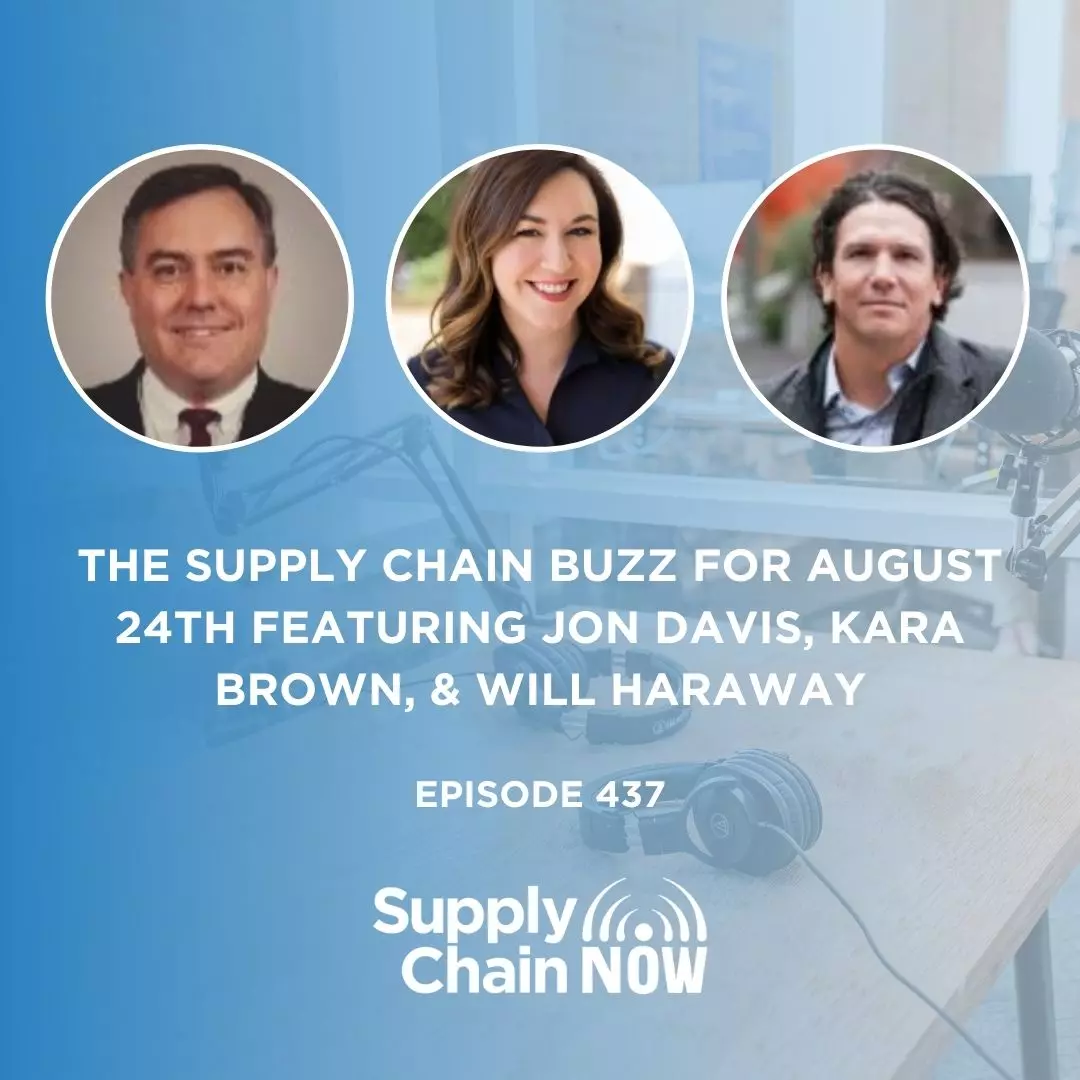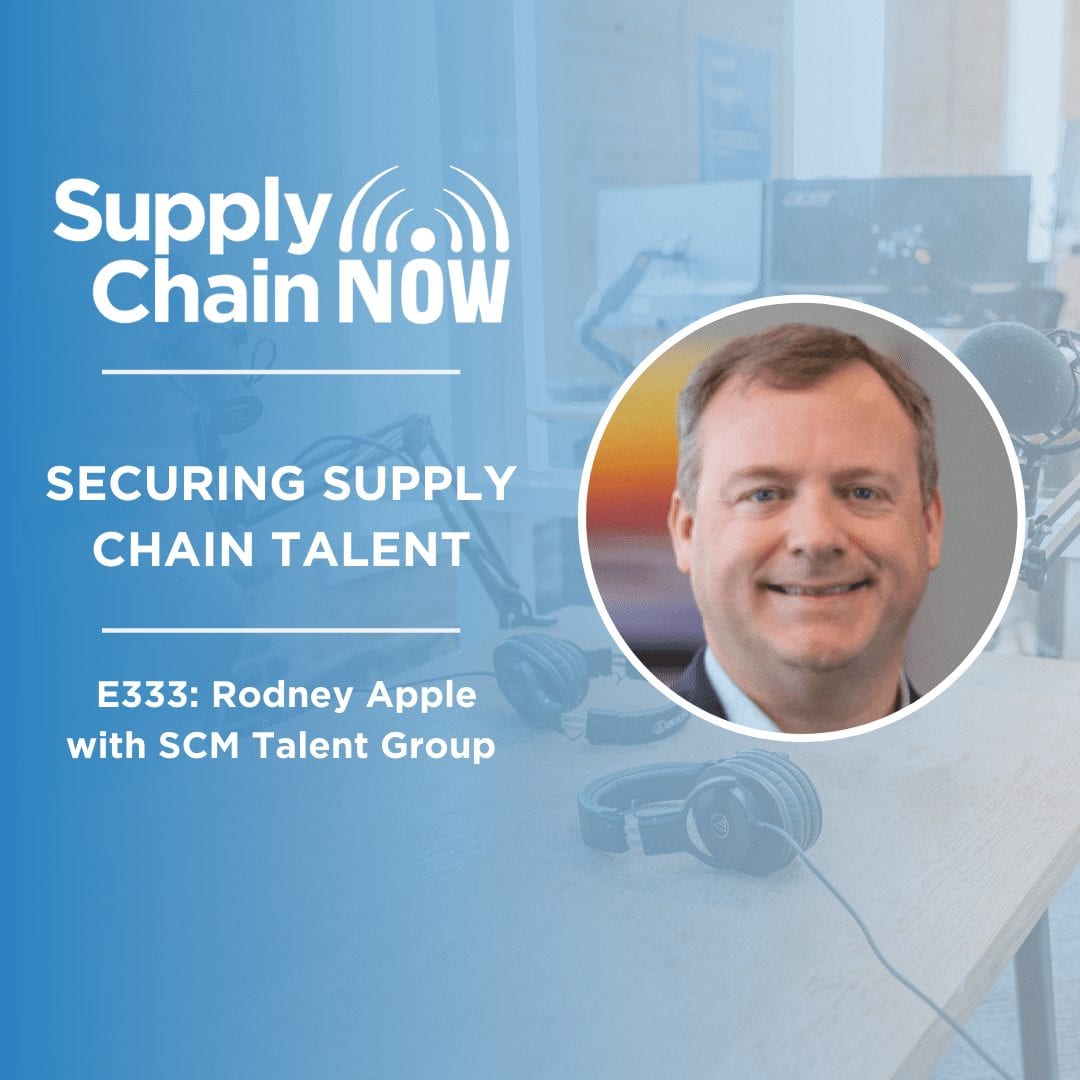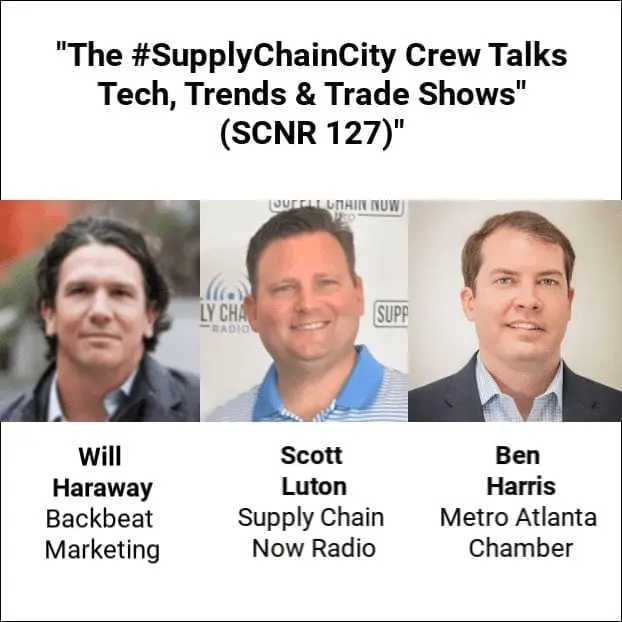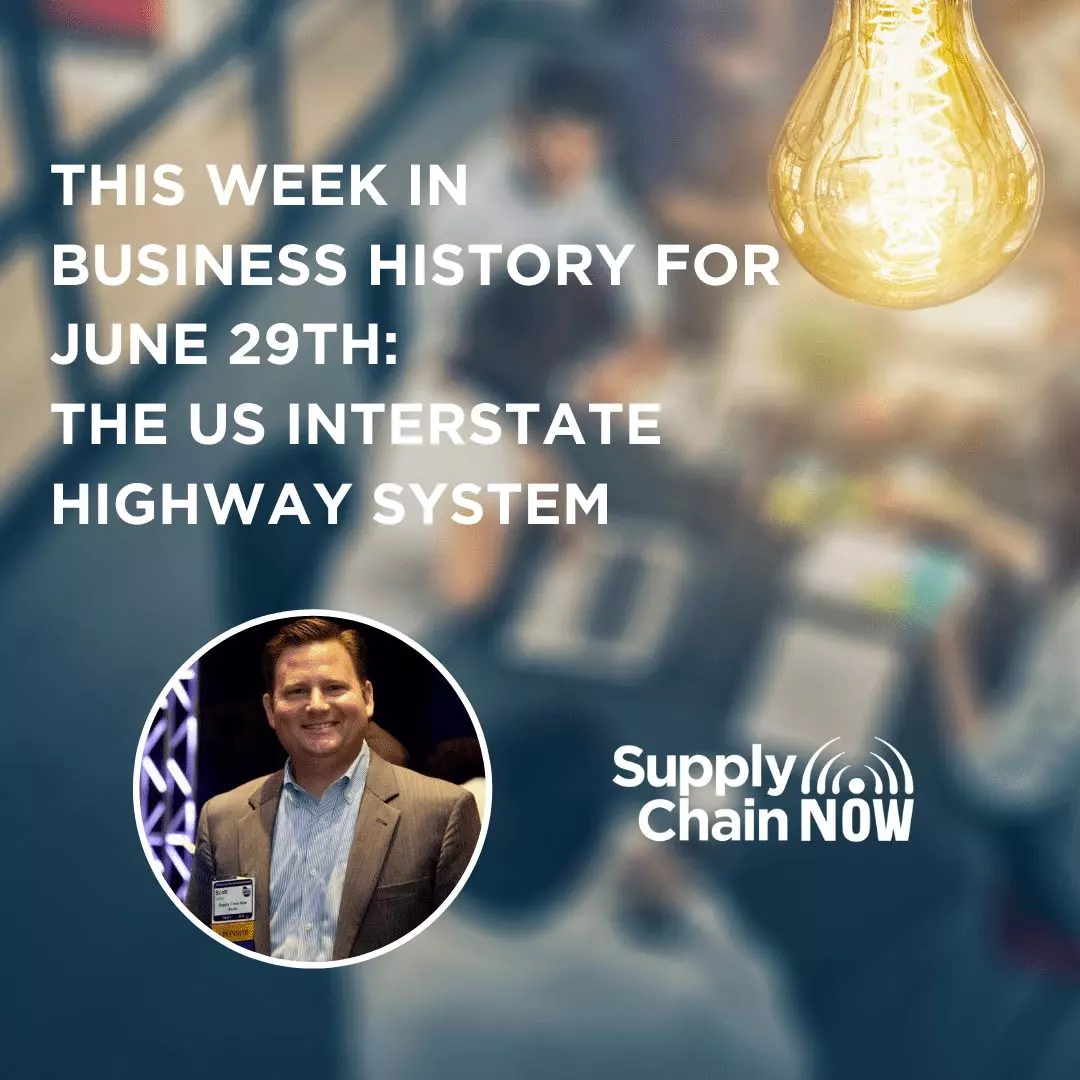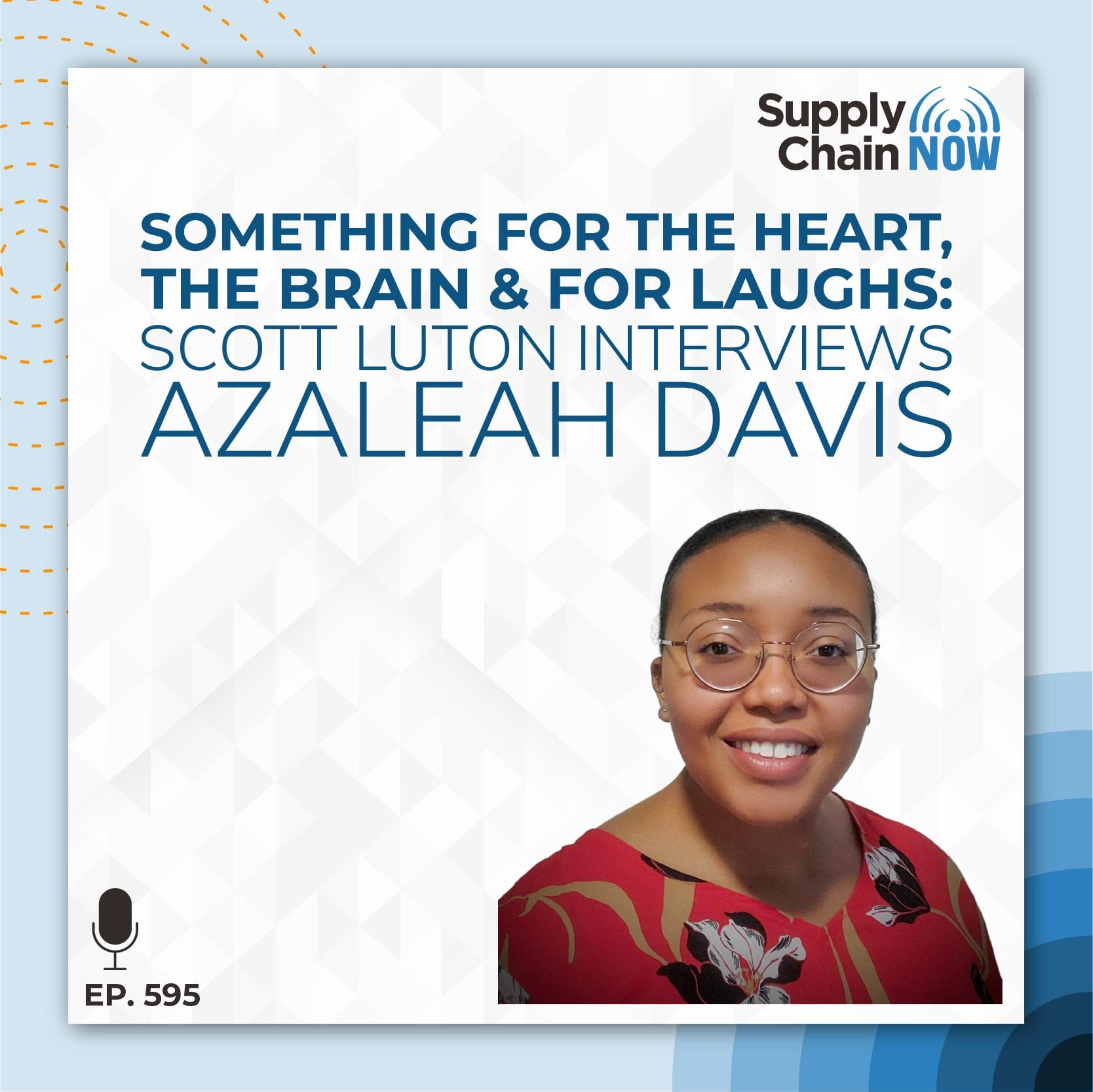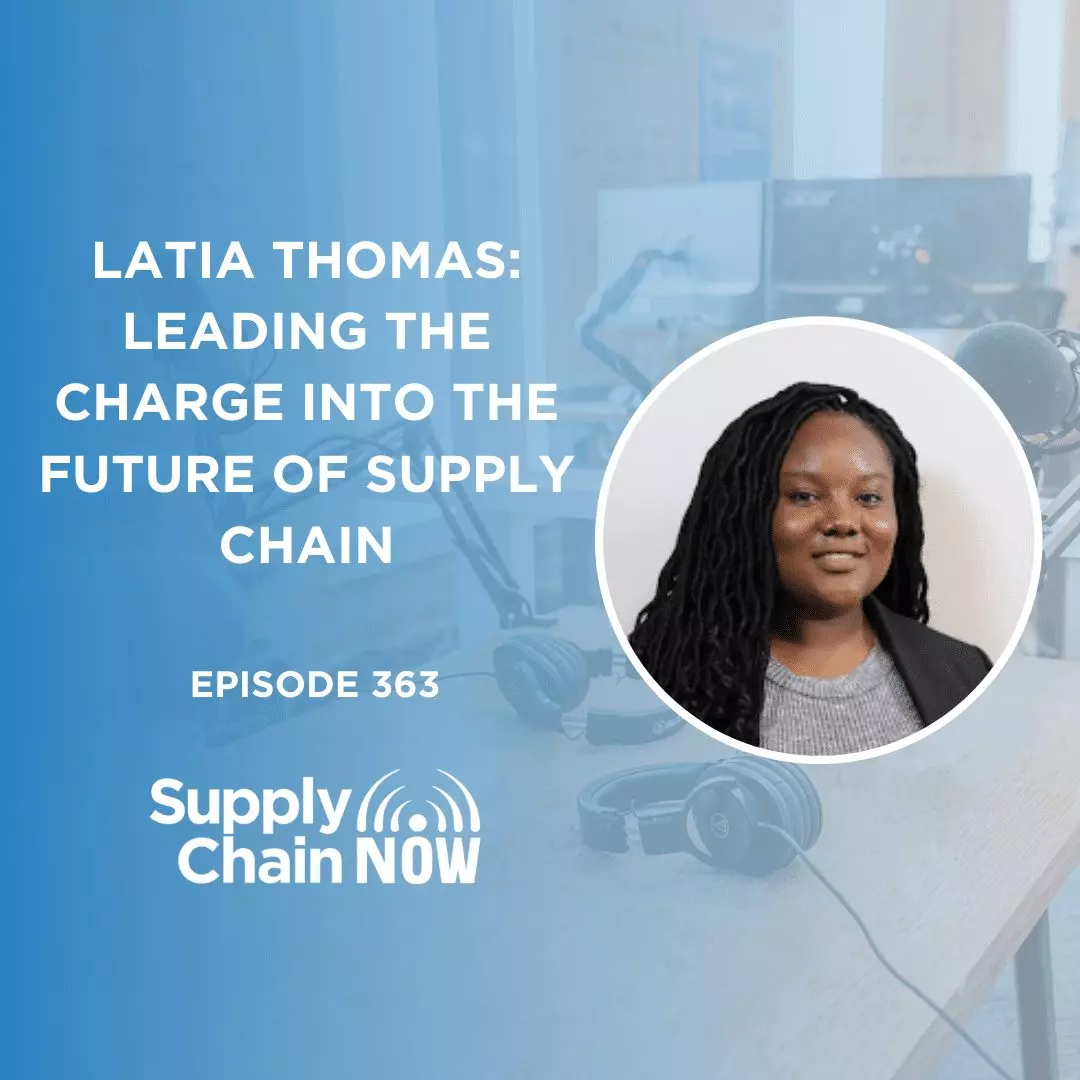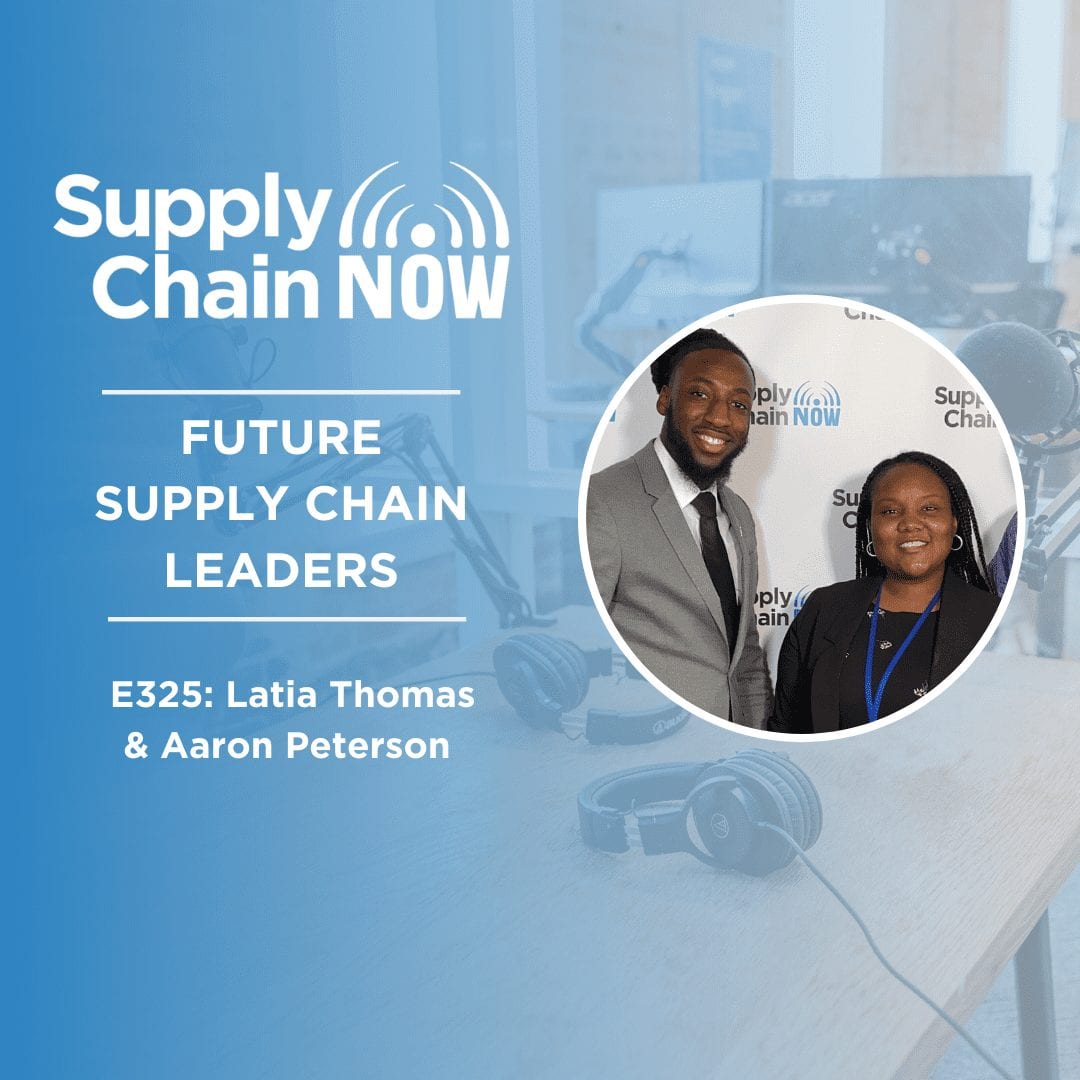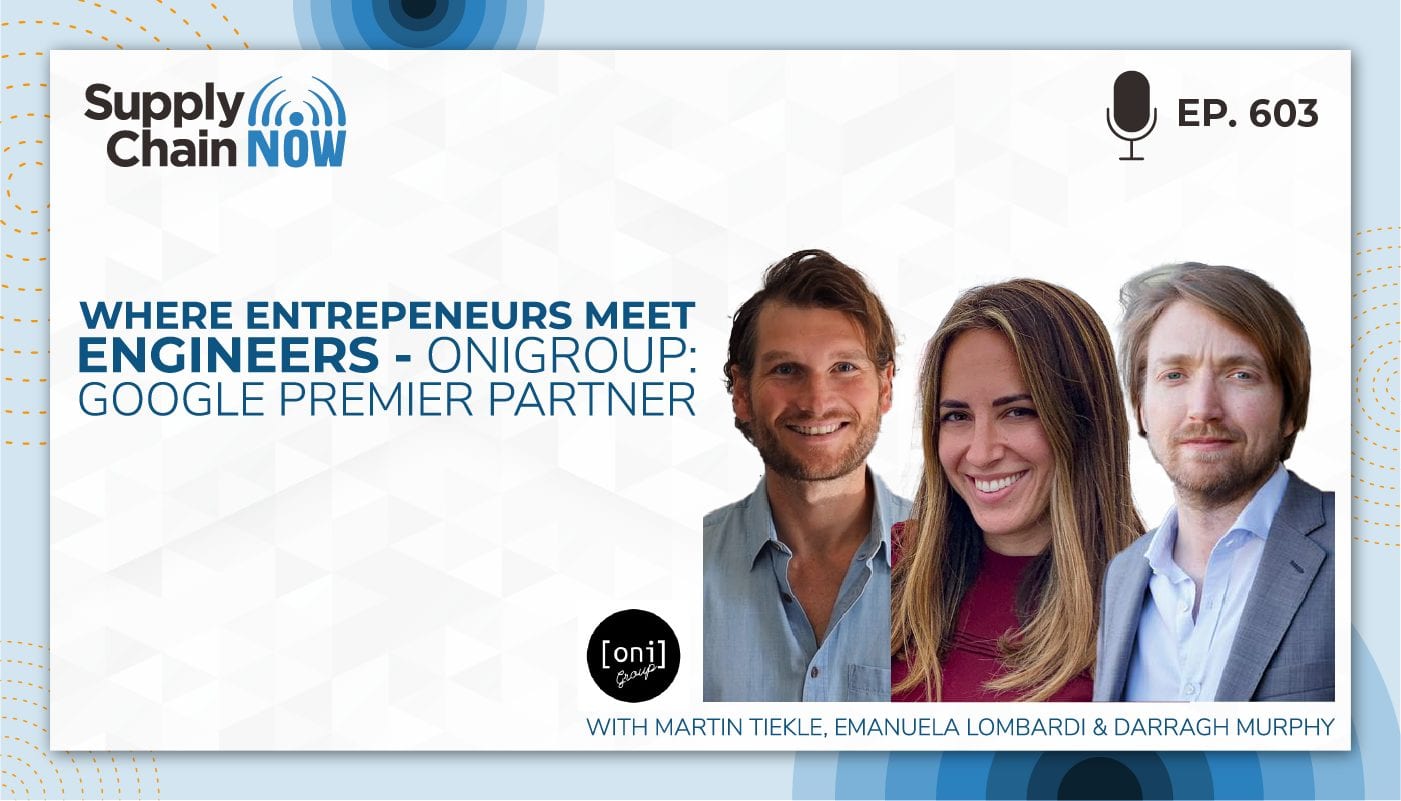
Episode Summary
“We think like an entrepreneur and solve like an engineer. And we focus on solving problems at the core.”
-Martin Tiekle, Global Head of Partnerships, OniGroup
Although professionals in the supply chain community may be separated by time zones, oceans, and distance, they can still come together virtually to share their thoughts and discuss important issues.
Founded in 2006, OniGroup is a multi-award-winning, Google Premier Partner and business technology specialist. In this episode of Supply Chain Now, special hosts Kim Winter and Enrique Alvarez welcome three members of the OniGroup team – Darragh Murphy, Emanuela Lombardi, and Martin Tiekle – as they discuss how to identify challenges, quantify impact, and design solutions.
Highlights from this episode include:
· A discussion of how the rate of innovation changed in 2020 – both in response to business urgency and in consumers’ willingness to embrace new ideas and shopping/delivery channels
· Insight into how companies are bridging the visibility gap between eCommerce retailers and the logistics providers supporting their international transport and/or final mile delivery
· How critical people remain to the success of business and supply chains and how an investment in talent can translate to an investment into the community as a whole
Episode Transcript
Intro/Outro (00:03):
Welcome to supply chain. Now the voice of global supply chain supply chain now focuses on the best in the business for our worldwide audience, the people, the technologies, the best practices, and today’s critical issues. The challenges and opportunities stay tuned to hear from those making global business happen right here on supply chain. Now, welcome
Enrique Alvarez (00:32):
Again, do another amazing and very interesting episode of supply chain. Now, today we have a very, very international panel and an amazing guest, and I have a really good co-host as well. That I’ll talk a little bit about him in a second, but we actually have people login for this interview from Dubai, Australia, London, and Atlanta. So a really international show today. Thank you very much for listening to supply chain now, and again, if you guys want to sign to our, do our shows and listen to our episodes and share the interesting conversations that we’re having every week, please do so it’s a hundred percent free just, uh, wherever you get your podcasts from. Just look for us. Same thing, uh, through our website@supplychainnow.com. And now without further ado, let me introduce you to Amanda. Doesn’t really require too much introduction, uh, my cohost for the day, and hopefully for many more episodes, uh, Kim winter, Kim is a logistics and supply chain influencer, almost a celebrity by now. He’s a corporate advisor at trade facilitator and leadership coach and mentor, and a Jack of all trades. Kim, how are you doing? It’s a pleasure having you here.
Kim Winter (01:48):
Hi, Enrique. All I thank you. Yeah, I’m great. And, uh, just, uh, ticking over to midnight here in Dubai and fantastic to see you again and to have our guests with us today.
Enrique Alvarez (01:59):
Thank you for joining us. And please go ahead, Kim, why don’t you introduce, uh, our listeners to our guests
Kim Winter (02:06):
Love to Enrique. So folks today we are, we’re honored to have a great team with us from only group and only groupers. One of the premium, uh, work partners with, uh, a small company called Google. I may have heard of them. And, uh, today we have, uh, three of their senior executives, uh, Darryl Murphy, uh, the MD for any group and Dan Dara, you are hailing from Sydney today or tonight, I think aren’t you sure it’s been a, an air in the early morning for myself so we could coordinate this and stuff. Thanks. Welcome Dara. We also have a menu. Ella Lombardi is the global head of marketing for any group and, uh, welcome Emmanuella. Where are you today?
Enrique Alvarez (02:50):
I’m based in London, uh, about 8:00 PM or 8:00 PM.
Kim Winter (02:56):
Very good. Uh, finally the trifecta that we managed to get to get up and give us a time tonight is mine and you’re the global head of partnerships. We’re the only group. And I think you’re in London as well. Yeah. Hi everyone. Yeah, I am based here in London, so just tend to attend to eight here, so not too bad of a time difference. So it’s the 7:00 AM that Dara is currently sitting at at the moment.
Enrique Alvarez (03:25):
Well, thank you once again, Kim, for introducing us to everyone here. Thank you to Martin Emma Noella and the era. It’s always a pleasure do, uh, to talk to, uh, individuals that are really shaping the world and changing logistics and just making a positive impact all around. So thank you once again for joining us. Why don’t we start with, uh, just your, your life. Uh, we, we really want to, to learn a little more about yourself. So if you could tell us a little more about your stories that shape, who you are and the career that you have and the, uh, successful individuals that you’ve become, if you could kind of trace that back to where you were born, something that, uh, maybe a Eureka moment that kind of, uh, you can share with the audience about you and your, and your life. And, uh, let’s start with, uh, there you go.
Darragh Murphy (04:12):
Sure. Uh, thanks Enrique Darragh I’m from a small term in Ireland and the, in the Southeast, um, and the son of a farmer and, uh, a publican, one of, uh, eight kids, a good, uh, traditional Catholic family. And what number, what number were you in those eight? I would say the youngest, the youngest. So the baby baby of the family obviously had, um, a very strong family ecosystem and that’s a Testament to my mother and father, and still to this day, we’re very, uh, very strong relationship, uh, throughout the family and family is something that’s actually very important to myself, but also something that we instill within any group and family is, uh, we believe in saying that family always comes first.
Enrique Alvarez (05:00):
What do you remember back then? Uh, if you kind of, uh, you were living in a farm. I, I, I guess, and then you were the youngest of eight and what is it one thing that comes to your mind, uh, about that day and those days and that time with your parents?
Darragh Murphy (05:16):
Um, yeah, so, uh, my father came from, uh, a, um, uh, a farming background. Uh, I wasn’t actually brought up, although a lot of my cousins and we spent a lot of time, uh, on, on farm land and, and working, growing up, I suppose, one, one of the, one of the things that still sticks with me is that you had to eat fast or you didn’t eat at all.
Enrique Alvarez (05:41):
I am, I’m the eldest, so I cannot really relate too much to that coming, but, uh, but I totally get it and we’ll get back to you there. Uh, but, uh, Martin, can you tell us a little bit more about you where you’re from a couple of interesting stories about your upbringing
Martin Tiekle (05:56):
So I’m an only child?
Martin Tiekle (05:57):
So I always Ate too much to be fair. Um, but I think my background is a complete juxtaposition to Darragh. So I was born in Sydney, Australia, and the Northern beaches. Uh, so, uh, or had a very sports mad father and quite an academic mother. So I had two very different kinds of parents influenced me. Um, I was always obsessed with doing something outside, something active. I was going to be a tennis player or a cricket or something along those lines. And I did absolutely neither went to university, uh, studied computers, and then naturally of course became a tour guide because as you can see, that’s a natural projection. Um, I traveled the world for a couple of years, uh, just trying to understand, I suppose, what I enjoyed, what I was passionate about night, I came to two things and one of them was technology and the other one was troubled.
Martin Tiekle (06:44):
Uh, so came back, did work for a travel tech company, um, and, uh, then started working through on a group. And I think, um, that journey sort of has surfaced from a few different little experiences. I was actually thinking about, I figured you’d probably ask the question like this. I had a strange little thought in my head. I was seven years old and I was playing cricket at a game the next day. And I was terrified of being hit with the ball. And I was also terrified of getting at typical, only child doesn’t like to lose. Uh, my dad remembers strapped all these cards and he put me in a trickiness and just started throwing balls at me. Right. But I learned to practice. I lived to kind of overcome your fears. And I think that level of, of, um, as far as anti fear fuel, it’s just saved my life because throw yourself in and see how you go. Um, and almost fake it till you make it in many times.
Enrique Alvarez (07:39):
And so, so, so true as well. Like, is there anything in your travel around the world that kind of like changed, uh, the way you kind of perceive your reality of the time or something that kind of made an impact on you that then decided, or had some kind of a impact into the career choices that you made later on?
Martin Tiekle (07:57):
Ooh, fantastic question. Um, I think, um, the traveling around you, you make so many different types of people, um, and you, you get engrossed in so many different cultures. Uh, one of the things that sort of, uh, made me very humble about where I was from and my upbringing and, you know, the experiences that I was able to have. Um, it’s just, I remember sitting in Italy actually, and seeing the color same for the first time and going, wow, like if you work hard, this is where you can get to, like one day you could come here for a business trip or something. And I think it’s the, you want to have to keep reliving that experience again. Um, and I think that was a big moment for me.
Enrique Alvarez (08:36):
Yeah. Thank you. And Manuel on now to you, if you can tell us a little more about yourself, where you were born, a couple of interesting anecdotes of your upbringing. So you can
Emanuela Lombardi (08:46):
Guess by my name, I was born in Italy In a city called Latina just by the sea, uh, South of Rome. I was, I grew up with a lot of cousins, um, just
Emanuela Lombardi (08:56):
Like Dara and, um, a few of them terrified me. I was always the one reading for foods, but I have a particular cousin. Who’s a terrified, I shared a bedroom with her, one 20. She just telling me awful stories about monsters, et cetera. And that shaped me so much that I decided to follow her too long. Then I changed my life. So that was quite influential. I have two brothers and one sister or much younger than me, and they are planning to all follow me. Most of them follow me to London. It’ll be a busy time fairly soon.
Enrique Alvarez (09:29):
It’s definitely fun and sounds like a good gathering in London. Um, and, uh, thanks for sharing that story. Is there any kind of mentor or someone in your early parts of your life that kind of shaped who you are now, any kind of a mentor that you had
Emanuela Lombardi (09:44):
So much early life? I think lots of I’ve met. Um, throughout my time in London, I met lots of very smart people throughout my career in London, especially one of my previous manager, Kate. Um, she was, um, she taught me a lot about dealing with different personalities, especially working in global teams, you know, how to, how to approach different team members based on the culture based on whether they like maths or they like languages, you know, different personalities and, um, and also never to challenge, being afraid to challenge, but always do it with that kind of sense of respect and being, understanding of what the person is going through and how they’re used to dealing with, with other essentially,
Enrique Alvarez (10:26):
Thank you. There are back to you. So tell us a little more about, uh, you from the early parts of your life to your professional career. And then I’ll let, Kim’s kind of take over and kind of walk us through, uh, your professional careers and a couple of the things that led to a only group and the three of you from so many different parts of the world with different kind of stories and upbringings coming together into this amazing.
Darragh Murphy (10:53):
Sure. I studied, uh, computer science, computer science background, uh, so in Ireland and went on to do a masters in human computer interaction. Uh, so it would have like a very strong focus on, on the end consumer. Um, from that, then it’s a couple of sort of, uh, knock on coincidental effects of how actually end up with any group I never intended to, to come to Australia. It was only by chance, uh, traveled to New Zealand after university. Um, and from that, I had a housemate who actually worked with Omni group, um, who was living in Sydney and he said that they were expanding. He said it was a couple of job opportunities. Um, so travel to travel to Sydney, uh, had an interview and two days later I was in, uh, Singapore doing a deployment. So it was a baptism of fire.
Enrique Alvarez (11:47):
It sounds like travel kind of binds you guys together. It sounds like you all had like a fair share of travel and of a, it’s a, at least one of the common factors, uh, among the three. So as you actually, uh, ventured into, uh, New Zealand and then Australia and Singapore, um, what do you learn about the different cultures and what kind of, what differences in work similarities to your life and Ireland?
Kim Winter (12:12):
Yeah, so the, uh, actually the, the culture difference wasn’t, uh, wasn’t too, um, too much, um, of an impact. Um, New Zealand and Australian culture is actually quite similar to Ireland, similar type of sense of humor, sarcastic. Uh, don’t take ourselves too seriously. Um, but I think the, the whole travel and the sort of sense of adventure of all of that is also stood, um, to Onegin very strong, uh, that we’re actually not afraid to travel, not afraid to embrace a new cultures, uh, but also know how to build relationships with people in, um, in those different cultures, which is, um, been a big part of, of the growth of running group and sort of our expansion across different regions.
Enrique Alvarez (12:55):
Thank you, Kim, go ahead. Or you must have a couple of questions, uh, regarding their professional careers. Yeah.
Kim Winter (13:01):
Well, what I’d like to hear is, is really a little bit about owning group. Um, you know, I’ve certainly had some exposure to any group, but maybe we can give our audience, uh, with a, to, uh, to a, of a heads up on just what does this do? Some very interesting and very unique things, particularly with Google. Yeah, look, um, in terms of the company, we are a little bit different. In fact, we disliked to be different in everything. I think we don’t like to be cookie cutter. So, uh, we, we are a Google premier partner and we have been, you know, 15 years, basically for a very long time, but we almost consider ourselves as an extension of Google as opposed to, you know, another partner basically. Um, we focus on solving problems as a core, um, whether that be across different verticals, such as logistics or delivery, whatever it might be, but we’d like to solve problems.
Kim Winter (13:57):
That’s the first bit, um, we’ve got a whole team of very smart people and, and Dara and I surround ourselves with people that are much smarter than enough, um, that look into the nitty gritty of all types of different challenges that companies have and look for solutions to solve them using really powerful Google technology, but at the forefront of that is data. Um, we, we love data. We want to make it useful. We want to make it universal and we wanna make it accessible. Um, so all our solutions are very much encompassed from that perspective, but solution, uh, based on our problem is, is our core. Yeah, Darryl, maybe you can give us a bit of a heads up on, um, a recent initiative that I’ve been, um, that I’ve come across and been looking at on the other, some videos around at the moment, addressing what is, uh, I mean, I’ve been in the logistics like Enrique for about a thousand years, or it feels like a thousand years, some mornings.
Kim Winter (14:53):
Um, and, uh, this whole issue of last mile that, that be bearing in mind, the context of that, being that over the last 12 months, the world has much of the world has discovered logistics and supply chain in a way that I’d never did before, uh, much as a result of anything is, is the, the huge step change in consumer behavior in terms of the online acquisitions and buying right across the board and different ways of acquiring goods specifically through digital means online means. But talk to us a little bit about this last mile initiative that you’ve been involved in and what that’s all about and what, what issues it’s addressing.
Darragh Murphy (15:34):
Yeah, sure. Um, so I might take a bit of a step back cause like you, you, you touched on a very interesting point here is as the rate of innovation, uh, that has occurred over the past 12 months, you to a necessity. Um, and maybe to, to give the listeners a bit more sort of context into, into any group. So quite a, quite a wide, uh, uh, diversity of sort of customers, uh, both from a large traditional enterprise, uh, but also very new, uh, innovative startups. And I think that’s, um, part of the value that I bring because we get to see very unique, diverse sides, um, of how different types of businesses are challenged or trying to address, uh, similar challenges. And so we’re able to bring sort of innovative ideas to more sort of traditional, uh, established companies, uh, but also then bring, um, that the knowledge that we gained from working with large established companies to ensuring that these innovative businesses can, can scale and grow. Um,
Kim Winter (16:42):
Sorry, just on that Daryl sort of budding in that if we drill down on there for, for a minute, I mean, over to 20 to 2020, and the onset of the pandemic have a massive impact on the modeling and the type of business that only group does, or was it business as usual, but there was just a huge uptake in, in certain areas. Um, give us some insight there.
Darragh Murphy (17:07):
Yeah. Um, I suppose for us, it wasn’t a huge, significant change. It was probably the rate at which our customers were willing to, uh, both adopt technology and how did they consider technology to help them scale and to overcome some of the challenges, uh, and that’s sort of where, where we fit in, uh, is making to that technology more easily accessible. Uh, and how does it, how do we actually help our customers and work with our customers to use technology and use the data that we get, um, that, uh, get from either from Google or, uh, utilize the data that Dave, um, Dave acquired or built up over over the years that they just haven’t been utilizing to fullest extent.
Martin Tiekle (17:50):
Okay, awesome. So, so maybe then circle around to tobacco, to the issue of last mile. This is a, is a massive issue, um, getting goods to where they need to be with massive percentile increases of consumers requiring clean, delivered through the arms, as opposed to going out to the traditional bricks and mortar retail scenario. Um, so it’s a really interesting area. That’s a hot subject right across the whole landscape and ecosystem of logistics and supply chain. Um, we’d like to talk to it and update a little bit on the initiative that you, you driving at the moment. I can tell that one. Um, so I think it’s really interesting. We were sort of moving in the direction of working with a lot of our customers on enhancing their last mile services via different data sources by Google data sources, all sorts of different things. But then of course, the world turned upside down and to, to Doris point that rate of change six Sellerator at a level that was incredible.
Martin Tiekle (18:53):
You had teams in incredibly large businesses that were exploring via an R D sense of, well, maybe we should offer like an Uber vacation type of delivery service to literally by April piloting something. Um, you know, it was, it was unbelievably quick. Um, what we sort of did is we looked at well, what was some of the challenges that we had been fortunate enough, I suppose to see with all these other different businesses that we’d help, particularly in emerging markets, like big startups in Southeast Asia and the middle East, North Africa, and a few others as well. And we kind of looked at those core bits that even these big digital natives couldn’t really solve themselves. So we started to think, well, is there a solution that, uh, maybe we can build, or maybe we can offer these particular customers? And we started to look from that perspective.
Martin Tiekle (19:40):
Um, the, the biggest interesting part though, I think was the ability for customers to, uh, invest actually at that time, that unknown was, was monumental in 2020 and still is, but they realized that they had to invest more so in technology to kind of progress to that post COVID world, um, which I think was, was amazing. So from our sense, um, we, we focused very heavily on our large players and develop products and services with those customers. Uh, but also use that experience in working with, you know, tiny little digital native startups growing up, uh, over the last five to 10 years. Yeah.
Enrique Alvarez (20:15):
Martin, you mentioned, you mentioned, I’m sorry to interrupt him, uh, the, uh, different regions of the world. You could tell our listeners a little bit more about like the reach of the company. Cause it sounds like you work with very large corporations, the big data, but also helping smaller startups. So you kind of cover a lot of, uh, different, uh, company sizes through the spectrum, but a regional, regional wise, what’s your
Martin Tiekle (20:41):
Yeah, look very, very good question. Uh, w when, when I first started in 2012, um, it was Australia Zealand that that was sort of out outward, so to speak. Um, in 2014 we moved into the UK and then in 2016, we moved into Asia. Initially it was just covering kind of the core areas, the United Kingdom, um, and of course, Singapore, really, and a little bit of Indonesia. Um, what occurred though, was we sort of branched out and went well, there’s a lot of solutions to you for a lot of multinational companies, uh, where they require hope in developed and emerging markets. So we naturally got exposure to all these other different countries where we’re working with that 55 countries at the moment, uh, across the world in Australia, New Zealand, Southeast Asia, North Asia, uh, UK Nordics, Western Europe, uh, middle East, North Africa. Um, and we are very lucky to do so very lucky.
Martin Tiekle (21:36):
So we are seeing a whole different range of, of challenges, um, some which I shared and, and some which are completely unique. Uh, one that comes to mind, uh, is in the middle East, the fact that they don’t have, you know, doting numbers and straight numbers. Um, that is a very unique challenge. We don’t really see that in the rest of the world. So coming up with solutions to try and map something that’s not mapped before, uh, and deliver something to that, something that is virtually unmapped is a really different sort of, uh, experience in different solution. Yeah.
Enrique Alvarez (22:07):
And meanwhile, uh, what are you a in, uh, to that question and, uh, tell us through your perspective on your lens, which is not necessarily technology or, or, uh, some of the different, uh, expertise, uh, Dara and Martin have. What, what, how do you, how do you get your arms around like a international problem like that with PR with a presence in 55 countries is what Martin said in different regions with different ways of even writing and numerical systems. It’s like, how someone with your background, how do you kind of manage something? So, yeah,
Emanuela Lombardi (22:40):
It’s definitely been a very interesting, uh, last, like, I think I’ve been with only for 60 months now, it’s been very, very, uh, packed with learning. And I feel like I’m slowly becoming an expert in logistics in the last, the last year, especially we are focusing lots of our events and campaigns, uh, to help logistic customers, but also retailers and e-commerce providers manage their logistics, uh, to, to meet their customer expectations. And I just feel like I’ve learned so much. And it’s, you know, as you say, like, it’s just very interesting that something like an address becomes a passion and you, you can, I D I wasn’t aware that in the middle East, they had no addresses, for example, something that got to learn in, in, in, um, in the last few months or not that they don’t have addresses, but they’re just, it’s, it’s completely different from what we’re used to, you know, we live in our, in our Europe or UK and we’re used to post codes, uh, and he just facing different realities of, um, emerging markets. It’s just very, very interesting to learn. And, and it’s, it’s great to know that we have a solution and we are solving this problem for a lot of customers globally.
Enrique Alvarez (23:52):
No, we, we all get used to our own ways of thinking and we’re self-confident right. So it’s just, I totally understand what you’re saying, and it’s not that we’re just ignorant about what’s going on, but you just don’t, don’t see it don’t know, don’t even think about some of those things, right. Because they’re just so foraging do, do what you do and, and we’re where you are in the world, but it’s, uh, but I guess that’s why this area’s so, uh, exciting right. Technology and the world’s getting smaller and smaller at such a fast pace that what you guys are doing is not only incredible, but definitely has a huge potential to, to changing the world, uh, hopefully, uh, for the better
Emanuela Lombardi (24:33):
Definitely. And I feel very lucky to have the opportunity to work for such a global company is if I hadn’t, I wouldn’t have known about addresses around the world, for example, of one of the many things I wouldn’t have learned. Uh, but yeah, it’s, it’s, it’s a truly unique opportunity, um, and get to learn about different cultures and different markets and how everything changes across the world
Enrique Alvarez (24:54):
Are for you. And again, from like a different lens, what would be one of the biggest challenges that you’re currently facing if you go to bed at night? Uh, what’s the one thing that you’re like, this is something that’s coming and I, something that I need to, uh, fix or solve as a problem solver that you want.
Darragh Murphy (25:10):
Well, one of the biggest challenges that we’re working with our customers on is probably the disparity between e-commerce and retail and logistics. Uh, and we see actually see a big separation there. Um, I suppose the, the businesses that, uh, have been able, able to overcome that, or the retailers or the e-commerce providers who have their own logistics arm, uh, but they’re sort of few and far between, um, and especially with, um, with COVID and which international travel there’s, there’s always going to be an element of the logistics, um, where it has to be passed on to a third party, whether that’s for, uh, international transport or for last mile delivery. One thing that we’ve been working very hard on is sort of bridging that gap, um, and whether that’s true relationships and partnerships, or with solutions and technology that actually, um, bridges that. So being able to understand and be able to capture a point of delivery from the consumer, but how that transparently pass through to, uh, the logistics. And again, that can often pass through multiple different logistics, uh, our transports, uh, divisions before it actually gets back to the consumer. Um, and how do we actually, um, how do we use technology to enable that? And, and sometimes that might involve being able to update or, or change that, um, during the, um, actual delivery process.
Enrique Alvarez (26:39):
No, thank you very much. And, uh, yeah, it’s a huge, huge, uh, fast area for sure.
Martin Tiekle (26:44):
And it sounds like you guys are
Enrique Alvarez (26:46):
Tackling and taking this problems.
Kim Winter (26:49):
The team from mining group are really, multi-dimensional very multifaceted and looking to solve a whole host of problems and issues, not only logistics, but accounting logistics is really probably in the last year or two, but no history of the company. Yeah. How many years of the company mean going there 15 years this year? Okay. I think I met Herman the only one of the other directors of the business way back then. We’ll talk about that in a minute, but I’ll look, I’m obsessed with the logistics because it is, it is part of my life. My wife tells me I’m defined by logistics. So that’s what it is. Uh, talk to us about just one more snapshot about this issue of solving the last mile issue, uh, or problem and Emmanuel, you were talking before about how the, there are no, um, addresses and whenever you’re in the middle East, I will have, you know, that many, many communities here do have street addresses, however, traditionally speaking, and the vast majority and the, in the entire middle East region, um, then, you know, there are not a lot of addresses, frankly.
Kim Winter (27:57):
So, so can we just drill down for the logistic streaks in the show out here, listening a little bit more about what you can, and maybe not too much in tell us, but tell us a little bit about the, the issues that you’re trying to solve. And one of the ways you’re going about trying to solve that last mile delivery issue. And then also, um, if you’re doing anything for reverse logistics for just all new show in itself, but maybe you can touch on that. It’s funny you say that because, um, growing up in Ireland, we had the exact same issue and they still have it in Ireland, but I, uh, whenever I a her to, to my family or send us Senator power. So it’s their name and the road that they live on, thankfully the local post person knows exactly where that person lives. But apart from that, there’s, there’s very little provided it’s down past the pub on the corner, past the pub. Yeah. Um, I got the, God forbid, two people have the same name on the same road. It’s interesting where these like similar, um, similar problems, um, have a far reaching, um, across different territories and they just ended up Murray can, can talk to a bit deeper Martin, just generically then about the technology, how the technology generally works to, to make sure this location system worked.
Martin Tiekle (29:18):
Yeah. Okay. So I think if we break it down into two different components, so, um, a lot of times a like company will kind of think of, well, if I’m at a, how do I get to be in the fastest, most efficient route possible that the challenge that we look to solve, I think, and is a primary concern that a lot of companies kind of ignore is, well, what if a is actually wrong? And B is actually wrong in the first place. Uh, and I mean, basically looking at location and addresses, um, that is that first component within that supply chain that, that origin and that destination from a location standpoint that we look to solve, um, is a really interesting story. Uh, so last year when, you know, unfortunately the pandemic took hold, we working with a very large company and they just said, our business has exploded.
Martin Tiekle (30:06):
Uh, the word they use was everyday is like black Friday. And I said, look, you know, if anything positive comes up, there’s a positive. I said, out of it out of interest, um, are you tracking, you know, in terms of efficiencies of failed deliveries or few charge, anything like that? And the answer was no, we’re just, we’re seeing things grow and we’re happy seeing that grow. We have nothing from that perspective, what it kind of pointed out to us though, was there was a lack of depth from an analytics perspective of looking at all the different components and factors of that supply chain. Specifically, I’m looking at where some of those inefficiencies are actually occurring. And that’s where we kind of targeted a lot about approach. One was on fixing bad addresses massively. So, uh, another one was looking at well, what are some of the challenges of being too transparent from a tracking perspective?
Martin Tiekle (30:56):
Um, I’ll give you an example. If you have an Uber like kind of tracking solution visualizing exactly where that vehicle is and it’s food delivery. Um, and it’s very transparently saying that another order is being delivered before your order. What’s the first thing you think of you go, well, why is that auto more important than right? And what people do is inherently, they will put a support ticket in that was a problem that we never expected. And we just saw the data coming through of every single time we saw to them, or what is a customer would put a support ticket? Why was mine not first? So we looked at solving that. So we reduced that transparency, but ensure that the data was just as real time, we also looked at, uh, accessibility when you’ve got all these new customers last year that have traditionally relied on bricks and mortar to go and do their shopping and their groceries, except you, and suddenly they couldn’t.
Martin Tiekle (31:49):
Um, a lot of these logistics companies couldn’t actually cater for that customer. One was because of managing scale. They just, they couldn’t handle the capacity at the time. It was just unprecedented. And to a lot of these customers when in areas that were actually out of delivery size or somewhat seen as out of delivery side. So we had to kind of rethink territories. We had to remap the way that they actually, uh, created, um, uh, milk runs for different customers. How suddenly instead of, you know, John Smith doing 15 deliveries a day, that could be between 25 and 45, depending on the capacity required. So those are some of the problems that we just suddenly saw and now being a lot more evident, I think that we had to solve. So, um, we did that using data. Um, so we started looking at, well, what data are they capturing? Uh, what data can we get from different API APIs and services like Google
Kim Winter (32:40):
Maps platform, for example, um, what services, uh, from a cloud technology perspective, could they potentially adopt that is very low cost expedites, that development, uh, and it lets them do something that they would normally hire two or three people for. We kind of put those little pieces together and we started to go, okay, there’s a, there’s a, there’s a completely new way of solving these problems. So yeah, really, really interesting. And I’m sure on Rica and I are going to want to come back and have another session with you folks in about six months,
Enrique Alvarez (33:10):
I have like two pages of notes already. Yes. We’ll definitely have to have a couple of, uh, followup sessions used to digest everything that you said there. And it just, it just fascinating. I’m just not a very technologically advanced person to start with, but thinking about every single thing that you mentioned, you’re like, yeah, that makes sense. I never thought about that before, but yeah, sure. That’s, that’s interesting.
Kim Winter (33:33):
Wow. Okay. So, so five, so I’m going to change the scene completely right now and, and flip the page, the technology incredible. I think we’re going to come back and talk more, especially in the last mile and a few months time to see how their journey is going. But the way I first got exposed to any room, probably about 15 years ago, it was through one of the directors swimmingly on, uh, when, uh, the company had got involved with a, um, a humanitarian organization that I haven’t. There was some engagement and involvement with, through a very dear friend of mine from as the head of partnerships for EMEA, for Google, uh, the, the dots theme joint. And, uh, she introduced the one group to Oasis Africa, which is a fairly significant, uh, humanitarian organization reached in Australia supports, um, mainly orphan kids in East Africa.
Kim Winter (34:25):
Um, you guys are responsible for the current existence of that organization when you have massive support in your very generous, um, sponsorship and engagement with that organization right throughout the last 10 to 15 years. Sarah, maybe you can talk a little bit about the philosophy and the strand and the strategy inside the position, the culture inside your business that lived there to happening. Yeah, absolutely. Um, I think one of the most embedding reasons for us to actually support a wasted Africa was the people, uh, the people who founded, uh, see yourself and, um, uh, the leader, Ross and Karen. Um, and when you actually see the passion that you bring to an organization at that, like it’s, it’s, it’s a no brainer to want to support us. Um, and then fundamentally what, um, the, I suppose the division of actually what you wanted to achieve with the charity was hugely compelling then in regards to breaking, breaking the cycle. And I remember talking to, uh, Karen, uh, a number of years back and we were started talking about, okay, what does the future look like? And one thing that, uh, Karen had a very clear vision on was
Darragh Murphy (35:38):
In regards to breaking the cycle, uh, but actually seeing, um, kids progress, uh, from primary, secondary and tertiary education into, into the workforce, which then obviously has knock on effects, both from the, uh, inspiration that they can bring back to their communities, uh, and that people can, um, break out of, uh, of the slums in the situations that they find themselves in, but then also how they actually feed back, um, or financially back into the same community. So we’re very, very clear vision of actually what she wants to achieve and what, what, uh, waste is Africa wants to achieve, um, as a, as a charity. Um, so again, it’s, it’s a very easy decision for us to, to want to support people who have a break, clear vision, but also I have the passion, uh, to see a true as well.
Kim Winter (36:28):
Yeah. When you’ve certainly made a huge impact and has been over 8,000 kids educated and supported in their communities over the last, uh, 15 years or so. So I think the, uh, the impact that you’ve made that goes without saying at all that Emmanuel, uh, just to you, throwings you on this one, I mean, how, what, what sort of image do as the head of marketing, uh, do you look to represent when you, when you’re, uh, speaking to the market through your various channels of, of marketing activity, uh, what are the messages you’re looking to deliver when people think of only group, one of them do what you want them to think of?
Emanuela Lombardi (37:06):
Yes. We wanted to think that we are a company who constantly looks to innovate, look at new ways to help our customers and looking to help customers across a variety of different industries. So from logistics to, um, finance, uh, and, you know, trying to, um, always, always learn about new trends. And, um, I suppose one key thing is, uh, making the, the complex text technology, uh, accessible to a variety of different industries and variety of different job functions. So not just developers or customer we’re experts in technology, but marketing directors or senior decision makers that don’t have technical backgrounds like me, for example. Um, and, um, I suppose one thing that we care about is we actually care about our customers. We care about listening. Uh, the problem is the business challenges they’re facing and, uh, find, find ways to work on the problems together.
Emanuela Lombardi (38:14):
And of course, we, we also care a lot about giving back to society. So, uh, or is this Africa, uh, we, we, we’ve been trying to, uh, to go and meet the students for, for a couple of years now, but, um, fortunately the pandemic has stopped us. Um, and, um, we support a variety of different charities as we have, um, an initiative going on with dementia Australia at the moment we’re supporting, um, writers to do a cycle from Bondai to Burien in Australia. Um, they pronounce it correctly there. I’m not sure very, very, but yeah, so it’s, it’s a, it’s a variety of different things. And also we care about the team. We love our team and, um, you know, we couldn’t do what we do without every single one of the team. Uh, and, uh, we like to keep showing them that and re recognition.
Emanuela Lombardi (39:08):
So yeah, I suppose employee recognition and always looking out for, for new talents, existing people to join where I have a question for you. And so where do we show up? Where do I say my resume to again? Well, that’s a very, very good point that, that you’re, that you’re asking because, um, you should actually have to our careers page on our website, we have a lot of vacancies open at the moment, uh, and we will be keen for, for not like a great company to work for. Right. Caring team driven, trying to solve the problems of the world accessible on top of that. They’re trying to make a possible impact in the world. That’s sounds like a good culture. You guys have.
Kim Winter (39:54):
That’s an awesome segue because I was just, sorry, I’ll just ask the question. I have a peer question as being a head Hunter as one of my day jobs. There’s, there’s what is, and I want to ask each of the three of you this, and then I’m going to ask you and Rico as well, by the way he is the anchor here. Right? So, uh, it’s, it’s one in the morning. I’m allowed to ask what I want. So Martin, I’m going to start with you. If there’s one thing that you are looking for, or somebody who you are looking to bring into the organization in journey group, what would be the one determining expect of you? It’s likely to tip them over into the East versus the note column that is a to quote all other Australians a bloody good question. Um, I would say, uh, someone that has the ability to literally think like an entrepreneur, but solve like an engineer.
Kim Winter (40:44):
That’s the number one thing that I look for, someone wants to take a bit of a chance, but logically and programmatically about solving the problem, nicely answered, uh, Dara, you’ve employed a lot of people that company’s grown in leaps and bounds over the years. What are the X factor for you? If you’ve got, if you’ve got four or five people at all, pretty much round about the same capabilities skills, what is going to be the expected? I suppose, the want to learn more, um, working and, and being aligned to a company like Google, uh, innovation is like it’s, it’s sort of bred into DNA. So like, what we do today would be very different to what we do, uh, next year and in 24 months time. Um, so we don’t necessarily, when we look up, see for skillsets, but it’s not, uh, that’s sort of the deciding factor.
Kim Winter (41:36):
It’s that mentality of wanting to learn what it took to solve problems. And I think back to, to Mary’s point thing, um, that engineering sort of mindset, um, it’s, it’s a sort of key factor, well said, thanks. Hey, manual are going to let you off the hook. You may or may not have hired a lot of people in your career today. The question to you is in the same genre is, uh, who had three companies that you could join. And, uh, you were looking at, they all looked around about the same. What would be the determining factor of why you would do in a particular company as a marketing specialist?
Emanuela Lombardi (42:10):
Why I would join a company as a marketing specialist,
Kim Winter (42:14):
It’s three or four counties, pretty much the same. What would be the determining factor that would encourage you?
Emanuela Lombardi (42:19):
Um, I suppose you can sum it up with the word care. So caring about employees and caring about ways to, to always go for the, for the better to find a better solution. I suppose I would, I would look at, yeah, I would look at that. I suppose you didn’t ask me that, but actually I got an interesting question. You say you left me off, but if someone were to apply for a marketing job, for example, if I were to recruit anyone, Karen would be the most important attribute I will look for. So caring about your work, taking pride in your work, and always, always making an extra effort to, to come up with new ways to do things, improve processes. I think that’s really important.
Kim Winter (43:02):
Awesome. Well, Andrew, you guys do this is your show and give us your answer as well. Um, what would be the one what’s the X factor?
Enrique Alvarez (43:08):
They, uh, they basically summarize some of the things that I think are important. Not only do, uh, to be considered for a position at vector, but also for them to be successful as a, as professionals and entrepreneurs. But I think I just being curious and the, uh, I think there, I mentioned it like just people that don’t, that are not afraid of making mistakes. I feel like a lot of people are, there are just always trying to play it safely or just doing things for the sake of doing things, as opposed to thinking, wait, why am I doing this? And then doing them? So I think just curiosity, integrity and the rest of the things that they mentioned, uh, as what I would, what I’d look for, right?
Kim Winter (43:45):
You should apply for a job. We’d hire you. That’s a great answer.
Enrique Alvarez (43:48):
I will, I will send my resume to Mol
Emanuela Lombardi (43:52):
And the marketing team. Very interesting.
Enrique Alvarez (43:56):
No, it’s been, it’s been a, it’s been a great conversation with you and I can’t thank you enough for taking the time. And I know that it’s been hard to coordinate given all our different time zones, but this has been fun and rewarding. And I appreciate, uh, I appreciate you guys joining us for this conversation. I’m sure that we’ll have to have, like at least a couple of followup interviews down the road. Kim, thank you for joining us as well. What would you do? You didn’t answer your own question. What would you look for? And if you you’re hiring candidates
Kim Winter (44:25):
Well, I’m on the NBA, I’m in the envious position of, uh, looking at resumes all day, day, all over the world, three or 14 offices. So, um, it’s more about the lens for me. And the focus is what does our clients looking for? I suppose if I skew that around a little bit, when we’re looking to match talent, uh, with talent acquisition, if you like with clients looking to bring in baseless talent, what I can say is that an overwhelming, incredible amount of, uh, clients are now looking at soft skills and that sorts of entrepreneurial-ism and the sorts of things that there are. And, uh, and Martin and Emmanuel are actually talking about. And those people can think on their feet, not afraid to make decisions. Look, they may have the MBA. They may have a degree in engineering. They may have done 15 years and this and that, but if you’re talking to the commerce, you’re talking, dealing with data, you’re talking, dealing with technology. People have got to be wide open minds, and this is where of course younger generations are coming through with great expectations of companies, of opportunity, of exposure, of information flow. So for me, it’s, it’s all about making sure we encourage people to, to think openly and laterally and not be linear about the way they present themselves to clients. And we encourage clients to look past the obvious and look to people who can actually think through things, solve problems, and learn, and be agile
Enrique Alvarez (45:58):
So much. And once again, thank you, everyone. It’s been a real pleasure. This has been supply chain now with a really interesting conversation with a Oni group and to close the show, if there’s any kind of call to action that you guys would like to share with our audience and people listening to us, like one thing that you would actually ask from our audience going forward, uh, what would, what would that be? Dara and Manuela and Martin, and one call to action for our listeners, as we say goodbye to this very interesting interview,
Martin Tiekle (46:32):
Um, one is I suppose, um, understand what data you have and what data you can collect and see how you can actually use it to, to improve your business from my end. Um, I just want you to throw a problem at me, um, that you and tell me if you possible, That’s the best challenge. I love a good challenge. Yeah. And I’ll say, go on our website only group global.com. Follow us on LinkedIn, Instagram, keep up today with events and try and learn as much as you can hope, hope to put for listeners to learn from us and then ask, learn from you guys as well.
Enrique Alvarez (47:15):
I know I was gonna, I was, I actually, my next bullet point was actually telling you where people could, uh, get in touch with you, but you’re a true market a year and you had to get that before most anything. Can I help myself? No, that’s great. So
Emanuela Lombardi (47:30):
With, uh, you already mentioned the website a couple of times, but if, if people that are listening one, two, a contact, you guys is the website the best place, or is there anywhere else that they can go out and find more information about any group where you as individuals, you can find it all on the website, only group global.com, the contact page. You can then follow us on Instagram or LinkedIn or Facebook. You can message us on any of these channels and we’ll make sure we’ll get back to you. You can, you can close. You can close this episode.
Martin Tiekle (48:00):
Well, one, one little plug before I came on about an hour ago, uh, I noticed on LinkedIn, you go to a fantastic event, which I’ve just signed up for. Um, and then you tell us about the event.
Emanuela Lombardi (48:14):
Um, okay. So this is going to be different from logistics. So we are going to look at, um, teaching you how to manage all the Google services that you’re using from, if you’re, if you’re a marketeer, you’ll be using ads or analytics. If you work in location, you’ll use Google cloud platform or maps, and, uh, we’ll show you how to identify any of these are managed services and, um, sort of securely locking them and finding ways to work with teams, especially with the increase of, um, working from home. Um, so how, yeah, how to work together safely. Uh, and, uh, I don’t know if Marty, you want to add something. This is my since event. Um,
Martin Tiekle (49:02):
Uh, I think, um, it’s, it’s solving instead of, I take basically within the Google ad cloud ecosystem and security vulnerabilities that come from the most easy to use self-service technology that works great for innovation, not so great for security, but we’re going to show you how to fix it. Well,
Emanuela Lombardi (49:19):
Kim, it was a pleasure. This was the first time together, hopefully the first four of many more to come. Uh, thank you so much to there. I’m in Wella and Martin, and it was a pleasure. And thank you once again for joining us at supply chain. Now,
Martin Tiekle (49:33):
Thank you very much, guys. Terrific. To talk to you, kids.
Speaker 1 (49:37):
Um, thanks for being a part of our supply chain. Now, community check out all of our programming@supplychainnow.com and make sure you subscribe to supply chain. Now anywhere you listen to podcasts and follow us on Facebook, LinkedIn, Twitter, and Instagram. See you next time on supply chain. Now.
Featured Guests
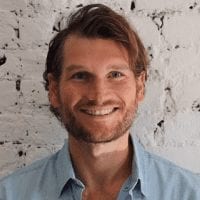
Martin Tiekle leads Oni’s commercial strategy and teams globally. Managing Oni’s Cloud Consulting Business, Martin’s expertise lies in customer education and business impact consultancy to enable businesses for financial growth using technology. Martin has a Bachelor of eBusiness at Macquarie University, Sydney. He specializes in business impact of advanced technology across logistics, delivery, and e-commerce. Fully certified in Google Maps Platform, Google Cloud Platform, Google Analytics 360, and G-Suite.
Martin speaks English, terrible French, and is learning Italiano. He’s an AFL obsessed, Liverpool FC die-hard, mixed with an old school comic nerd who has a passion for superheroes and Star Wars. He loves to run, cycle, and keep fit. He’s been lucky to travel the world with his camera in hand and always has one more photo to take. Connect with Martin on LinkedIn.
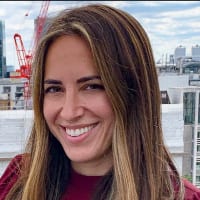
A Chartered Institute of Marketing (CIM) awarded B2B marketeer, Emanuela Lombardi leads the OniGroup marketing team, digital services and campaigns globally. Having joined Oni in 2019, her focus has been on building out the OniGroup brand identity and innovation campaigns to launch OniGroup solutions to new markets. Emanuela graduated from La Sapienza University of Rome (Italy) in Cross Cultural Communication and Translations, with a focus on Islamic law and culture. Emanuela is fluent in English, Italian, poco Espaniol and has worked extensively in Arabic too. Besides Marketing, Emanuela loves music, dogs, cycling, food, and wine! Connect with Emanuela on LinkedIn.
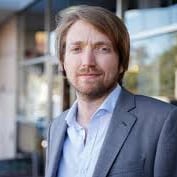
Darragh Murphy is the Managing Director of OniGroup. With a focus on enabling customers to make better use of data, he leads an extremely exciting, diverse and dispersed team that is both passionate and dedicated.
With a strong technical background and curious nature, his interest lies in how to make customers succeed by leveraging cloud services. Having moved through the ranks and working with customers of all shapes and sizes he pushes the team to ensure they consider all angles.
With an amazing education and time in St Kieran’s College Kilkenny (the home of Hurling) to the phenomenal and nurturing environment of University of Limerick Ireland, they have set Darragh in good stead for a life in technology, business, and leadership. While he has had more than a decade of experience across the Google Technology stack, every day is a school day at Oni. Darragh speaks English and Irish (after a few beers), and outside of work, Darragh enjoys football, Rugby Union, and AFL- if there is a ball involved he’s either played it or is a passionate fan of it. But nothing beats a game of hurling! Connect with Darragh on LinkedIn.

Kim Winter is the founder of Logistics Executive. Kim is an acknowledged specialist in Executive Recruitment across Logistics and Supply Chain sectors. He has held senior executive positions within international Logistics, Supply Chain and Freight organizations during his 35-year career. Kim often speaks at international conferences/events and regularly contributes thought leadership to industry media. He has been involved in a number of Disaster and Humanitarian Logistics initiatives and is the founder of not for profit organization www.oasisafrica.net.
A dynamic and engaging senior executive with 35 years of leadership experience spanning Corporate Advisory, Executive Coaching, Public Speaking, Search & Recruitment across the Supply Chain, Logistics, FMCG, Retail, Resources, Industrial, Disaster Relief and Humanitarian sectors. Kimble has built an international reputation as the founder (1999) of Logistics Executive Group which delivers Whole of Life Cycle Talent Management including Search & Executive Recruitment, Corporate Advisory, On-Line Education and Executive Coaching / Mentoring. A regular contributor of thought leadership to industry and media, he is a professional Master of Ceremonies, frequently invited to Chair international events on contemporary/future industry trends and leadership issues. Connect with Kim on LinkedIn.
